
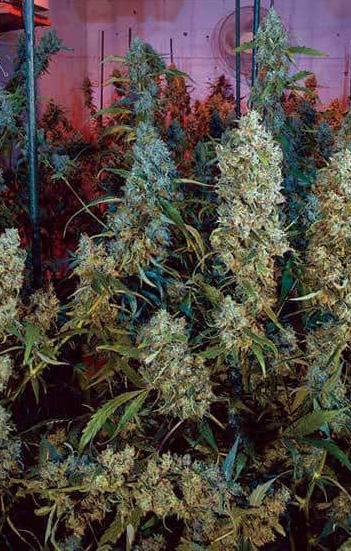

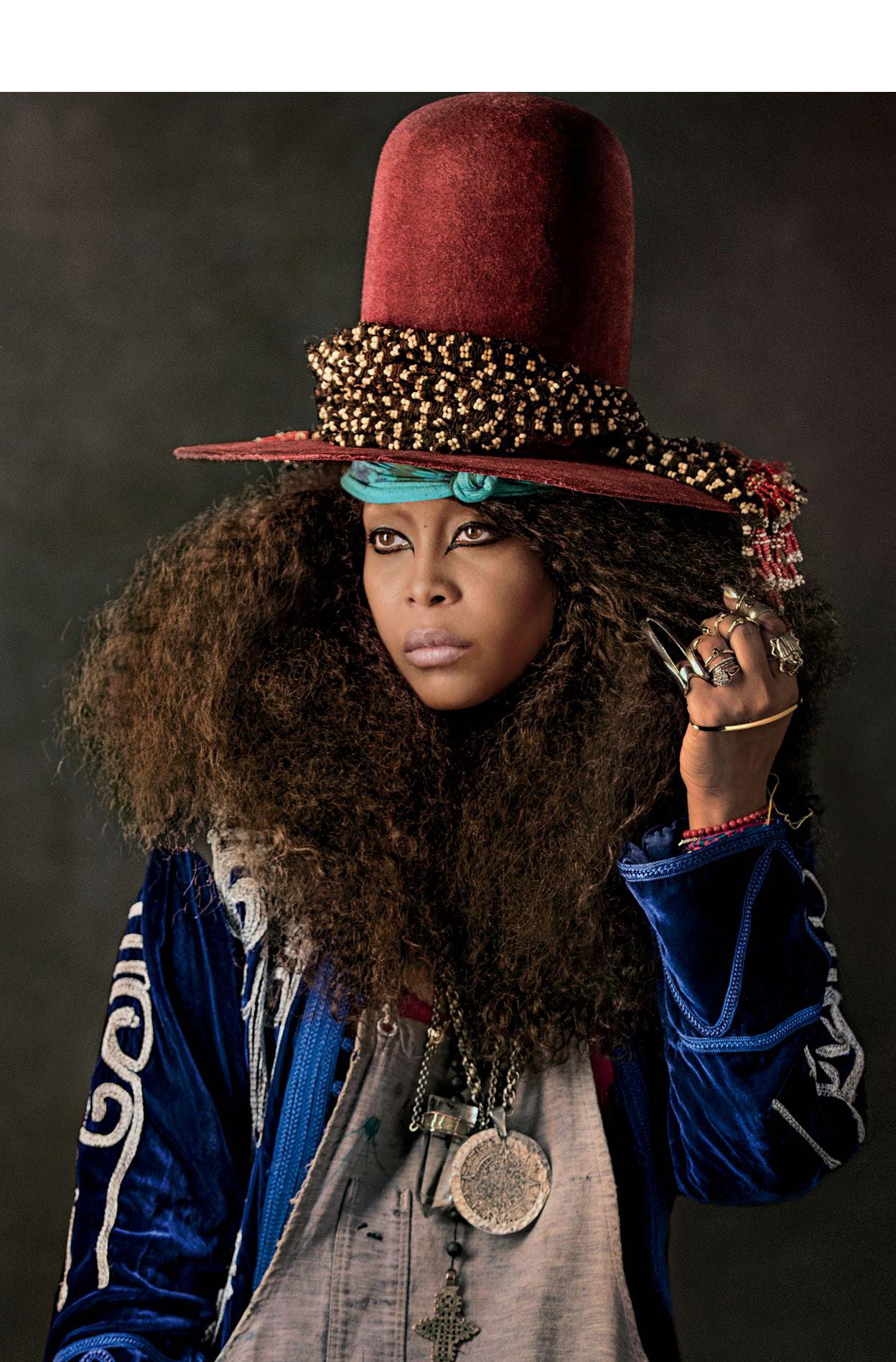

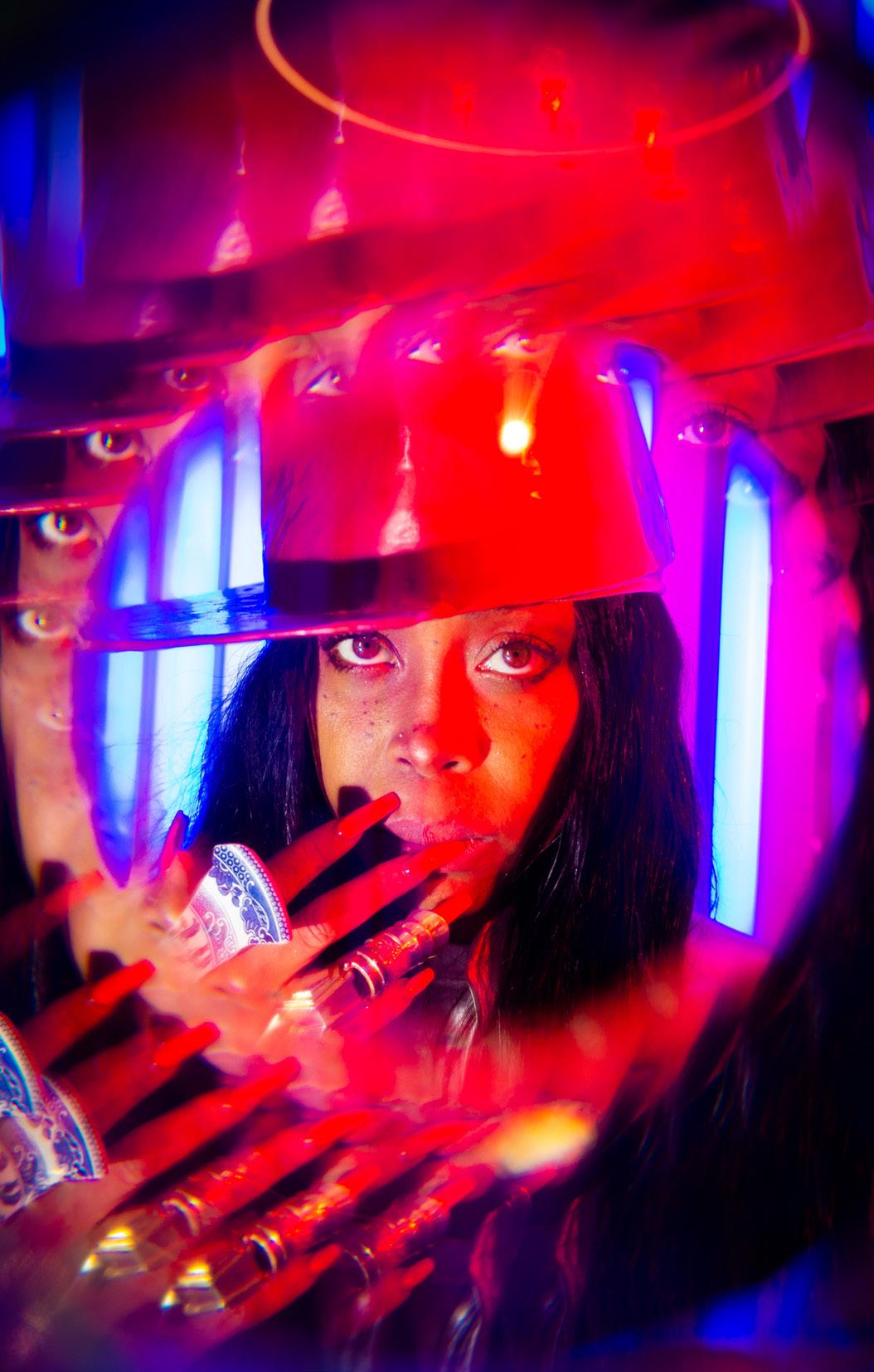
ERYKAH BADU • dead prez • CHEF NIKKI • BRANSON • FIDELS X CHAMPELLI • SQUINTS • CERTZ • SWEETOOTH • SEBZILLLA • CONBUD • DIVINE RBG • GIRLS IS PLAYAS TOO • HONEY SPOTLIGHT • WOMEN IN LEGACY • FUNGTION • MK • MICRO DOSING • DIRTY, SEXY, HONEY • FASHION • BEVERAGES • THE BUZZ • 420 ACCESSORIES • 16 VOL PREMIER CANNABIS CULTURE MAGAZINE • SPRING 2023 420

A MULTI-SENSORY JOURNEY INTO CANNABIS CULTURE 427 BROADWAY NEW YORK CITY GET TICKETS THCNYC.COM

CONTENTS 1 T.O.C. Get into something good! 2 EDITOR’S LETTER Inside the ahead 3 MASTHEAD These wonderful people made this mag happen 5 HONEYSUCKLE ON THE LOOSE Where in the world is team HS! 7 fungtion Functional mushrooms & Kanna 10 ACCESSORIES What’s in the Etain medicine cabinet? 11 SWEETOOTH Cannabis turns sweet in NYC’s first infused bakeshop 14 CONBUD/HER HIGHNESS Coss Marte gets CAURD/ Lit for a Queen 15 SQUINTS From The Sandlot to cannabis legend 17 CHAMPELLI X FIDEL Hash of the Titans 20 dead prez Shamans of Sound 25 ERYKAH BADU Music. Cannabis. That Badu. 31 SEBZILLLA Big in Japan 32 GLASS Scott Southern Photography 33 YOU DESERVE FLOWERS Serge Fils-Aime 36 HAUTE HONEY The Hempire Strikes Back 37 CHEF NIKKI High-end kitchen alchemy 39 BRANSON UNPLUGGED NYC’s Weed Godfather Speaks 43 GIRLS IS PLAYAS TOO Legacy Women 49 DIVINE RBG Four Twenty Minutes 50 THE RISE OF CERTZ Steph V From Wraps to Riches 53 DIRTY SEXY HONEY Sex Talk: Finding the (O)G Spot 54 BSA Beyond the stars 55 HONEY SPOTLIGHT Trendsetters & power women 62 BODEGA BOYZ New York Stand Up! 63 MK The happiest plant medicines on Earth 64 MICRO DOSING Macro & all that’s in between 65 MAGIC NUMBERS Accounting for disruptive industries. 66 THE BUZZ Angela Pih
BIG on Culture
Honeysuckle goes
“AI is going to irrevocably change everything in our world. Some of the things that I do for work will be replaced by AI in the next few years. Right now, as

an artist and designer, I’m using it for references or color palettes. Soon I will be using it for whole designs. “Can’t you just use AI?” Is going to be the new “Can’t you just photoshop it.” This tech is going to be unpredictable, globally scaled and humanity changing. This may not be like any technology we’ve ever seen. AI might also be the end of human life on Earth. But in the mean time. Aren’t the pictures pretty.” Sam
Long, Creative Director
 BY RONIT PINTO
BY RONIT PINTO
IOur 420 with The Honeys is Fit for Queens
Each of our print editions are like journeys; ‘trips,’ for sure. While much of our content is planned and strategic, a large amount becomes organic. Team Honeysuckle being led by the universe and different opportunities that present themselves along the way. Always prepared for change, my father calls this way of working and thinking “quantum,” meaning that it’s not fixed, instead remains open. This edition was no different. So many unpredictabilities, as many as the cannabis industry itself. What stays the same in nature anyway? If the saying “life imitates art” is any indication, then we are in the right place, because the cannabis industry in New York quite literally moves a mile a minute, and even that might be slow to describe.
For such a liminal issue, we captured cover artist Erykah Badu. A real Queen. Not only of Neo-Soul, but the Queen of a lot of other things as well. Disrupting music genres, fashion paradigms and expectaitions on what it means to be an actualized woman and creator. The Dallas native and four-time Grammy award winner is a revolutionary, and her next evolution is with f her new premium cannabis line “That Badu,” in partnership with Cookies.
We got private time with Badu for our cover shoot at the Cookies Maywood drop in Los Angeles with her “That Badu” collaborator and cannabis mogul Berner. Badu teaches us a great deal about the power of women, drawing from her experience as a creative and a healer who helps others listen to their pwn divine instincts within.
Fittingly, you’ll find examples of feminine prowess all over these pages. We chose to highlight feminine energies as influences that we want to see more of. From our six-page spread on women in New York’s legacy spaces, to our ‘Honey Spotlight’ that features leading ladies in every aspect of the industry, we make it clear that “Girls is Players Too.” (Thanks Coi Leray.) In this issue, you’ll meet Chef Nikki, a modern-day culinary alchemist. You’ll hear from community and policy leaders such as Manhattan Community Board 2’s Chair of Cannabis Licensing Mar Fitzgerald and Ariel Palitz, NYC’s first Mayor of Nightlife. Across the nation, women are integrating cannabis into new avenues for their lives and careers - see some of our
faves in real estate, event production, activism, and media among other fields.
And just as quantum thinking allows for undefined evolution, we see that explosion of magic in our other stories. “Legacy” has no single meaning. For iconic hip hop group dead prez, it’s imbued with traditions of Black Power (and that is one exclusive interview you simply can’t miss). West Coast legends Champelli and Fidel team up to discuss Fidel’s pioneering of the modern hash hole, and the journey that brought a longtime neighborhood cultivator to international acclaim. New York’s Godfather of Weed, Branson, opens up for the first time to share how his cannabis game has stayed strong - because his love for his hometown stayed stronger. Through these accounts and more, a cannabis revolution was birthed, and there’s no going back. So strap in with the Honeys for a rocket ride to the stars. It’s 420 - let’s get educated, and elevated!

4 2 0
EDITOR’S LETTER
1 VOLUME 16 @HONEYSUCKLEMAGAZINE
“Just as quantum thinking allows for undefined evolution, we see that explosion of magic in our other stories. “
Publisher and Founder
Ronit Pinto
Creative Director
Sam C. Long
Editor-At- Large
Jaime Lubin
Special Features Editor
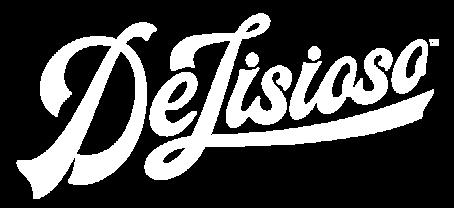

Jake Wall
Fashion Director
Shannon Hoey
Painter: Sebzillla
Jack Blasko
Accessories
Jes Feuer
Special Contributors
Candace McDuffie
Joseph Rutherford (Champelli)
Jake Robinson
Adam Ali
Sex Talk

Anita Couche
Writers
Veronica Castillo
Theara Coleman
Kally Compton
Alexa Nasiedlak
Haley Alexandra Yaman
Interior Page Design
Anna Ren
Billie Haas
Sarah Heightchew
Xhaxi Danzeng
Glass Photography
Scott Southern
Cover Design & Art Direction

MNML
Cover Photo
Erykah Badu
©Sam C. Long

Cookies, Maywood, 2023
Social Justice

James Litkett
Shawanna Vaughn
Arthur Rambert
Advisory Board
Bobbi Paley
Paul Rosen
Dan Foehner
Special Thanks
Ken Darby
VOLUME 15
• SPRING 2023 Advertise with us Honey@HoneysuckleMag.com 646-632-7711 New York, NY 10023 Printed in Queens, NY Social Media Instagram: @HoneysuckleMagazine Twitter: @HoneysuckleMag YouTube: Honeysuckle Magazine honeysucklemag.com
VOL 16
H ooked on more than just a feeling.

ALL-NATURAL HEMP

INFUSED THC
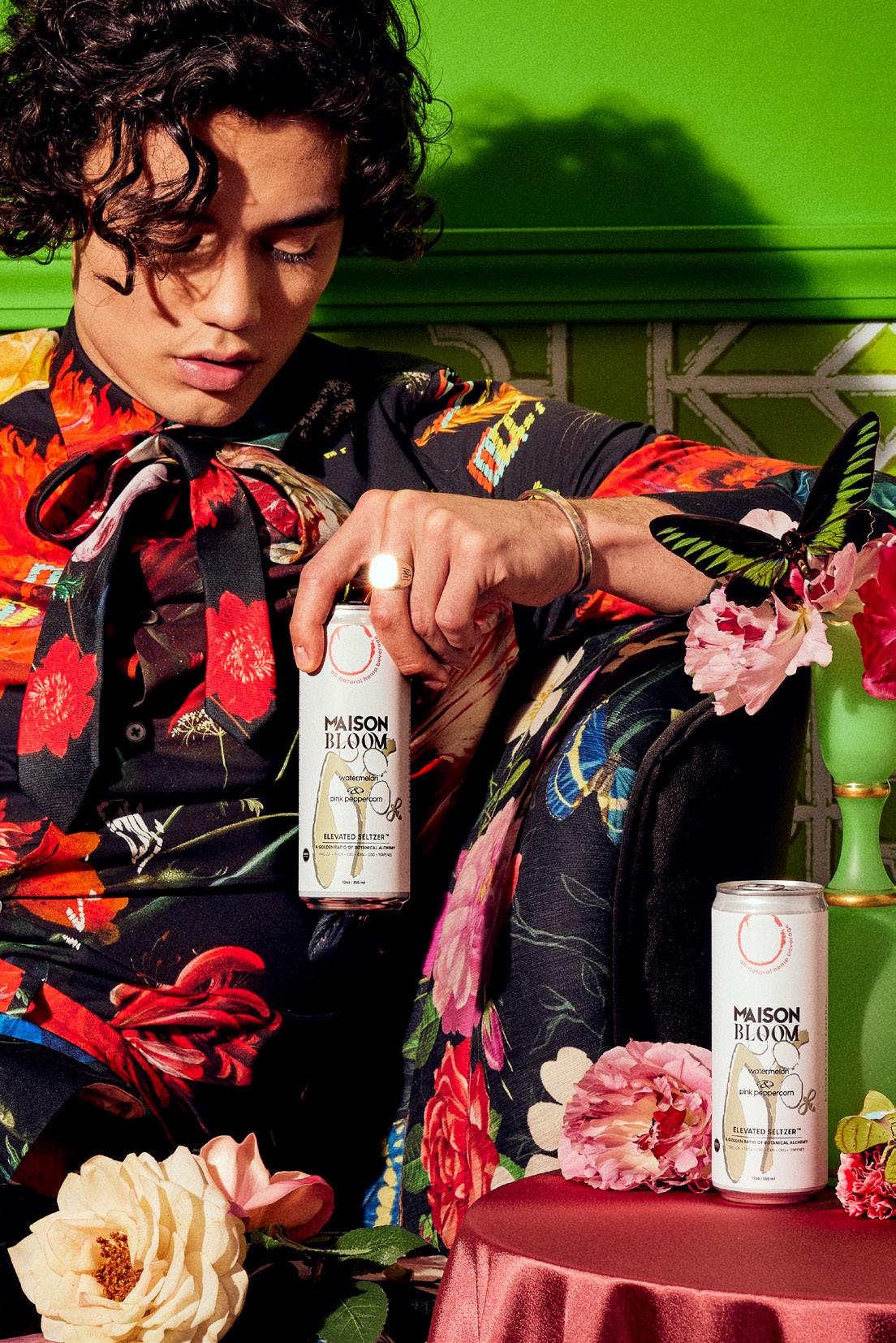
High on more than just believing.

CRAFT CANNABIS INFUSED THC
available at these fine retailers


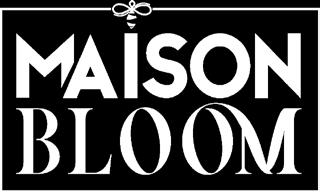
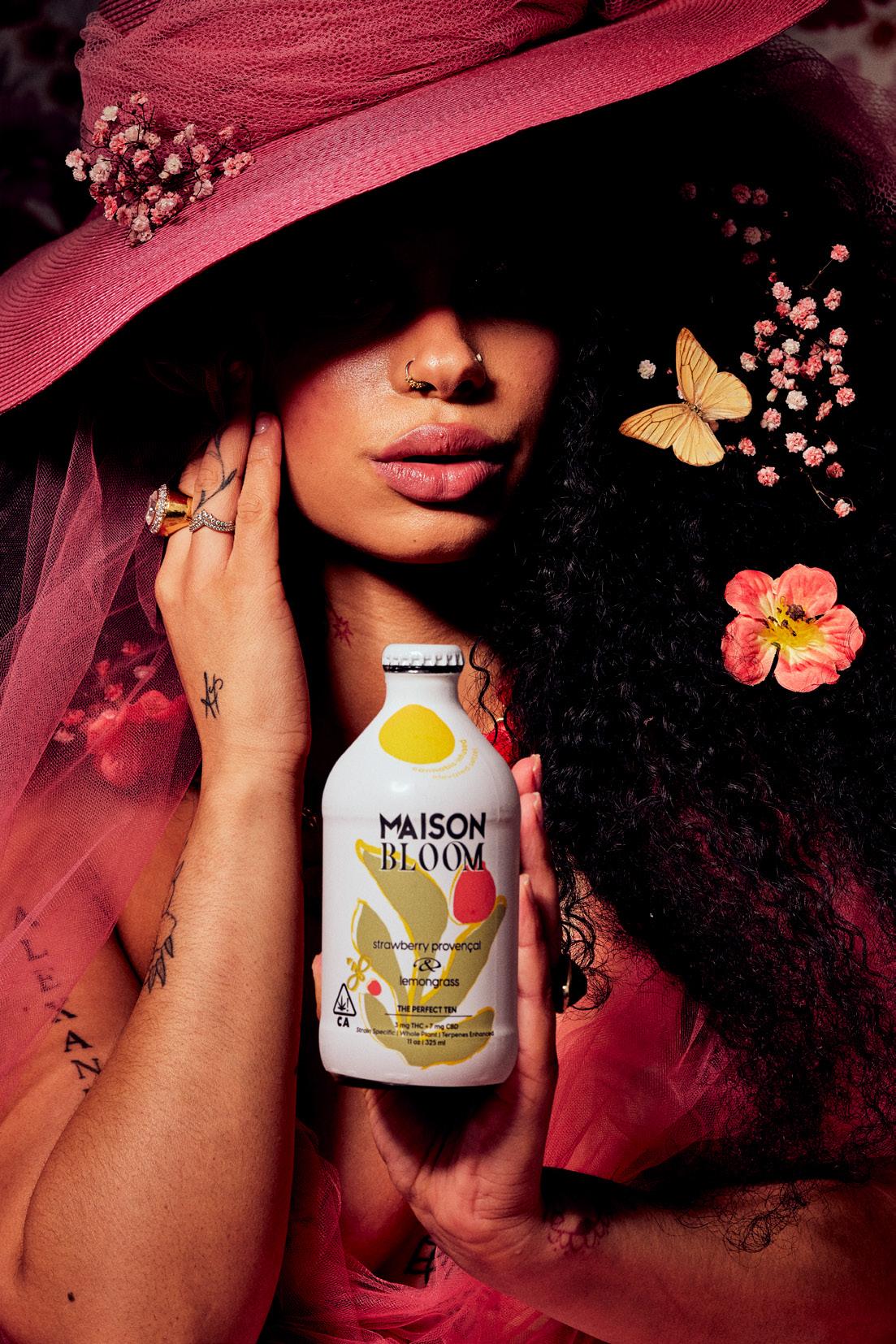
Oh, are we giving you FOMO? Well, Team Honeysuckle is everywhere - from our “party of the year” at Cookies




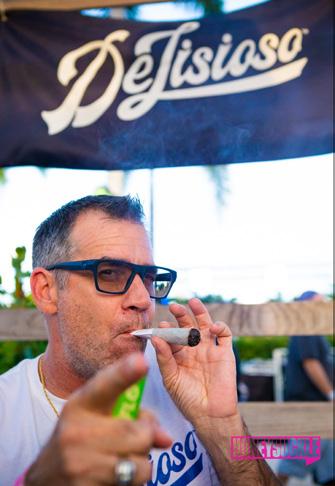
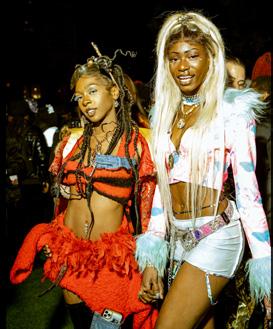

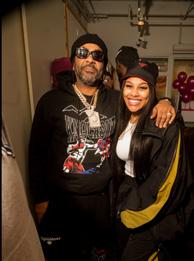
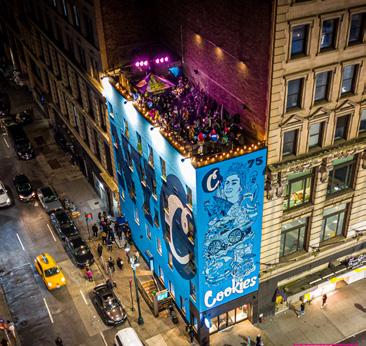
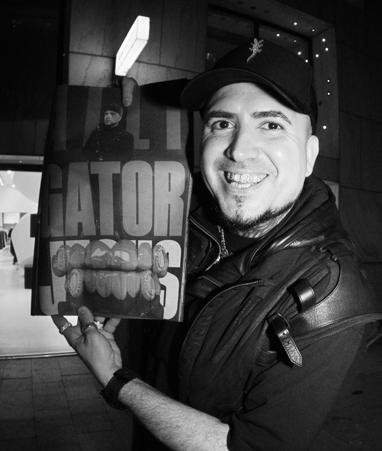


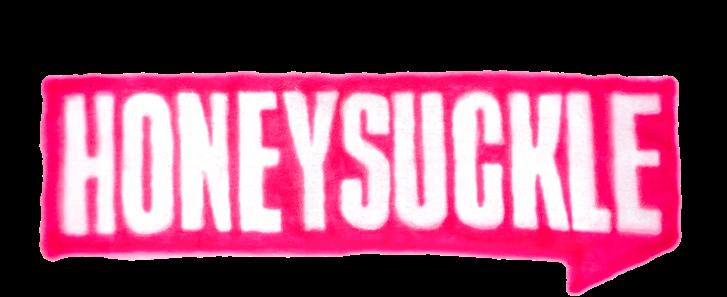

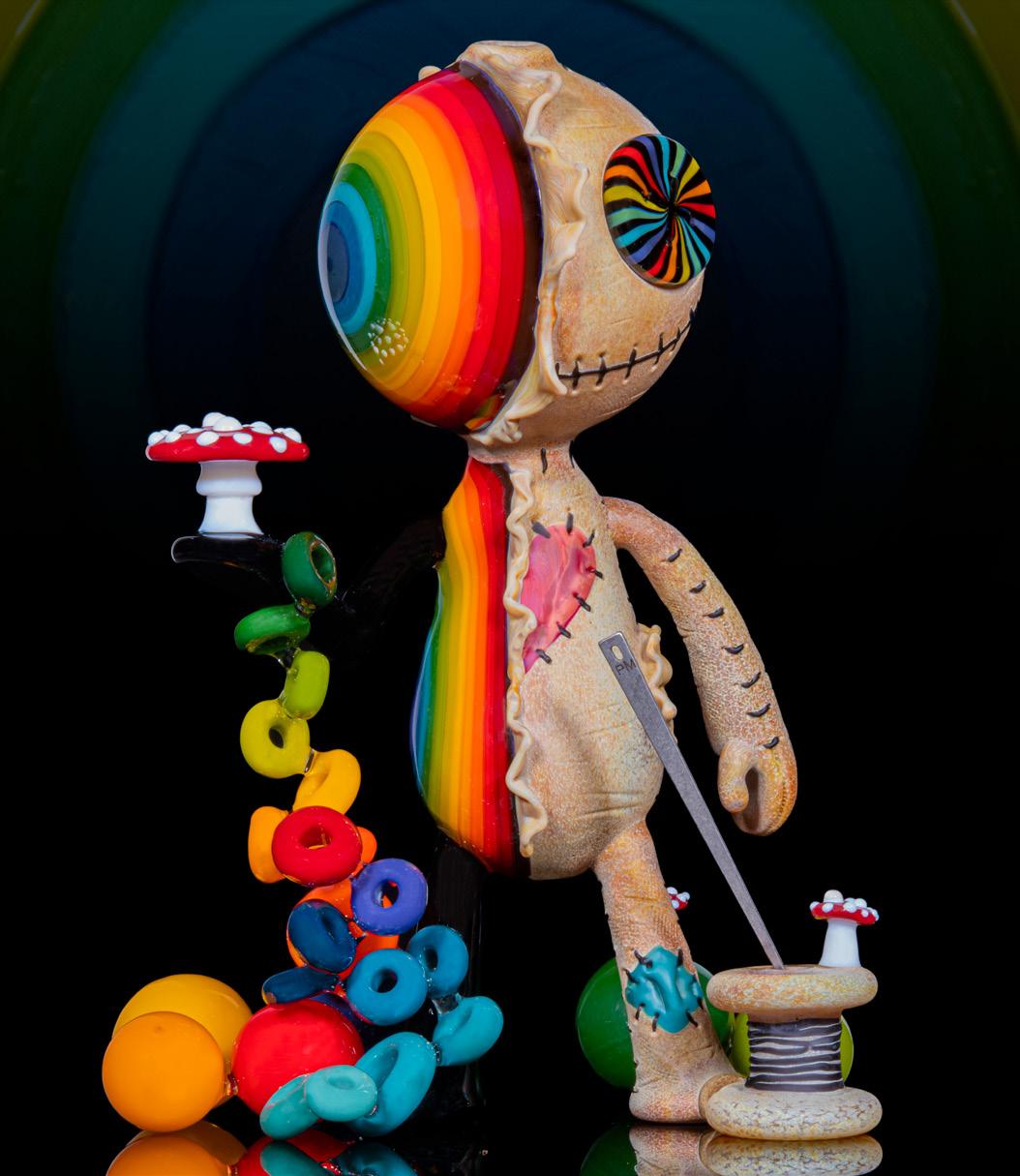 Alligator Jesus at Art Basel 2022
Alligator Jesus at Art Basel 2022
Etain
‘Submerged’ by Andrew Certo. Photo by Scott Southern Product Photography
Ken Darby, Chris Ball of Ball Family Farms and Lou Cantillo at MJBizCon 2022, Las Vegas
FlowerHouse New York cannabis Italian Ice
GSTAR and SIRE VERT at FOMO
FOMO Party at Cookies NYC © @tishawnfahie Ken Darby at Dab Day Art Basel Coi Leray X2 Pink Zushi Drop The Ten Co Art Basel Miami
Roger Valoda of Puffco,
Jim Jones and Mellow Rackz at FOMO Party, Cookies NYC Richard DeLisi, The Emerald Cup 2022
Party, Cookies NYC © @sinematic.studios
5 VOLUME 16 @HONEYSUCKLEMAGAZINE
capsules, Etain NYC
NYC, to Art Basel, SXSW and The Emerald Cup, to all the cannabis and culture landmarks there are to hit. Wherever we are, we shine brightest for our clients and partners in our out-of-home and full media production that includes videography, photography, and editorial amplification. Where will we end up next? Stay tuned for more from the nation’s most exciting markets!
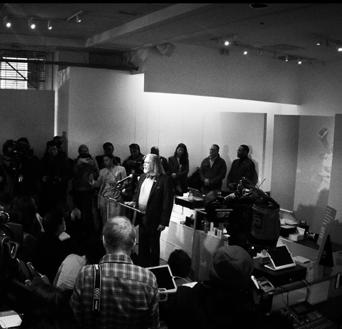

BigFlowerHouseNewYorkcannabis
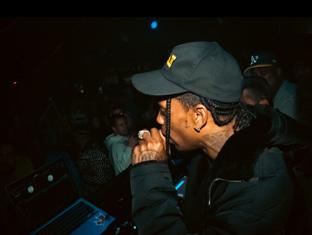




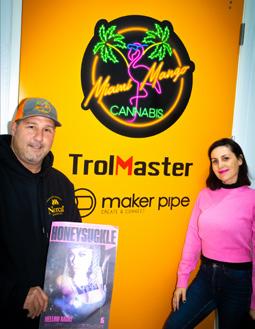
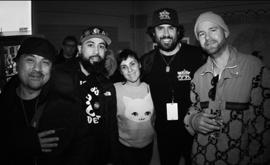



 Charles King at opening of Housing Works Cannabis Co
Background photograph by Scott Southern: @certo.glass @mullerglass
Alex Villegas of Miami Mango
Umi of dead prez at On the Revel Paul Wall records TRILLSTATIK 2 at The Sweet Chick
Charles King at opening of Housing Works Cannabis Co
Background photograph by Scott Southern: @certo.glass @mullerglass
Alex Villegas of Miami Mango
Umi of dead prez at On the Revel Paul Wall records TRILLSTATIK 2 at The Sweet Chick
2
Bun B records TRILLSTATIK
Lou Cantillo of Buddy’s Bodega, Ronit Pinto, Felipe Recalde of Compound, and Champelli at the Emerald Cup 2022
Gotti premiering his cannabis brand drop at Certz Midtown Lounge, NYC
Travis Scott, Club Nebula, NYC
Our partner in crime, Britt
FootGlue
Stephanie Shepard, LPP,
NEMS and crew at opening
Shiest Bubz and Fab 5 Freddy at opening of Housing Works Cannabis Co. at Texas Capitol Building, SXSW 2023 of FUCK YOUR LIFE store, Coney Island, Brooklyn
and Ronit Pinto at the lab at The Sweet Chick Ludlow, NYC
WWW.HONEYSUCKLEMAG.COM 6 VOLUME 16
When George met Phoebe: Fungtion-ing Daily With Mushrooms, Kanna, and Psychedelics
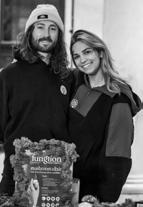 Interview by Sam C. Long By Alexa Nasiedlak, additional reporting by Haley Alexandra Yaman
Interview by Sam C. Long By Alexa Nasiedlak, additional reporting by Haley Alexandra Yaman
After managing a tired body, a family history of neurocognitive disorders, and a couple of intense snowboarding injuries that should have left him paralyzed, George Moulton turned to plant medicine. Quickly, he discovered that nature really can heal the body. Moulton used mushrooms to heal himself physiologically, leading him to create something that would help others heal.
“I had a formula I was working on,” Moulton recalls. “I knew I wanted Lion’s Mane [mushrooms] for memory and focus, Cordyceps because it was the athlete’s mushroom for stamina and performance… And I wanted something enjoyable that people would actually want to take every day.”
This would form the basis for Moulton’s company fungtion, and its signature mushroom elixir. Shortly after his epiphany, Moulton met Phoebe McPherson; now head of Brand and Education for fungtion, McPherson is an herbalist with a background in plants and mushrooms. She’s spent years learning about mushrooms and plants from wisdom keepers, psychologists, scientists, facilitators, and alchemists in the field, also personally working and building relationships with nature herself.


It is obvious that the two have their head and their heart in the business.
fungtion
Based in Southern California, fungtion is now an aptly named wellness and educational brand focusing on the natural, powerful impacts functional mushrooms and plants can have on the brain and the body. Founded by Moulton as an almost passion project, he wanted to “successfully create something meaningful to leave behind.” He and McPherson work tirelessly to curate a brand that focuses on education and using the plant to better mental and physical health.

Described as “psychedelic adjacent,” it’s important to note the different types of mushrooms that are out there. There are three distinct categories: gourmet, psychedelic, and functional. Gourmet mushrooms are the mushrooms we like to eat and cook with; occasionally, these mushrooms crossover with functional mushrooms, which t provide some type of health benefit. Psychedelic or “magic” mushrooms contain psilocybin and create an altered state of consciousness when ingested, usually accompanied by hallucinations. At fungtion, Moulton and McPherson concentrate on the third type, functional mushrooms, meaning varieties that have medicinal properties. These mushrooms, including common types like Lion’s Mane, can have brain-boosting properties, alongside antiviral, antifungal, or digestive support qualities, and more. Many functional mushrooms people can access at any grocery store; safe, legal, powerful.
“Within the functional space, you’re going to have mushrooms you use on a day-to-day basis,” McPherson comments. “We’re used to talking about psychedelics and cannabis [where] we take something to arrest our system to feel a certain way. But with functional mushrooms and plants, which are totally legal everywhere, we’re really tapping into the power of nature. You start to notice positive shifts in your body, like if you took a B12 vitamin for a week or started to drink the amount of water you actually need every day… It’s that shift we’re creating in the psychedelic adjacent space, because you need the patience to allow these things to work in your body.”
The fungtion mushroom elixir, primarily using Lion’s Mane and Cordyceps, is also stacked with other plants to activate different health benefits. Ginger supports the digestive tract; goji berry promotes sexual energy and endurance; ginseng boosts endurance and balances mood; rhodiola relieves stress related fatigue. These plants’ powers combine into a full-body wellness cocktail, but their effects are actually quite subtle. So subtle, in fact, that McPherson advises that each consumer give it two weeks with the formula to see what it’s doing long-term for them.
Functional mushrooms do work best when people understand their dosages, a trait shared with psychedelic fungi (and with most primary vitamins - you want to take them daily, but not overdo it.) One person’s microdose might be another person’s macro, and it’s important to find out what helps your body the most. Part of fungtion’s appeal is that its elixir is mixed with the perfect ratios to help consumers eliminate a majority of the guesswork.
According to fungtion’s website, their elixir supports “cognition, sustained energy, and libido.” Moulton clarifies that this means libido in the sense of maintaining healthy blood flow, circulation, and physical energy in a daily routine, though the product is not an aphrodisiac by itself. However, the brand’s current offering on the market will soon be joined by a sister product designed to open the heart, and can legitimately be called an aphrodisiac under certain circumstances. Welcome to the wonderful world of the South African succulent, Kanna.
FUNGTION KANNA
Use code HONEYSUCKLE for 25% off all fungtion formulas!
For more information, visit letsfungtion.com and follow @ letsfungtion on Instagram.
you’re exploring recreationally, healing pharmaceutically, the whole nine yards - it’s absolutely essential.”
“Working and operating in a psychedelic adjacent space means that people start having the tools that access the wellness they need to be able to continue on this path,” McPherson concludes. “Whether it’s something
But for her and Moulton, fungtion goes beyond their primary plants to help humanity embrace all natural substances, and form connections within themselves.
Fungtion’s Kanna elixir launches in May, and their mushroom elixir is already gaining fans across various markets. “If you’re a fan of cannabis, you will be a fan of Kanna and mushrooms,” McPherson declares.
Kanna is not a hallucinogenic, so no visuals or active hallucinations like the ones you’d get when you’re ‘tripping’ on psychedelic mushrooms, just an open heart, extreme love, situated in a very vulnerable loving space. Whereas microdosing mushrooms you may be able to pinpoint your mood changing, microdosing on Kanna is more of a retroactively noticing the difference in your day.
Just like any other plant medicine and functional mushrooms described above, Kanna works in dosages and over certain amounts of time. McPherson recommends giving products made from the succulent two weeks to take effect, just as she suggests for mushroom-based items.
“Oftentimes within the psychedelic space, we think about the brain, the body, the spirit, but we’re not oftentimes thinking about the piece that is the heart and finding safety in our hearts, safety in what we’re feeling, and then connecting that to the mind and the body,” McPherson elucidates. That’s what’s so special about Kanna: its focus on the heart allows for full body connection and activation.
Unlike other empathogens, Kanna doesn’t have amphetamines in it like MDMA or sassafras, both of which are scheduled and illegal in many places around the world. Kanna is also understood to be non-addictive and non-toxic. It’s not only legal in most places, but it’s widely viewed as safe for most people to explore. Like other empathogens, the South African plant encourages love, joy, and empathy; it opens you up, allows “you to feel a lot of love and a lot of empathy towards the world,” says McPherson.
In Western-medicine terminology, Kanna operates in a similar way to an SSRI. It can function as a “natural antidepressant and dialytic. It has been clinically shown to help those fighting addiction, fighting feelings of codependency, those that have an overactive amygdala, those that are struggling with coming out of fight or flight and just want to feel better on a daily basis,” McPherson clarifies.


Indigenous communities in South Africa, the San and the Koi, would often smoke cannabis and Kanna together; other times they might ferment Kanna root and chew it all day long– their version of microdosing throughout the day.
For those of us who don’t know what Kanna is, it’s an indigenous South African succulent plant classified as an empathogen.
Introducing Kanna
7 VOLUME 16 @HONEYSUCKLEMAGAZINE

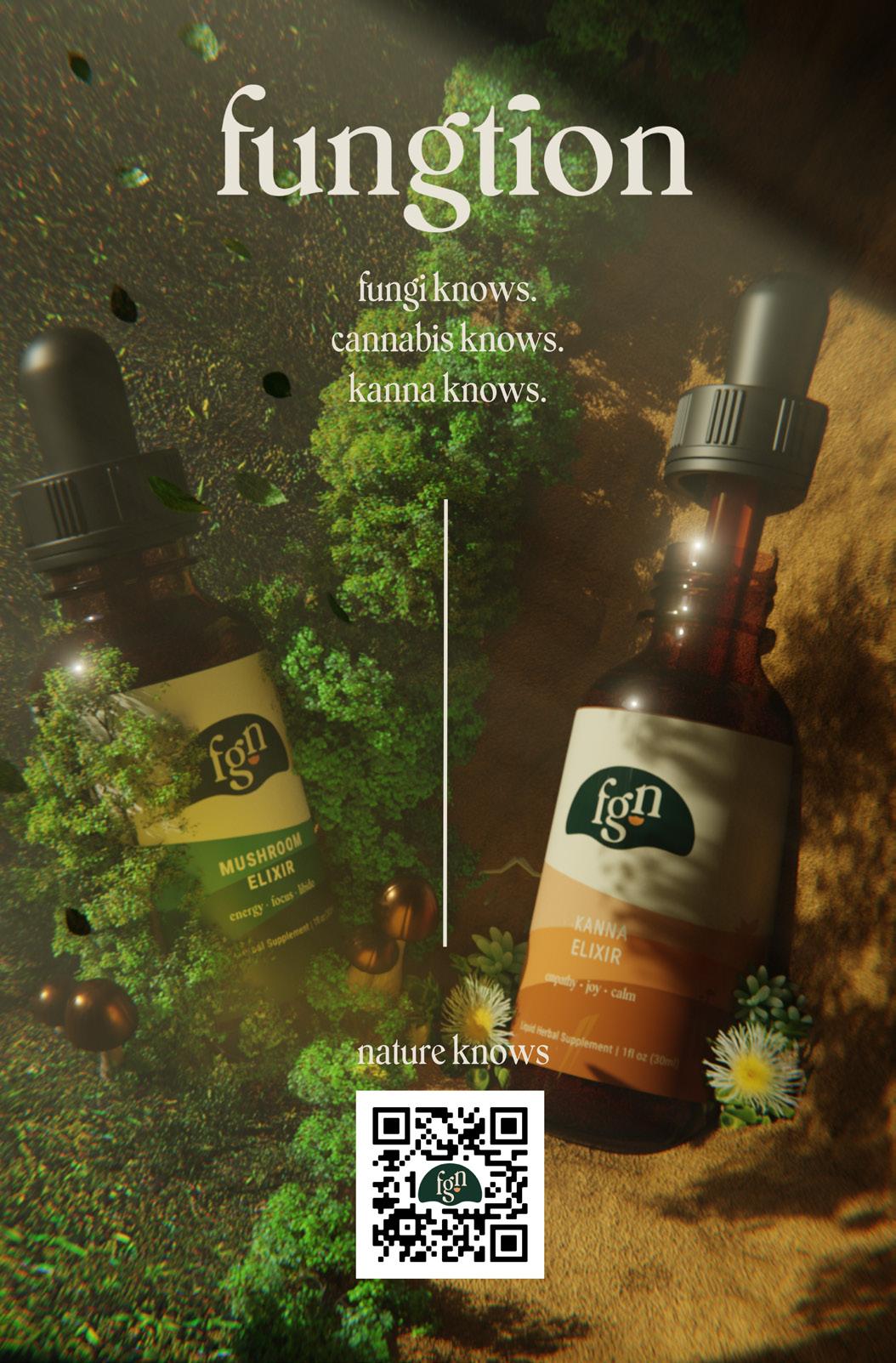
Take A Moment. New York’s only women-founded medical cannabis company @etainhealth etainhealth.com free delivery Manhattan Kingston Syracuse Yonkers At Etain, New yorker’s are vip: very important patients. For use only by adults 21 years of age and older. Keep out of reach of children and pets. In case of accidental ingestion or overconsumption, contact the National Poison Control Center hotline 1-800-222-1222 or call 9-1-1. Please consume responsibly. Cannabis can be addictive. Cannabis can impair concentration and coordination. Do not operate a vehicle or machinery under the influence of cannabis.There may be health risks associated with the consumption of this product. Cannabis is not recommended for use by persons who are pregnant or nursing. Concerned about your cannabis use? Contact the New York State HOPELine by texting “HopeNY”, calling 1-877-8-HOPENY, or visiting oasas.ny.gov/HOPELine. Etain LLC, MM00400550
Top
Shelf Products from Women–Founded Brands
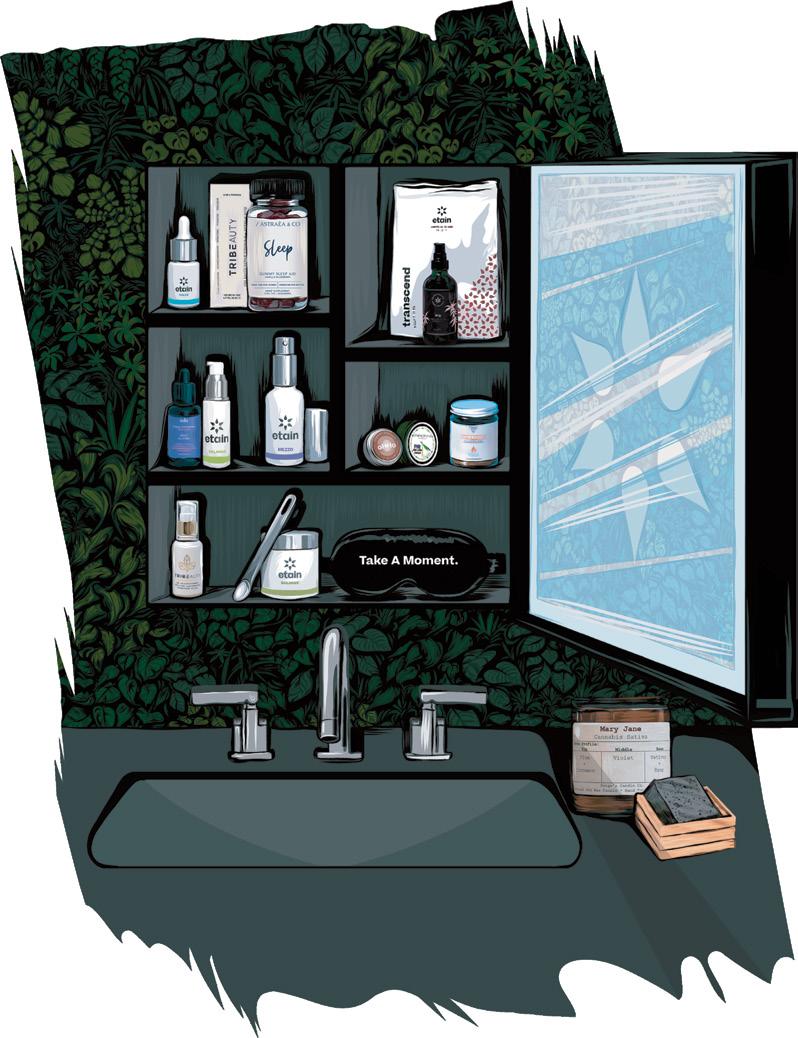
Stay balanced throughout the day when you stock your shelves with these THC and CBD health and wellness items.
From le to right: Etain – Dolce High CBD Tincture, Astraèa & Co. –Sleep Vanilla Blueberry CBN Gummies, Etain – Forte High THC Lozenges, High Priestess – Drip CBD Lubricating Intimacy Oil, xula – Happy Hormones Herbal Cycle Support + Hemp, Etain – Balance 1:1 Lotion, Etain – Mezzo 1:2 Spray, oHHo – Full spectrum CBD lip balm, Chime & Chill – PM Body Lotion, Tonic – Chronic Blend Bath Soak, TribeTokes –TRIBEAUTY CBD Vitamin C & Ferulic Acid Super Serum, Etain –Balance 1:1 Powder, Paige’s Candle Co. – Mary Jane Taxonomy Candle.
Illustration by Pumpernickel Stewart
Another rainy afternoon in New York City, only this time, I had the absolute privilege to go chat with Billy Qirollari, founder of New York City’s first ever THC-infused bake shop, Sweetooth, tucked away in the East Village.
All four walls were covered, floor to ceiling, with hot pink paint. An accent wall featuring wallpaper covered with small unicorns sitting on rainbows, and an LED sign telling us to “Chill out, Babe,” begged you to do just that: chill out. And Sweetooth provides the goods to do so.

What is Sweetooth?
First opened in September, Sweetooth is aimed at inviting canna-curious and non-smoking individuals to try curated THC-infused baked goods. When asked about the inspiration behind opening the first-ever cannabis bakeshop, Qirollari says, “My partner and I came up with the idea of a space selling high-end gourmet goods for people who don’t smoke – for those who just want to eat edibles but who are tired of packaged goods. They want to have something fresh, but at the same time, they want to have a good time.”
By Alexa Nasiedlak
Cannabis TurnsSweetMeet NYC’s FIRST EVER THC-Infused Bakeshop, Sweetooth
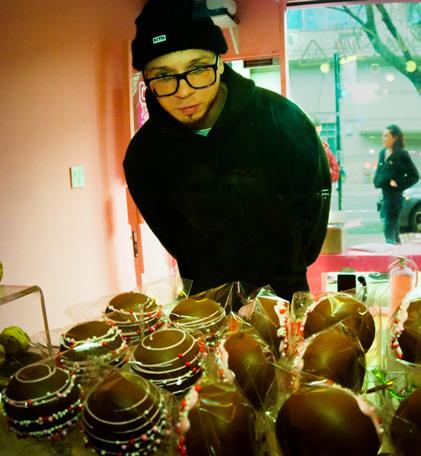
“It’s about quality, really,” states Qirollari. That’s what Sweetooth aims to provide to its customers: a place where you are able to find fresh, highend, and reliable good-quality edibles.
Sweetooth has catered work events, birthday parties, and is happy to announce we are booked for our first wedding this summer!
In order to do so, Sweetooth partners with three local bakeries who provide new infused baked treats including madeleines, vegan macaroons, doughnuts, peanut butter cookies, homemade gummy squares, and even cake pops. There are new different products each week, ensuring that regulars – and there are plenty – have new treats to try each week.
All of the baked goods are carefully crafted to ensure that each product has the same amount of THC in it: each individual Italian cookie, for example, will have 100mg of THC in it. By ensuring each item has an exact amount of THC, Qirollari and his team can give appropriate recommendations. Someone who smokes a lot can handle a cookie that contains 50mg of THC; however, that amount is far too much for someone who is just getting into cannabis.
Sweetooth Talks Possible Legacy vs. Legal Market Issues
As a brand new cannabis bakeshop in a now-legal-cannabis New York, the legacy versus legal debate is as relevant as ever. With legalization of cannabis in New York comes many caveats in the opening of a legal cannabis dispensary.

11 VOLUME 16 @HONEYSUCKLEMAGAZINE
Sweetooth, where a New Yorker can enjoy fresh baked cannabis sweets made with ingredients that everyone can pronounce.
Any legal dispensary in New York can only sell New York-grown products, Qirollari notes, and as a result, “It’s not going to be as good as California. A lot of New York growers won’t have the knowledge or years of experience that growers in California or Colorado have; they won’t have the strains, the mothers, the clones that California has.”
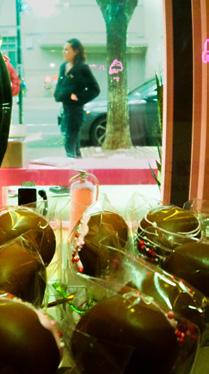
“For the everyday consumer it won’t really matter, but for people who take into consideration what they want to smoke, or who are on the hype beast stuff, they won’t touch [New York cannabis]. They’ll keep going to the black market,” says the entrepreneur.
When asked what this means when it comes to Sweetooth, Qirollari thinks there won’t be any competition. “At the end of the day, we’re focused on the experience,” he affirms.
What’s Next for Sweetooth?


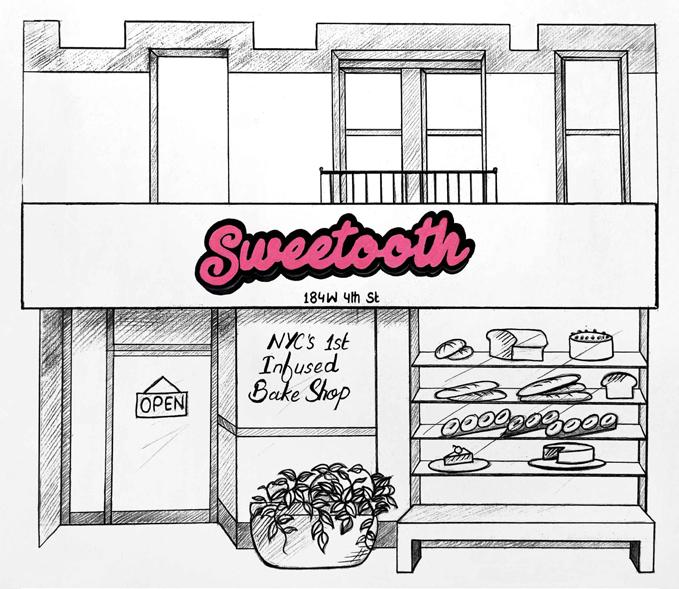

“We’re trying to do chef’s classes to teach people how to infuse; we want to help people become more knowledgeable on edibles,” Qirollari explains. With culinary classes in the works and knowledgeable staff on hand, the Sweetooth brand is anticipating growth beyond its current location in the East Village, via both more locations and more events.
Sweetooth Group is here to inform edible users the proper understanding of micro-dosing so that life can be simpler and more enjoyable.
WWW.HONEYSUCKLEMAG.COM 12 VOLUME 16
cit y including a juicer y also base d in the East Villag e. In the upcoming months, Sweetooth

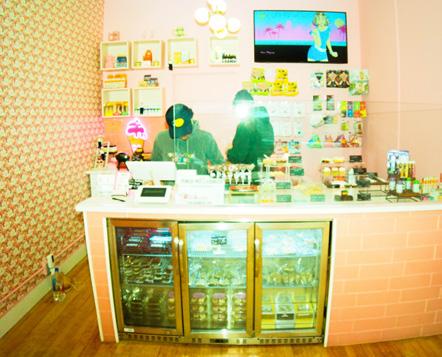
birthday parties, etc where attendees are over 21, allowing attende es and hosts to enjoy their products without the t ypical skunk-like smell

Sweetooth throws invite-only infused tea parties and infused dinners coming this summer
Sweetooth’s location in the East villag e is the orig inal of the 3 locations—now adding access to the Upper East Side, West 4th, planning a summer expansion on the Upper West Side ! Qirollari thanks his customers for the expansion, telling Hone ysuckle that he had one g uy who “travels an hour to g et our product, so I think , ‘why not open a shop near him?’”
Qirollari shares that he has multiple reg ulars trekking from all around the Five Boroug hs and be yond for Sweetooth’ s swe et treats, and I can see the appeal My personal favorite product ? It’s a tossup bet we en their take on the classic Italian R ainbow Cookie and their Sweetooth with a bag f ull of g oodies, and I encourag e you to do the same.

For more about Sweetooth, follow @Swe etoothWorld on Instag ram and visit them at Swe etoothNYC.com


Qirollari outside his cannabis clothing shop in Queens, @CaviarBoutiqueNYC
Who is Vic Styles?
As founder and CEO of the online community Black Girls Smoke and its sister-cannabis brand Good Day Flor, acclaimed stylist, in uencer with nearly 70k Instagram followers, host of the podcast Kontent Queens, and founder of the cannabis-friendly creative space Cloud Haus, Vic Styles has done it all. A er nearly a decade of living in Los Angeles as a celebrity stylist and two years of full-time content creating on the West Coast, Styles moved to Brooklyn in at move, though, was more than just a change of the four walls around her; Styles had transitioned from a legal to legacy market. Something she’d once had unlimited access to in California was now only available behind closed doors in New York: cannabis, a plant she’d been using since she was Styles started smoking, as she says, “During a time in my life that I felt was traumatic. Without me even knowing it, cannabis was obviously calming my anxiety and helping me through depression. But at een, you don’t understand the inner workings of your mind and your emotions, all I knew was I felt better a er using cannabis than I did before.” Shortly a er her move to Brooklyn, Styles created Black Girls Smoke and the rest is history.
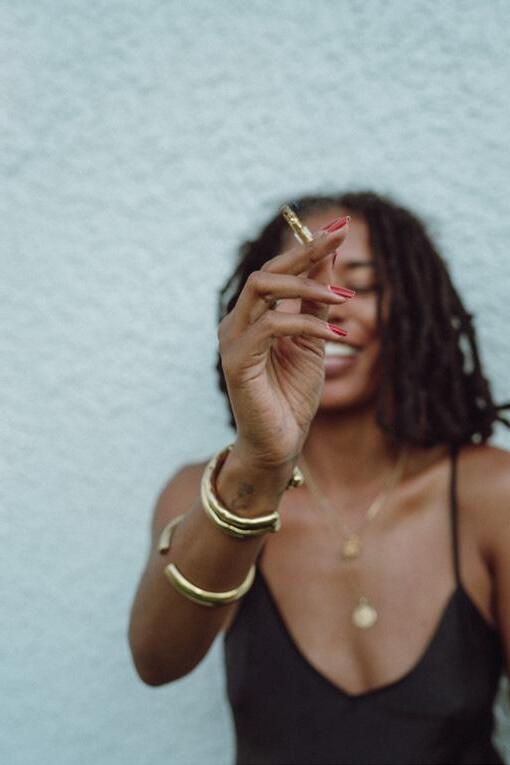
New York’s first home-grown, legal cannabis concentrate brand. Inspired by underground psychedelia. Fueled by passion. Extracted, formulated, and produced with equal parts precision and vision.
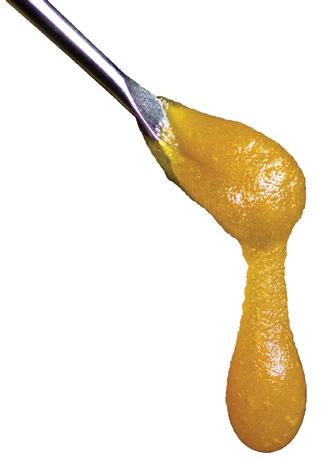
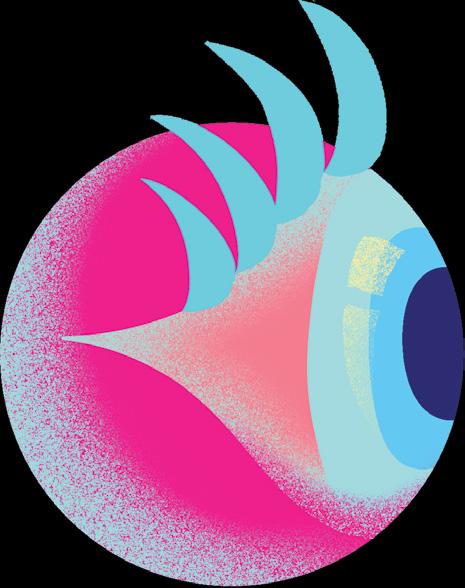
 Vic Styles: Smoking in Style By Alexa Nasiedlak
Vic Styles: Smoking in Style By Alexa Nasiedlak
@blotter_concentrates THERE MAY BE HEALTH RISKS ASSOCIATED WITH CONSUMPTION OF THIS PRODUCT. FOR USE ONLY BY ADULTS 21 YEARS OF AGE AND OLDER. KEEP OUT OF REACH OF CHILDREN AND PETS. IN CASE OF ACCIDENTAL INGESTION OR OVERCONSUMPTION, CONTACT THE NATIONAL POISON CONTROL CENTER HOTLINE 1-800-222-1222 OR CALL 9-1-1. PLEASE CONSUME RESPONSIBLY. CONCERNED ABOUT YOUR CANNABIS USE? TEXT HOPENY, CALL 1-877-8-HOPENY, OR VISIT OASAS.NY.GOV/HOPELINE Follow for the drops. SHOP HERE
JUSTICE INVOLVED
COSS MARTE AND CONBUD’S PROMISE OF REENTRY
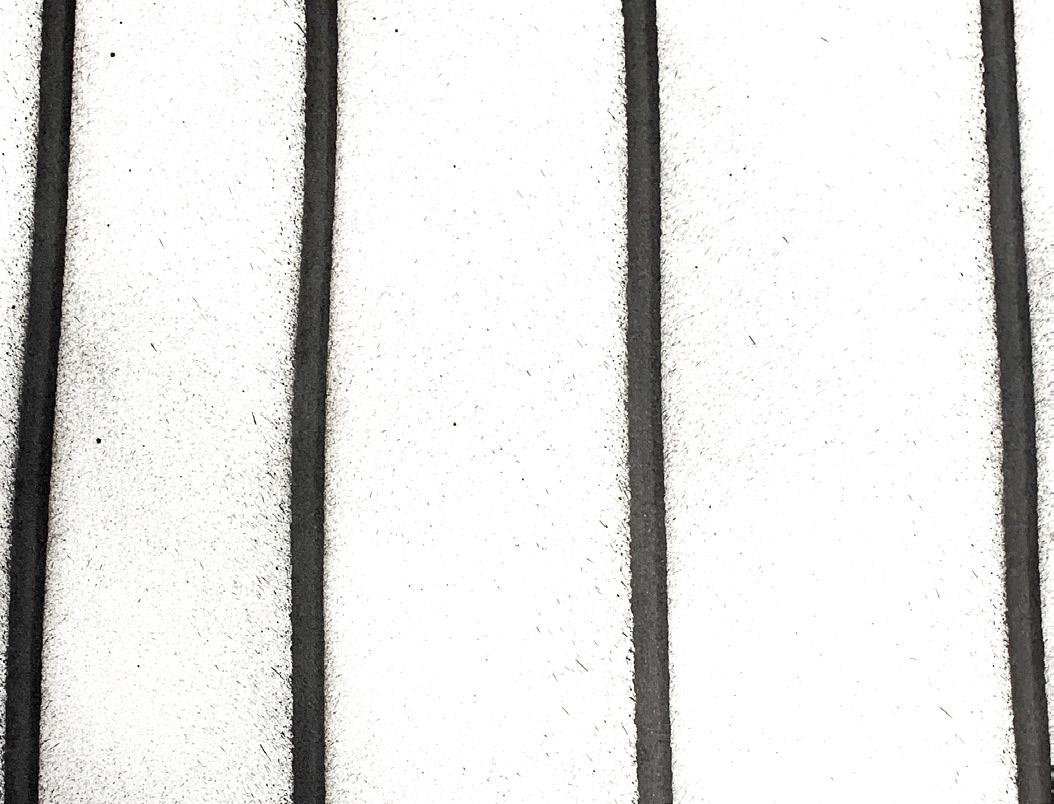


Coss Marte wants you to meet your dealer - but he doesn’t just mean himself. Now known internationally as an entrepreneur, author, and advocate for the incarcerated, Marte began his cannabis career as a teenage street hustler. He quickly ascended in the space, becoming the leader of a multimillion-dollar drug trafficking operation, but was sent to prison in 2009. While incarcerated, the young man was diagnosed with critical health conditions; motivating himself toward good health through exercise informed the mission of his fitness brand, CONBODY, which he founded upon his reentry into mainstream society.
Today Marte’s CONBODY, where former inmates teach fitness classes in a “prison-style bootcamp” setting, is a wild success. The next logical step for the trailblazer is bringing his revolutionary criminal justice narrative to New York’s cannabis consumers with his brand CONBUD. Recently Marte won a New York Conditional Adult Use
Retail Dispensary (CAURD) license, granted only to justice-involved entrepreneurs and nonprofits, meaning his CONBUD locations will receive state support.

“I’ve been hustling cannabis forever,” the go-getter says. “It’s been a crazy journey to now that I can be out there legally without looking over my shoulder to really get involved in this business.”
One of Marte’s most anticipated features of his retail stores - two CONBUD locations will be opening this year - is the opportunity to reclaim the vernacular of the streets for the greater good. Like its sister brand, CONBUD will be staffed by formerly incarcerated individuals, and the stores will display videos detailing their personal stories. The video series, called “Meet Your Dealer,” is produced by Second Chance
Studios, a nonprofit that Marte co-founded in 2020 to train former inmate “fellows” in digital media.
“I want to change the language,” the innovator explains.
“Everyone calls [dispensary employees] budtenders, which sounds like a word created in California. I want to call them something else. The ‘Meet Your Dealer’ series is [now] on my website. I want to share their stories and their journey in cannabis and how they’ve been affected [by criminalization], and really put that out there. A lot of people on the team are willing to be open and they’re okay with sharing.”
He’s also ready to change the lives of new hires. “A few of my staff members who already work in the gym will be working part-time at the dispensaries,” he affirms, “and then I have more people lined up. I’ve been collecting tons of resumes, probably got a hundred already, of formerly incarcerated individuals who want to work with us.”
Marte, who dedicates himself to forging global and holistic pathways to improve society, hopes to someday combine a CONBODY gym and CONBUD dispensary into one location. It’s a natural match, as many consumers already love pairing cannabis with their workouts. “We’re allowed to host events with the CAURD license… and do pop-ups,” he remarks. “I’m not trying to build a whole lounge, but if I could do events where I have a cannabis party or cannabis workout-after-your-workout, we could have a recovery session with smoking or using topicals or stuff like that. Whether I’m going to cohabitate [the brands] like that just yet, I don’t know. I’m not sure what’s allowed in the regulations, but it would be cool.”
As Marte goes deeper into building out CONBUD, he has also stepped up in a major way to represent New York’s dispensary owners, recently co-founding the New York CAURD Coalition with Britni and Jayson Tantalo of Flower City Hydroponics. The organization hopes to be a force in the push for social equity.
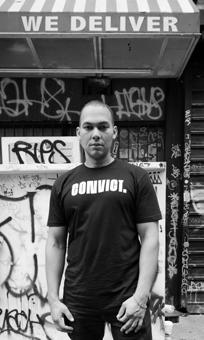
“There’s about 100 members in the coalition now,” Marte notes. “Some people just got their licenses. But it’s been incredible to see people unite all over the state… I want it to be
a good industry with good intentions. Obviously people want to make money, but beyond that narrative of generational wealth, we want a way to share information and build great vibes. If we work together, we could have more unity, more culture, more wealth for everyone. That’s what cannabis is all about.”
His other great vision is to see the cannabis industry become an example to other sectors, demonstrating the viability of formerly incarcerated staff. “That’s what I’m doing with our fitness business,” he observes. “We’re training individuals. We have a pathway for them to come and get into that field if they want to. But why not open it to multiple industries. That’s what I hope to advocate for and nobody else is doing that. Nobody’s thinking about individuals while they’re in the system. A lot of folks think they’re just forgotten people. I’ve met the smartest, most incredible people while I was incarcerated. There’s so much untapped talent and I don’t want to forget about them.”
@conbudny @conbody and @cossmarte on Instagram.
LIT FOR A QUEEN
Cannabis Lifestyle Brand for Women

Cannabis lifestyle brand


Her Highness puts women first; their wide range of products aims to enhance the daily lives of their consumers, from CBD footpads for high heels-wearers to glamorously feminine smoking accessories to a popular THC Pleasure Oil lubricant. But for founders Laura Eisman and Allison Krongard, their business reflects women’s strength of survival as much as her sensuality. Over the past year, both experienced personal crises (Eisman losing her boyfriend to a fatal accident, Krongard being diagnosed with breast cancer) and supported each other while keeping Her Highness at the forefront of cannabis culture.

“Our brand has from the very beginning been all about euphoria and joy and bringing pleasure to women,” says Krongard. “In this moment when we were both so stricken with intense grief, we both turned to cannabis as a healing tool to support our exploration of these new feelings. I use cannabis for so many things, but it added [an understanding of] a new way to reach and serve women.”

“We’re creating something for women that is medicinal,” notes Eisman, “but its recreational spin on joy and empowerment is important when you’re going through something like that.” She recalls that during the initial grieving process, small moments like lighting their Thigh High Sesh Candle and smoking a Her Highness joint allowed her peace and contentment.
The founders also discovered new levels of sisterhood. Whether it was rallying friends to provide meals and treats daily during two surgeries, or giving a shoulder to lean on in the aftermath of a loss, Krongard and Eisman - both single moms - are inspired by female power. “Women are multitaskers, caregivers, but in business we’ve usually gone it alone,” Eisman observes. “Allison and I found we don’t have to. We can be who we are. Cannabis, being a woman, that’s what we stand for and everything our company is about. Supporting other women [personally and professionally], we all need to do that because that’s the way we make our lifestyle acceptable in a business world.”

herhighness.com and @herhighnessnyc
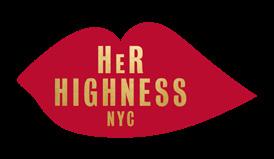
WWW.HONEYSUCKLEMAG.COM 14 VOLUME 16
Heroes Get Remembered, But Legends Never Die: The Saga of Squints and The Sandlot
By Jake Robinson
It feels like “For - Ev - Ver” that I have been trying to sit down and smoke with Chauncey Leopardi, AKA Michael “Squints” Palledorous in the 1993 cult classic The Sandlot. While we didn’t plan it that way, we ended up doing so just in time for the film’s 30th anniversary.
I was excited to talk to Chauncey about his Squintz cannabis brand, his collaboration with premium cultivator team Foreign Genetics, and plans to open a first-of-its-kind brickand-mortar “collab” retail storefront (slated for Mason and Roscoe in the Valley). One year ago, I’d smoked Squintz’s eponymous strain for the first time via mutual friends in Southern California. That was a Rainbow Chip (Sunset Sherbet X Mint Chocolate Chip) a cross gifted to him by Sean at Your Highness LA. I was an instant convert to his explorations in flower for the adult-use market.
Leopardi’s time in the game goes back decades. Fast forward to today, 22 years after he got his hands on his first doctor’s recommendation, and Leopardi is still relentlessly cultivating cannabis.
Foreign Genetics was founded in 2015 by cultivators Sean Costanza and Arrion Jafari, who teamed up with Chauncey in 2019. Fast forward a few years and Foreign Genetics is now a fully integrated cannabis company. Based in Los Angeles Foreign operates in multiple verticals including Cultivation, Distribution, Retail, and Manufacturing.
Chauncey and his partners have built Foreign Genetics operations from the ground up, but they also successfully launched the namesake Squintz brand. Since their first drop on the California Rec Market in March 2021, the Squintz brand has evolved, maintained relevance, and quickly came to exist as a cultural darling among connoisseurs in the space.
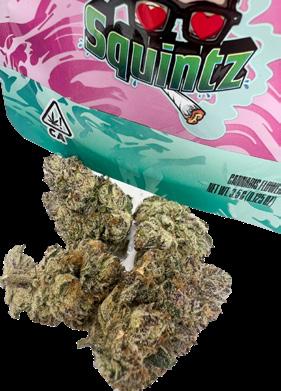
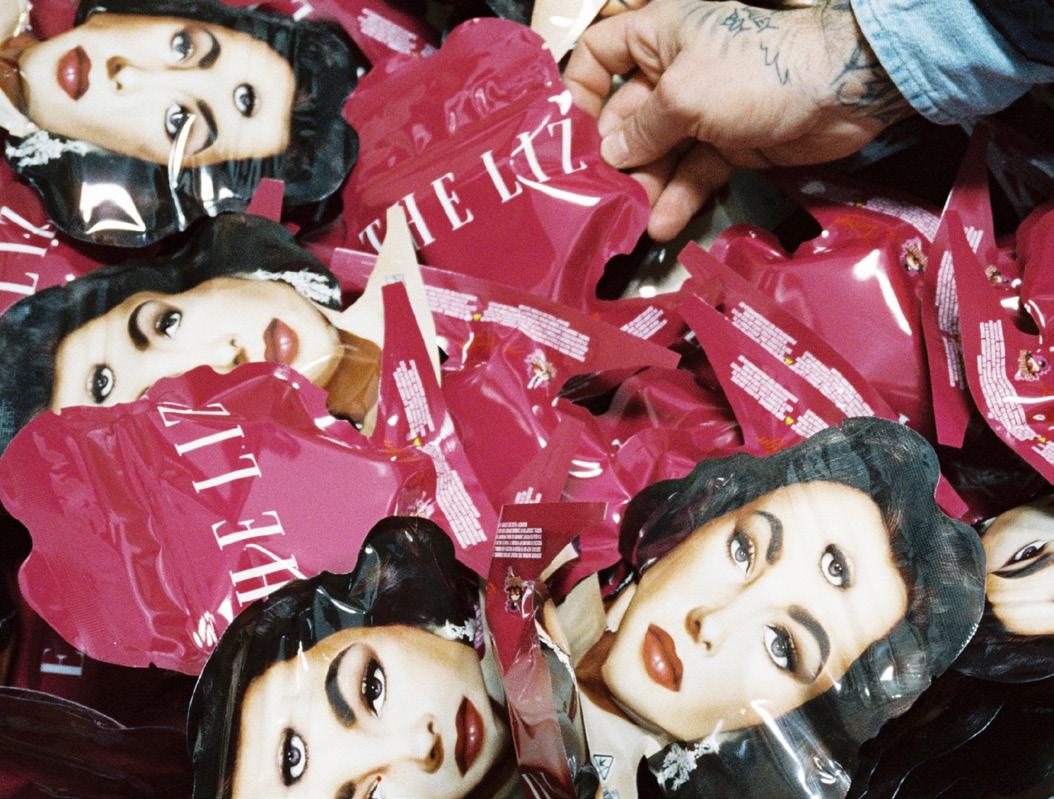
As a lifelong fan of the film and now the Squintz brand, I was relieved to learn that Chauncey looks back on the whole experience of “The Sandlot and being Squints” as an absolute blessing.
Surprisingly, Leopardi never intended to tie The Sandlot or Squintz’s namesake to his cannabis and lifestyle brand. At first glance, some may see the idea of interconnecting the two worlds as a potential schtick to drive sales, and this is most definitely not the case. In truth, Chauncey says was not interested in tarnishing something as culturally significant as “The Sandlot” or “Squints” mainly due to his reverence for the film and its impact on society. He was reluctant to screw around with something that has transcended time in such a unique and unforgettable way for so many people.
“I didn’t think it was necessary to take something that could stand on its own and combine it with something to make it successful,” he tells me. “I didn’t think it needed to be done; there were more ways.”
Nostalgia is a universal emotion that transcends cultural and generational boundaries, and for a brand, it is undeniably worth its weight in gold. By tapping into memories of happy times, even unintentionally, experiences from the past, brands can create a sense of familiarity and comfort that can make their products or services more appealing and memorable.
Nostalgia can be a powerful tool to create a deep emotional connection with their audience and differentiate themselves from competitors—a potential magic bullet, fundamentally important in today’s crowded cannabis market in California.

The ability of Chauncey and his partners to launch a successful and prominent brand under any name (famous or not) had already been proven. Still, you might as well give the people what they want.
ing back organically despite efforts in different directions. Finally, embracing the namesake and integrating it into a cannabis and lifestyle brand. Perhaps proving once and for all that “legends never die”.
JAKE ROBINSON: Tell me about your vision for the new “collab” store. Who will be on the shelves?
CHAUNCEY LEOPARDI: Hopefully, we can buy from our friends. I know who’s who; I have been to most people’s grows so that I can buy from an informed perspective for industry smokers.
All the people I look up to in this industry I am lucky enough to call a friend, so the new shop is a very personal thing for me. I want to carry people I love and fuck with, who care about the plant, so right off the bat, you know what you’re getting, and it is a real culture shop. Not like hippie culture but like authentic industry culture.
JR: So you’ll curate this place from a very personal perspective?
CL: Yeah, I mean just like anything else. 100%. For instance, we have a store now, it is doing well, and growing. I would love to curate a crazy menu, but it’s not in a place that works for that model. The location (Foreign Los Angeles) means the customer wants a bang for their buck. It is a complicated thing with the licenses, and we’re not getting to put them in whatever prime location we want, so we got to roll with it. The new store will be in the Valley, and I would like to tailor it.
JR: How does that differ from the scenario with the new store location?
CL: The new store will be in the Valley (Mason and Roscoe), and I believe in the long term, this is a vehicle for the brands and product lines we create. I would love to know that people were coming directly to us to get our curation, the lines we were doing, and our offerings specifically.
Between the two brands, I feel we can hold a store and make it make sense retail-wise. Like the place to come get Foreign and Squintz products, collab products, and things that align with our network. Having all the homies on the shelf. If it’s fire, I want to have it there for the people, and I want to give people the things that not everyone can carry.
At the end of the day, I am a cultivator, and I cultivate every day. If my brand is a curation and extension of my thoughts and habits and the things I like in the moments that I like them. We are a small craft brand of cultivators, and our flower represents us.
JR: When you say “you’re a cultivator,” you mean you’re in the grow and cultivating flower every day?
CL: Every day, I am in the grow. Every day I make mixes in cultivation unless I’m out of state. Every day. For years, years, years, and years (laughter).
JR: California aside, how do you see yourself and the nationwide industry? Are you excited about the other states coming online? For instance, on 4/20 of last year in Washington Square Park…
CL: I have never seen some shit like that. Do you know what I mean? I am from LA, been in the business forever; we’ve never done some shit like that. Hippie Hill is cool, but not like “Washington Square Park,” bro! It was such an epic moment, and that’s next level. Some crazy shit.
JR: Earlier, you mentioned a bunch of great names, who have done so much for the normalization of the plant, but you’re also doing your part in a big way to perpetuate a positive perception of the plant and industry at large.
CL: One of my older homies is DJ Muggs from Cypress Hill and he always had this saying that ‘If you just do dope shit with dope people, then that’s the key to life.’ Yeah, if we can bring art together, or people with different backgrounds that are really dope and we look up to for whatever reason, we can bring cannabis and combine that and give it to the people, that’s art in itself. I definitely am motivated more and more every day, not only to develop a menu that shares a little joy, but adding some type of nostalgic art with it, that goes with it and can be something special. I want them to keep these Mylars.
JR: You just mentioned joy through flower and art, which is evident in your drops like The Wendy and The Liz. No one is really doing stuff like that. How does that combination of elements reflect your relationship with the plant?
CL: We’re all conduits, bro, not just in cannabis, but in life in general. Something speaks through us. I feel like the plant speaks to who she wants to be represented by, and she’ll speak to how she naturally wants to be represented… People spent their lives in prison for this. A lot of people trailblazed in NorCal and Humboldt, and did time for this, and now it’s an industry in itself. To pay homage to that, obviously she’s worked through the persecution to be all it could be. Cannabis is essential, right? Regardless of how taboo or dangerous it was, people kept coming back to it with a loving feeling. She’s here, and it’s just a humbling, beautiful thing to let her work through whatever she needs to.
Artwork for
Center: Top RIght: Artwork for Squintz x Foreign Genetics strain The Liz (C) Isaac Pelayo @isaacpelayo @squints @foreigngenetics @westsidegunn 15 VOLUME 16 @HONEYSUCKLEMAGAZINE
For more about Chauncey, the Squintz brand and Foreign Genetics, visit foreigngenetics.com and follow @squints and @foreigngenetics on Instagram. Squintz x Foreign Genetics strain The Liz (C) Isaac Pelayo @isaacpelayo @squints @foreigngenetics @westsidegunn

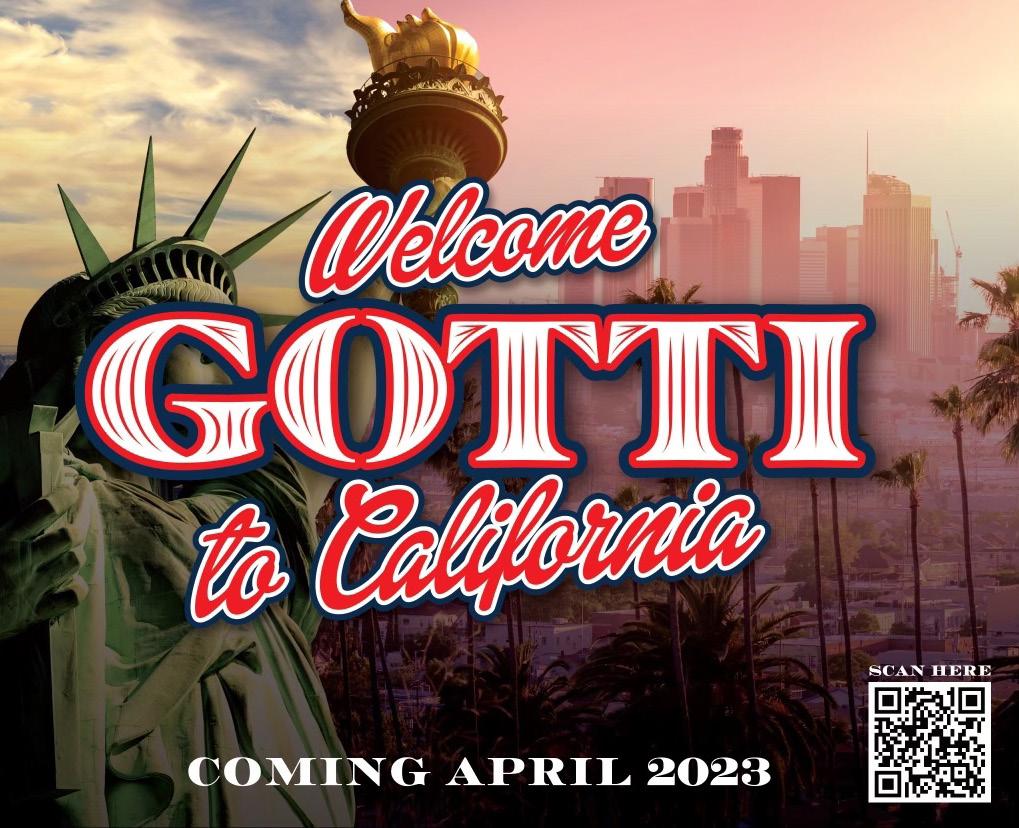
HASH OF THE TITANS FIDEL X CHAMPELLI

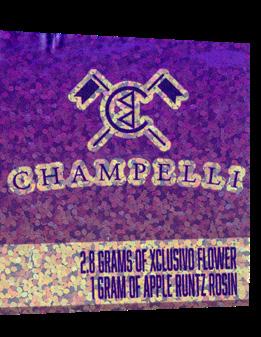

It’s a First-class Matchup. Legendary cultivator Champelli, California’s Bay Area OG known since the 1990s for his Champagne strain that evolved into his eponymous strain. The hiphop shout-out GOAT sits with Los Angeles-based innovator Shant “Fidel” Damirdjian, pioneer of the modern hash hole. If you’ve ever smoked a hash hole, it probably was Fidel’s. He’s an industry icon whose cultural savvy has created a following that transcends cannabis into fashion and beyond. These tastemakers come together in a rare discussion to explore Fidel’s sudden meteoric rise after 10 years in the cannabis industry, his groundbreaking cultural collaborations, his deep horticultural knowledge and so

INTERVIEWS
much more. The trendsetter (born in Lebanon) has done many noteworthy collabs that reached the mainstream, including this year’s milestone crossover done in partnership with the Carrots fashion brand by streetwear designer Anwar Carrots.
From one era to another, it’s not passing the torch –it’s torching the same spiritual hash hole.



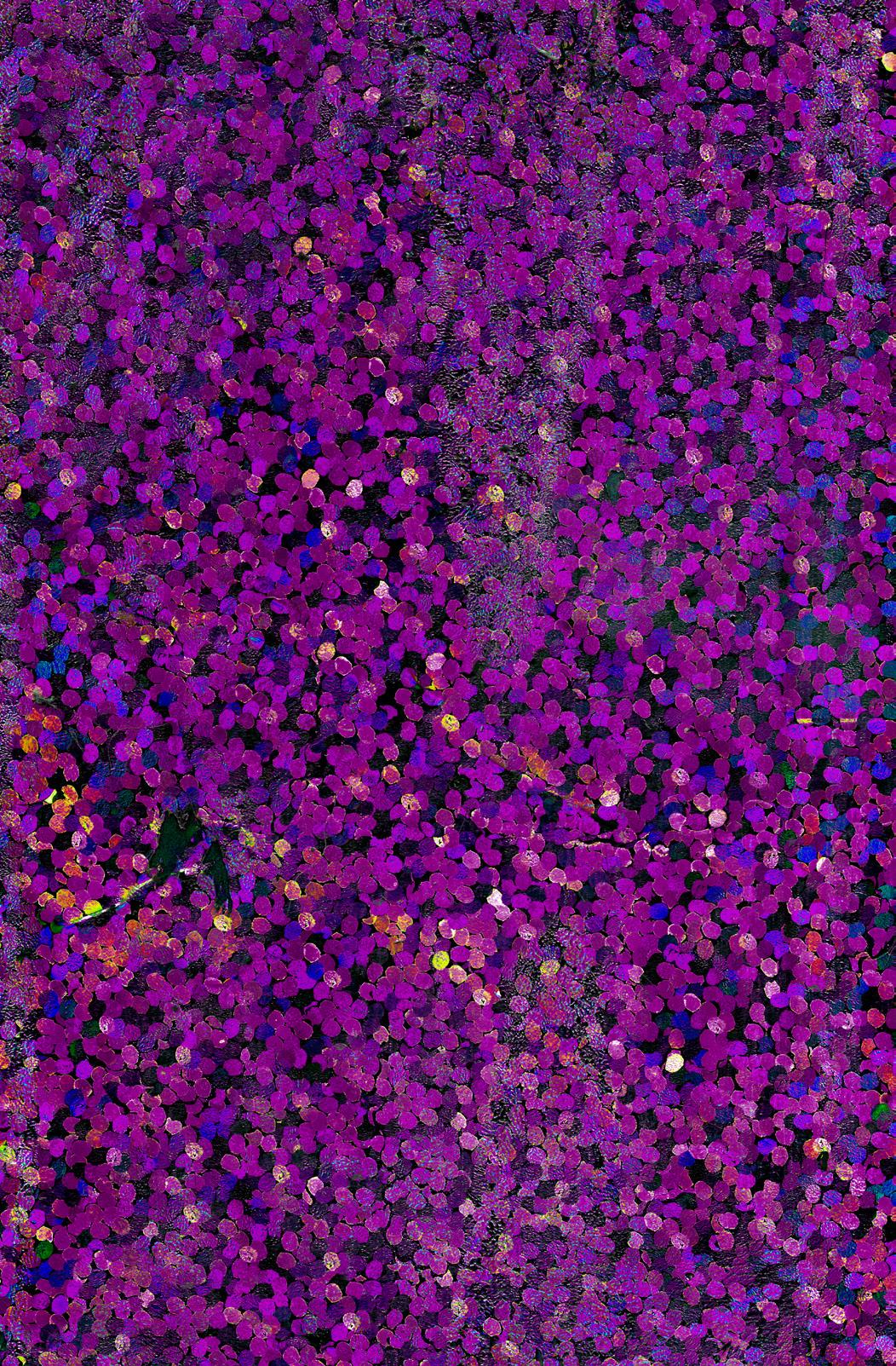

CHAMPELLI: Let’s start by talking about your early beginnings.
FIDEL: I had the privilege of living my life back and forth between L.A. and Beirut, Lebanon. I learned how to run my dad’s supermarket [in Lebanon] from age 13 to just before I turned 18. I have two older brothers who were already out here in L.A., cultivators growing and selling weed their entire lives. Today my brothers have their own brands. My eldest brother Aram has a brand called Gas No Brakes. My middle brother Serge has a brand called Serge Cannabis; he’s also known for founding Cookies Maywood and Fiore. What’s cool is all of us exist in our own lanes. We will help one another out and collaborate as need be, but it’s dope because you don’t hear of families doing this together. And when you do, you still don’t hear of them each having their own lane and brand, so that in itself is unique to me. My brothers have been through a lot, being raided and going to jail. So it’s been a privilege having an example, being shown success and failure and succeeding after failure. It was a shortcut for me in many senses.
CHAMPELLI: That’s true resilience, especially in this industry that’s so cutthroat. They’re good guys.
FIDEL: When I decided to move to L.A. at 18, my brothers had two dispensaries at the time, and a little 1,000 square foot hydro shop. As soon as I started helping them, within a month and a half, the dispensaries got raided. I watched my brothers lose everything and I had no choice. I ran the hydro shop for nine years. I spoke to growers every day, going through the trials and tribulations while I was growing. I turned that 1,000 square feet into a 26,000 square foot superstore. That’s my foundation in the industry.
CHAMPELLI:That’s a super introduction to the game right there, already having family in it and seeing the ups and downs. And coming from another country, which is like a whole other world, and having to adapt to L.A.
FIDEL: Yeah. I’m Lebanese-Armenian.
CHAMPELLI:Can we talk for a second about this year being the 100th anniversary of the end of the Armenian genocide?
FIDEL: Yes. My last name is Darmidjian and I’m as Armenian
as it gets. Over 1.5 million Armenians were massacred in Turkey [in the genocide of 1915 to 1923], a small period of time. To this day Armenians are trying to put up a fight in having the genocide acknowledged. It’s significant that it’s been such a long time and no action’s been taken. But I’m part of a new generation that brings awareness to it. It’s a great part of my past. It’s the reason my family ended up in Lebanon, because of my great-grandma. She passed away a few years ago, but she lived through the genocide and made it to 105. Her husband lived to 107. They didn’t smoke, but they had these old habits and daily routines that I try to dissect from to see what I can learn.
CHAMPELLI: It’s making your own rituals. Man, that’s an amazing adventure in itself, coming from a family like that. Then your brothers were able to tap you into the cannabis space and let you into part of the journey they were already on. Then being immersed in the grow store culture is a college degree in itself.
FIDEL: Yeah, and mind you, I’m from the first of an era that didn’t have to look over its shoulder. Your era, you guys always had to be careful. I didn’t have to. I guess that’s my privilege.
CHAMPELLI: After building the business up, when did you start to transition into the game yourself?
FIDEL: I was always growing while I was at the hydro shop. I started branding in 2016, but what really triggered it for me was in 2018 when I went to Spannabis in Spain for the first time. I got to go with a lot of OGs, and I learned so much and came back so motivated. I kicked off my brand and it went to a whole other level. I went from being a guy who grew really good flower to being known for the hash hole.
CHAMPELLI: The hash hole has become a household name now. You were one of those pioneers that brought it to the culture in a more digestible way for everybody. Europeans have always been mixing hash in tobacco and weed and stuff. But in the United States, people really weren’t doing that. You brought it to the masses here where they could be like, “Damn, I want to try that!”
FIDEL: Yeah, it’s been an honor. What a great journey.
17 VOLUME 16 @HONEYSUCKLEMAGAZINE
Intro by: Adam Ali
CHAMPELLI: Where did your nickname “Fidel” come from?
FIDEL: People started calling me Fidel Hydro over time because I worked at the hydro shop. I wanted a cool alias. I looked up to a basketball player named Kevin Durant at the time and his Instagram name [is] Easy Money Sniper. It’s a real smooth criminal name.
I crowned myself Fidel Hydro [for] “hydro store.” But when I decided to brand it, I knew that I’m trying to gain the world, not just who’s in the circle. Fidel is simple, five letters. That’s how Fidel Hydro, and now Fidel’s, came about.
CHAMPELLI: It’s definitely become an iconic name synonymous with hash holes and quality in the culture. What are your thoughts on rosin and hash coming into a crossover moment?
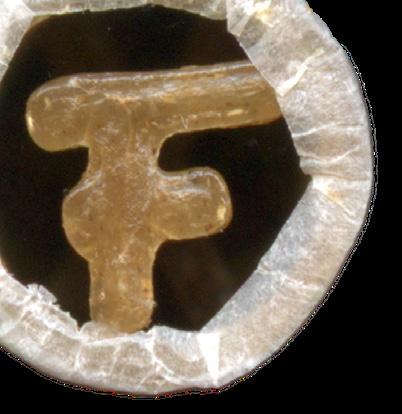

FIDEL: It’s awesome seeing what it’s coming into. Every brand will have its own hash hole or donut eventually. We’re at a time where hash is the best it’s ever been, flower is the best it’s ever been. There are so many tastemakers out there. Now these growers, consumers, rollers are all chasing a high. I see it getting a lot more competitive, more companies coming out with hash holes, and it’s just the level that everyone’s lungs graduate to.
I went from feeling salty, to [being] humble about it because I’ve paved the way for a category with everybody. In this industry, that was going to happen with me or without me. But where I took it, and how quickly things scaled up, it’s made people realize that it’s a really lucrative business. It’s the right way of consuming hash and flower together. I’m happy I get to provide for so many people. I get to provide for my competitors too in some sense; everybody’s driven the game up and going harder because of the hash hole category.
CHAMPELLI: It’s definitely an evolution of the consumers’ palate. Hash and rosin are some of the purest forms that you could consume cannabis. When you combine the hash with the flower, it’s just the ultimate marriage of flower and quality. Even if a ton of brands are doing it, you’re the
original who brought it to the game. And I know you got a lot of dope stuff in the works. What can you say about your latest collab with [fashion brand] Carrots?
FIDEL: The Carrots collab was awesome. It was my first go at collaborating with a company outside of our industry. To take a clothing company that has a collab with Crocs, Bugs Bunny, Lego, and to be able to dabble in the cannabis industry with them – it’s an honor. We put together 500 limited boxes that had a 3D printed toy carrot. You open the top, there’s an original hash hole inside it. We gave consumers an amazingly paired hash hole in a figurine that exists in their living room forever, but we didn’t stop there.
We gave them a bunch of clothes that I took pride in making. I got to curate every bit of it from the cut-and-sew pattern, which is our own winter collection. We have our own sweats and hoodie, 50 percent cotton and 50 percent bamboo; we dyed them all in-house in L.A. with our own orange. We gave people the hoodie, the sweats, the limited-edition T-shirt, a headband we did in collaboration with Carrots and Buff Headwear, jibbitz for the Crocs [with] a hash hole image, all that plus half an ounce of flower and it was a hit. It was a wild moment for me, and I still feel like it’s making a bang to this day.
It took a year and a half, and every part of the project was prolonged for its particular reasons, but it all came out perfectly in the end… It’s like dropping an album; I wanted to get the timing of it just right.
CHAMPELLI: We had a hash hole collaboration too. That was my first collab and first national action on the market. I smoked one the other day, and it just burns forever, something about the hash and flower when they bind.
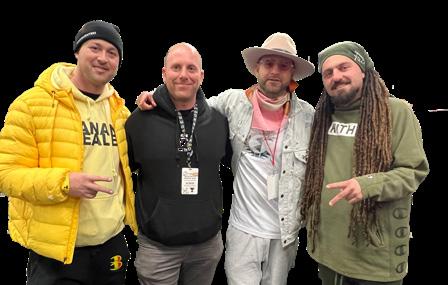










FIDEL: It’s so cool to me how people use them for celebratory moments or special occasions. I’ve heard of so many scenarios where they’re like, “Bro, we smoked this with four people after a hard day’s work in the field…” For them to remember a smoke session is pretty cool.
CHAMPELLI: I know the packaging aspect is also important to you.
FIDEL: Another part of the greatness about my brand is that we own all our own printers. We print and package everything in-house. My right-hand man, Dabber Dan, he’s responsible for a lot of the clothing and packaging products. But we have a very close relationship where I can tweak artwork as needed. It’s been a big advantage for my brand, to be able to bring stuff to market more quickly, executing my vision.
CHAMPELLI: You just took on a huge project with your new cultivation facility. How’s that going?
FIDEL: It’s going great. I had the pleasure of building out one of the most state-of-the-art facilities; it took me six months to do it with no general contractor. It’s an $11 million project that’s put my heart, soul, and everything I have into it. But we’ve been hitting the ground running for eight months now.
There were a lot of challenges. I have 767 flowering lights I have to pull down every 10 days, 250 to 300 pounds coming down. You realize how big of a ship you run, how it needs to be finetuned and work like clockwork. I employ so many people and that’s been a challenge in itself, but being able to scale up my genetics, to pheno-hunt every 10 days, has been the fun part. I have the privilege of growing almost 1,000 plants in each flowering room and I squeeze in new seeds every run. That’s what keeps it exciting for me: Looking for the new shit, and I get to do it faster than I’ve ever been able to, faster than most people can do. I wake up for that.
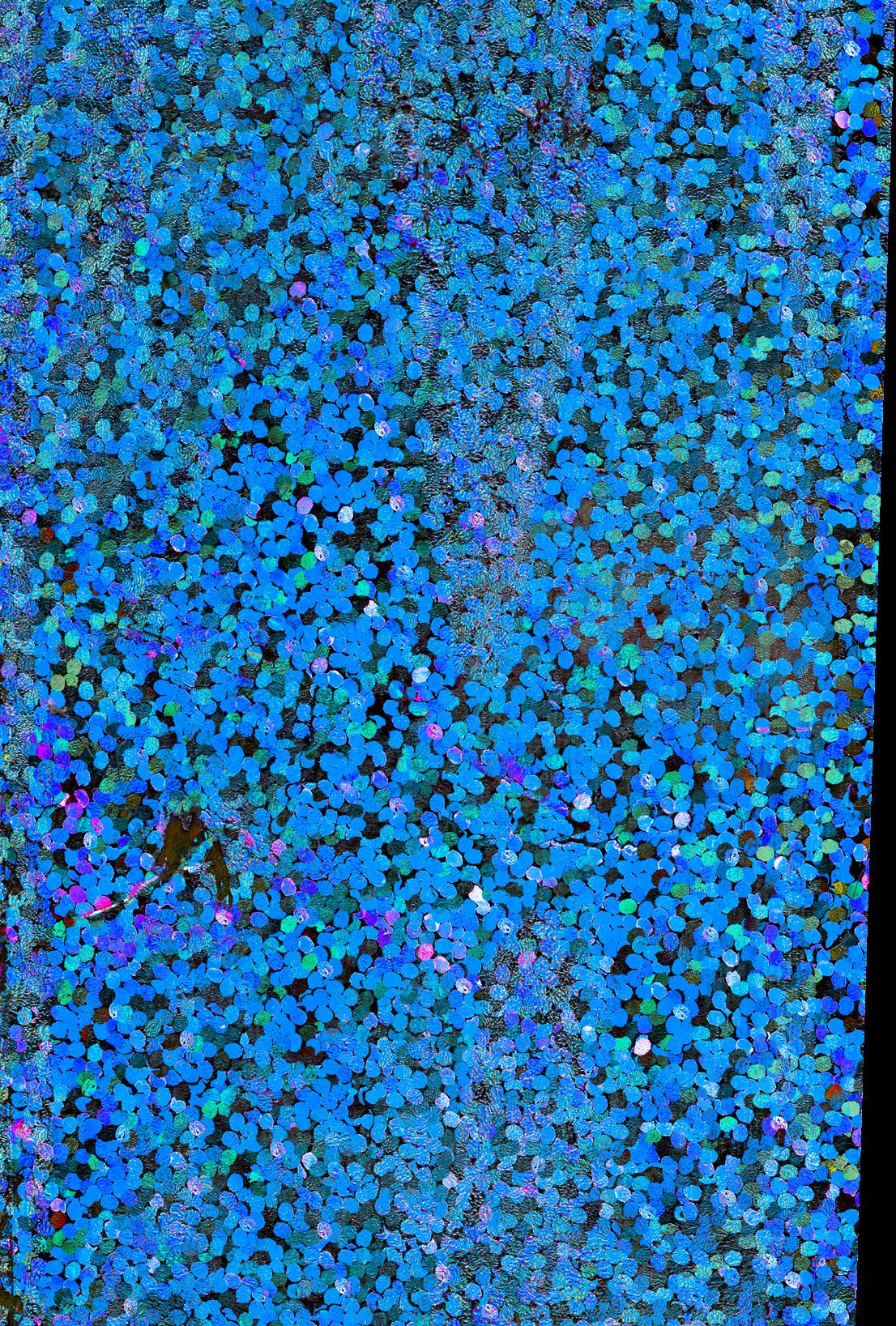
CHAMPELLI: For breeders and cultivators like us, that’s the most exciting part. Finding new genetics is like the pot at the end of the rainbow. What new genetics are you bringing out?
FIDEL: The next wave of genetics that I have are Runtz x Jealousy and Runtz [with] mellow crosses that I’ve bred. I’m hunting through all those and a bunch of different selections of seeds brought over from my last trip to Spain. I’m excited about how Europe breeds and how they’re one-on-one with their plants. Over here, everything’s kind of at scale. Over there, everything’s two to ten, twelve lights. They give a fuck about genetics and how things grow. I admire how much care [European cultivators] put into it. Aside from that, I’m hunting through each type [of my own genetics]. Tropicana Grape Cake, and a few other strains as well. I love that there’s so many craft categories of flavors. It’s still so untapped. I can’t wait till the day that we have strictly multiple strawberry and pineapple and grape phenos. Naturally tasting cannabis. That’s what I look for.
CHAMPELLI: As a boutique brand, how has it been to scale and maintain your “boutiqueness”?
FIDEL: It’s been challenging to say the least, but we’re doing it. The hardest part of what I did with this new cultivation facility was scaling up my practices that I’ve been known for on a small batch. So things like not settling with the fact that everyone in this industry uses salts. I want to use liquids. I like the results of how flower comes out with liquids. Not changing the fact that I have so many rooms, so many plants, and I’m on dripping meters. I still go through the trouble of feeding my plants tea brews. I hand-mix my cocoa if I need to, because I grow in cocoa. So I’ve been able to scale all our practices to the best of my ability. It shows that you can grow quality flower at scale.
CHAMPELLI: What should the public be looking for from Fidel’s in 2023?
FIDEL: A lot of cool hash hole collaborations. I’m working with Talking Terps… We’ve started working on hash holes and we’re going to start on flower, and hopefully we could dabble in clothing together too. My goals for this year have no roof, no ceiling. I want to work with the best of the best. We have a lot of cool genetics coming. I have this box called Fidel’s Head Stash, where I get to give the consumer four seven-gram jars that make up four pheno-hunted flavors by us and they’re all keepers. I’m scaling that up to the masses, getting into stores and dropping my flower there. I feel like I’ve won over the Southern California market. I have to take advantage of all of California now. I’m going to stretch my arms out and win over every budtender. Once I’ve got California on lock, I want to focus on other states.
I do credit a lot of this just to being dedicated to the craft and everything this community has. Me, my team, my family, everybody’s for one goal – for Fidel’s. When I say “legacy brand,” I want to live longer than one lifetime. How do they speak about your brand for lifetimes to come? It’s to make an impact
fidelshashholes.com@fidelsworldwide
IT’S TO MAKE AN IMPACT SO DEEP THAT THEY SPEAK ABOUT IT FOR THE NEXT 300 YEARS… I’M PASSIONATE. I’M JUST SO PASSIONATE.
SHANT “FIDEL” DAMIRDJIAN

 Cymatics, Hip Hop as AI and the Tip of the Spear
Cymatics, Hip Hop as AI and the Tip of the Spear
hamans of truth and sound, M1 (Mutulu Olugbala) and Stic (Khnum Muata Ibomu), AKA dead prez, are back.
Nearly a decade since their previous album under the dead prez nom de guerre, one of America’s most influential hip hop groups returns with a new project and all their “Revolutionary But Gangsta” RBG energy. Though times have changed(?), we still need champions to speak truth to power. Justice, equality, freedom, mental and spiritual health - OG teachings for dead prez - affirm that the truth still stands and they’ll be the ones to tell it. Look around, the revolution is being televised! Are you listening?
dead prez have been a constant presence in hip hop culture since their debut in the 1990s. M1 and Stic met as teenagers, bonding over their love of music and Afrocentric politics. As they pursued a combination of both entertainment and activism, they were discovered by producer Lord Jamar, and released their debut album Let’s Get Free in 2000, which was critically acclaimed as “the return of politically-conscious rap.”
Honeysuckle’s founder Ronit Pinto and Creative Director Sam Long caught a sacred sesh with Stic, M1 and longtime collaborator Umi (Umi Bem Niilampti) backstage at the Let’s Get Free Concert this spring, an event to benefit the Last Prisoner Project nonprofit in conjunction with SXSW. The trio parted the curtain to discuss their process: it’s the magic relationship between hip hop, cannabis, Black power, sacred music geometry, spirituality, and the latest magic being created.
SAM C. LONG: You have a new album on the way?
STIC: Yeah, man. We working on a new project, a new dead prez album. Been over a decade or so. We’ve been taking our time, living life, rediscovering our joy for the music in new ways and working with our extended team. Airbnbing, sharing ideas and beats and musicianship, and it’s coming together. I’m excited for the new stuff.
I came up listening in the bathrooms to my homeboys writing rounds about girls or this and that. You beat on the wall, you’d freestyle and do that. But there was a sense of taking that to the next level. [There was] even the intensity of understanding lyrics that Stic made me study a whole lot more from his own studying. Like syllable, word flows, and intention of what the lyrics mean when people hear him. He was singing songs that were already indicting the state; it was very critical of the system in a way that I could totally understand, ‘cause I came from that. I come from straight attacks on Black people. That’s my life. When I met him, my mom was in prison, so I had a lot to understand and then to develop into words. So what Stic is talking about, how I was able to develop, was a lot to do with how he had already developed a way to communicate.
Stic is evolved because he did and does all the deep multisyllabic flows and double times. That’s what Malcolm [X] does, and he’s compared to Malcolm in his consciousness and

kind of stature, but more in the fact that he makes it plain… So the Stic you hear today learned to be clear, laser-focused on certain kinds of communication. Hip hop is not the same today as it was then. Now I think the evolution of it, the “AI” of hip hop or message music, is the essence of what Stic brings to the table.
UMI: What can I say about these guys? I’ve never felt prouder to be with a clique. We were young and I always had my own thing going on, ‘cause that’s just who I was as a man. But these guys had a movement behind what they were doing, and I was never so inspired. Jay-Z got a line [in his song “Allure”] where he gives props to this dope dealer [Calvin “Klein” Bacote]: “I never felt more alive than riding shotgun in Klein’s green Five.” That’s how I felt with these n****s. And we wasn’t even on that shit. We was straight shooting the realest shit that you ever could shoot to any person, authority member, gang member, whoever the fuck was out here. We was telling them, “Yo, stand up and be about something and resonate truth in what you deliver, how you live your life as a person.”
And that’s it. And we were so gangster in that shit as kids, it makes me proud to be able to play that to my daughter. I never felt more alive than riding around with [M1 and Stic], and I never felt more right in terms of my aspirations and what I wanted to accomplish and believe in. We had each other, and that fueled a whole portion of my life… They also provided a lane for everybody that was around who wanted to do something with
music. We were all gifted. We had a crew of gifted, talented young men and we just worked together. They did a great job of leadership. So here we are now, back at it, leading each other still and aspiring for more than the average person can see.
M1: Good question.
STIC: Wow, good question. M1 has always been, to me, our statesman, our spokesman. We both emcee in the group, but M1 is just a people’s advocate. And when I met him, he wasn’t rapping. He was living his hip hop culture to the fullest, DJing and styling and breaking, but he hadn’t created his emcee voice just yet. Over the years I’ve watched him become a poet, a wordsmith, and a real articulate advocate for all of the issues that we believe in. M1 is a really unique and original writer. Lots of flows, heartfelt energy onstage and in the booth. Just one of the best voices and energy that you could feel in hip hop. Like when he says, “How you feeling?” You feel that shit. I’ve been seeing him mature as a man and still has the same fire as when I first met him, if not more.
M1: I feel every word Stic said, ‘cause definitely the journey’s been real. I met Stic when we were in our teens. [Stic] was 15 years old; I was 17… I feel definitely our brotherhood was like we’re able to learn from each other, teach each other, and all that. [Stic] was already a practicing lyricist, very honed in skill and adept. Like he said, I wasn’t an emcee, but I was. I was a DJ and a B-Boy, and I probably wrote like one, two raps in my life ever. But here was Stic, he had the mastery of someone who had done it like Big Daddy Kane or Rakim at a young age. It was very inspiring to me because I had not known a lot of other young people who had that kind of mastery.
S
SAM: You guys have been together for awhile and you’ve grown together as artists. What has it meant for you to see each other evolve?
SAM: This year marks the 50th anniversary of hip hop. Where, over that 50 years, would you say hip hop has been the most impactful?
M1: Hip hop is the number one export of America. Hip hop is the byproduct of America, the repression and pain from Black people that has been bottled, processed, and delivered to every single aspect of life to the world that represents America. I think it’s underestimated in what is old and the code that is distributed to the world around like hip hop, music, lyricism, culture, fashion, politics, et cetera. Even breaking norms, becoming new people and who we are. I think the ramification of what hip hop means to that [are] yet to be seen for a long time.
I’m so glad that this is 50 years of hip hop, but this is more than that for African culture. Hip hop is African culture. So we’re talking about a tip of the spear, with a long shaft of African culture that’s going through the heart of imperialist bullshit. This is what it’s always been. It’s been fiery, it’s been hot. It’s been really clear and explosive and exposing in its way. We’ve been a part of that riveting through life to figure out the meaning. We’re not talking about 50 years of hip hop, we’re talking about an amass of resistance culture, science, forethought, rhythm, and coding that has yet to be seen. I’m proud of us, from like Kool Herc and [Afrika Bambaata] and Grandmasters Flash and Caz, Kurtis Blow. The Fat Boys. LL Cool J. Those guys were breaking atoms. STIC: Rakim.
M1: We probably wouldn’t even be here without Rakim and all that. We wouldn’t have known how to do what we do, or be walking and feeling like we do, or even have some pride. We have a lot of pride, like African pride, and it comes from them instilling in us the pride to be Black. And that’s a fact. I wasn’t proud to be Black before that. I didn’t know how to be proud to be Black, you know what I’m saying? So at the end of the day, salute the hip hop for that, but it’s so much bigger than hip hop.
SAM: Stic, where do you see the impact of hip hop? It’s definitely a force, exposing these truths and serving as protest music and it’s active. But it’s been 50 years and some things haven’t changed.
STIC: The biggest impact hip hop has had in the world, huh? It’s been so many different dimensions. Hip hop has been a vehicle for young Black men’s voices to be heard and respected around the globe, in a way that had never happened before. When Martin Luther King was dreaming about little Black boys and white boys and everybody will hold hands, if you think about it in the racist reality we’re living in, that has never happened. But in hip hop, it has happened.
Hip hop is the culture where everybody can get in the cypher, where everybody can contribute, where everybody from all nationalities can be a part of it. It’s one culture. Elsewhere, everybody goes to war with each other, but in hip hop, you could come how you are. You could be classically trained pianists or beating on a bucket. So I think hip hop has been a cultural unifier.
In that way, I think hip hop has been outreached for a lot of issues from police brutality. We, the rappers, were the ones who started telling you [that]. Ice Cube and NWA, they put down that that’s been happening to us forever. But it ain’t start getting talked about until the rappers started putting it on wax. Hip hop is responsible for our consciousness in every way. Fashion, business, marketing, education, hip hop is in all the colleges and schools. You could get a Nas fellowship at Harvard right now. Hip hop is everywhere, from the jails to the higher institutions. It’s the language of people around the globe.
So I think it has become the vehicle and the voice of the voiceless, and it is only just growing and proliferating even more. From the 70s on, hip hop has been our AI. It’s that disruptive, radical technology that allows us to learn in our own way, at our own pace and express ourselves and have the tools of people like Massive Melle Mel, Run DMC, and Scarface. Those tools and soundbites and phrases where they’re pleading the case for our life. It is the technology of the freedom of our culture, and it’s in its baby stages still.

UMI: That’s why it’s so important to be careful as hip hop artists, who we align with when we do business. Shifting into the shit that we’re into in the cannabis culture right now, we always make the parallels that hip hop defiantly got sabotaged. And because of how powerful that shit is, they made sure that n****s that look like us don’t have ownership of it. As the pioneers and the voices of the voiceless, we’ve got to be careful who we’re making deals with, to bring into this world of hip hop. We’ve got very little movements as it relates to ownership, and gave away so much to motherfuckers that don’t have no alliance to our communities.
[Rapper Chuck D] said, “Hip hop is CNN for Black people.” You want to know where the community’s going? Look where hip hop’s going. That shit’s still true… And sometimes, that can end up being misfortunate, and we have to be careful of that. Be careful who we allow in. We control the helms of this music until we realize that we’re going to have all kinds of perpetrators pulling the strings.
SAM: Getting into cannabis, obviously you all have long-term relationships with the plant, culturally and spiritually, and economically because you all work in the industry. What has been the thread in the music with cannabis, that creative lubricant that’s helped to differentiate the whole process from anything else out there?
M1: It was so crazy. I remember this moment. Cannabis allows us to be out, really, truly ourselves. Let down certain inhibitions and be who we really are. I remember being in Tallahassee in 1990, 17 years old, and I had been smoking weed. I was with Stic and I remember Stic saying, “What that shit do to you?” And I was just like, “It relaxes me.”
Nobody had to tell me. I’m pretty sure it was ingrained from my father. You smoke weed a lot around me and I didn’t even know, ‘cause weed was the normal smell in my house. And for me, I know for sure that getting in touch with my soul and what we felt was that we were angry with the system, but it allowed me to be okay with being [angry]. We could talk about it, learn from teachers in a way that was respectful. Without weed I probably would have been disrespectful to the teachers because swallowing what the system was trying to give us was not easy. And it made us revolutionaries, but we had to become that knowing it was a fight. And in order to do so, we had to decompress every time. We had to go to the crib, we had to talk about the politics, what the system is, understand and delete it. With the aroma of cannabis around us every fucking time, it is the truth.

Cannabis… was the gateway to lead the police to come in to bust the movement. Even in our own way that we were proud of Black people and wanted to celebrate the movement and [Black Panthers] Huey Newton and Bunchy Carter and all the beautiful revolutionaries, and The Last Poets who were talking about these people in such colorful ways, we still had to do it in such a clandestine way. We still were not openly accepted, but this is something we were completely participating in all the time.
So today I’ve got to acknowledge cannabis as one and completely unified with all of our aims to free everything. We can’t separate it and act like one part is one part and the other part is the other part. It is completely organic. Today it makes more sense than it ever did before.
STIC: I started smoking herb in my teens with this guy right here. Being that he was from Jamaica, the way I started learning about the plant was from teachings he would give me about Rastafari. I was fascinated by how this African-inspired group was looking at the plant with such high regard, and respecting the experience that you have when you smoke. It was a whole indigenous respect for the plant.
Then I used to ask, as a young person, “Why is this illegal?” And it would feel like, “Why are we illegal?” There was a kinship in what ganja was to who we are. We’re just naturally being ourselves, but we were considered illegals. The rebelliousness of it made me connect with the plant like that, and people like Bob Marley. I associated the magic of the plant with how I felt about his music, how he would sing about the challenges and the frustrations, but in a sweet way. Bob was special with that. There’s a sacred space for ganja in a rebel artist’s heart. People like Tupac [Shakur] and Fela [Kuti], they all [had] some ganja in the studios at some point.
The criminalization of herb made it such a potential liability [to even] just have some herb in your pocket. The anxiety that you deal with, ‘cause you want to smoke. We as a community deal with a lot of trauma. And sometimes herb will help you to relax, but the criminalization of it adds to the stress and PTSD of the shit. And I went through a period where, for health reasons too, but also in terms of the laws, I was just feeling like I might get snatched away from my kids just for moving around with some herb. Or I might have to be in court, missing out on business and opportunity. So I had to separate myself from it. I went on a 10-year hiatus to get some discipline, avoid certain unnecessary shit with police stopping you and digging in your pockets. It was a good thing to do – if you’ve been smoking since you were a teenager, just to have some time to clear your lungs out. But I did that, and said, “Well, where should ganja fit in my life?” In a balanced way. In a way that I feel like I’m not abusing it, but am able to experience the benefits of it.
I’ve come full circle with respecting the plant. I respect the discipline and I respect the bliss-ipline of the plant.
RONIT PINTO: Can you speak to the relationship between spirituality and music in regards to the new album? There was a recent Instagram story you did where everyone was sitting around the table talking about that.
STIC: We were talking with one of our mentors, Alan Floyd. He’s part of our collective and in our new dead prez venture with Umi. Sean C is there too. It’s a lot of us working together to bring it to light. But we were talking about the frequencies of music, the tones and how the scientific evidence of different vibrations and tones invoke different feelings and moods and states of mind. You can look it up – it’s called cymatics, the organizing principle of sound. It’s all connected. Everything is vibration.
This is the conversation we were having, how the Earth was formed. In cymatics, if you put sand or powder on top of a speaker and you hit an 8-0-8, boom, like that, the sand will form in a structure like a snowflake or something. You do it again, it’ll form a different one. People said that’s how the Earth was formed, because the sound that is the pulse of the Earth, the vibrations holding the Earth, is what made the mountains ripple. That informed how it was formed when it was in its early [development]. We were asking ourselves how we can tap into that insight and make choices for the music.
We want to do 432 hertz, as opposed to the regular 440, because of how it affects us on a cellular level. So part of how we’re going about this project is considering these kinds of things. It’s not just the surface level of the music, but it’s the medicine and the recipe of the medicine of the music too. We’re exploring that and as young musicians still –

UMI: Music scientists!
STIC: So the new project is going to be layered with a lot of things we’ve been studying and sharing in a way that we hope could have the best impact.
RONIT: That’s full circle to hip hop, right? It started out as revolutionary, conscious hip hop versus the violence and detrimental system. But now we’re almost talking about the evolution of quantum leaps, and contributing to the evolution of humanity.
M1: Hip hop is a continuation of a culture that continues to thrive and not succumb to the most treacherous kind of stuff that’s been laid out to trappers. We could have been gone, you know what I mean? All of us could have been gone. There could have been stories that we could tell from behind enemy lines; we could literally be writing songs to get us out of jail. Then a lot of times America feels like jail to those who are restricted in that way. So we definitely feel akin to the people struggling… and we do indeed know it’s not about us. We are conduits for bigger voices than us. Hopefully our ancestors resonate through the songs that we make, so that when we say all the shit we’re saying, it’s making sense for generations of people, not just here in the present.
And I just want to bring the ancestors into the building, because it felt like the moment to talk about the culmination of what Stic is saying, and the full science of why we’re doing what we are doing, because it’s far beyond us. I would love for us to project a greatness that we know we are going to come into. I choose my words wisely because words are empowered. I try not to choose negative words. Living in our power, becoming who we truly are, actualizing, manifesting, those are the words that matter most to me.
STIC: Absolutely. We want to open up the conversation. Like, what is a song, what is a verse, what is a hook? Is a mantra a hook or a chorus? Why do those things have similarities and repetition? Why does rhyme stick to the memory more than what doesn’t rhyme?
M1: It’s effective.
STIC: Life is rhyme. Rhyme is repetition of the vibration, the sound… and it’s a spiral, right? So [the Universe] is all connected and the more people understand just uttering certain sounds is a remote control for different states. In Qigong [and] yoga, they teach this. Ommm. If that ain’t the 8-0-8, are we woke? That “om,” it’s the same vibration. The closer we can bridge that gap is going to be powerful, ‘cause we are the antenna and we can tune our frequencies. All our chakras at will, as we practice and connect all these ancient things. So the album is in some ways trying to embody that science. Just like herb. You don’t have to know the molecular structure of THC. You just have to –
M1: Get high.
STIC: (Laughs) And it do what it do.
For more about dead prez, visit deadprez.com or follow @deadprez on Instagram.
Artwork by: @Sebzilla
23 VOLUME 16 @HONEYSUCKLEMAGAZINE
ALL PROCEEDS SUPPORT HOUSING WORKS, A NYC NONPROFIT DEDICATED TO RELENTLESS ADVOCACY, LIFESAVING SERVICES, AND JUSTICE FOR ALL. WE PROVIDE HOUSING, HEALTHCARE, AND VOCATIONAL TRAINING TO THOUSANDS OF NEW YORKERS ANNUALLY, AND OUR DIRECT ACTION AND ADVOCACY UPLIFT COMMUNITIES THAT HAVE SUFFERED UNDER THE WAR ON DRUGS.

#MAKELOVENOTDRUGWAR HWCANNABIS.CO @HOUSINGWORKSCANNABIS NOW OPEN & DELIVERING! 750 BROADWAY, NYC FOR USE ONLY BY ADULTS 21 YEARS OF AGE AND OLDER. KEEP OUT OF REACH OF CHILDREN AND PETS. CONSUME RESPONSIBLY.
ERYKAH BADU
FULL SPECTRUM
Intro by Ronit Pinto
Erykah Badu. Spiritual. Music. Cannabis. Goddess. Like the plant, Badu is a full-spectrum artist and entrepreneur who recently launched her premier and premium cannabis line, “That Badu,” a collaboration between international cannabis brand Cookies and Badu’s cannabis accessory brand, Apple Trees. To me, Erykah Badu embodies so many of the core elements that Honeysuckle represents. Individuality, beauty, freedom, natural talent and grace. Watching footage of her past performances before our photo shoot with her at the Cookies’ Maywood store and grow facility in Los Angeles, I was transported to another place, another dimension, really. Not only is she brilliantly talented, but she also takes the time to truly connect with her audiences in irreplaceable and one-of-a-kind ways. Every performance is unique; she is in it, she is there, she is present.


The fact that Badu and rapper Berner, the founder and CEO of Cookies, insisted on meeting every single individual in the queue that wrapped around the block at Cookies Maywood for her “That Badu” release, didn’t come as a surprise to us. We were excited to patiently wait for the subject of our cover photo shot.
It was worth the wait. In addition to our one-on-one time with Badu, Berner and Edwin Movagharian, the owner of Cookies Maywood, invited us to tag along on the tour they gave the Badu team. With a focus on women’s health, wellness, and empowerment, the images we took and the spread’s ensuing designs reflect the sentiments that Badu portrays as well as that of her new cannabis company.
Award-winning journalist Candace McDuffie, who interviewed the singer for this story, is the author of the book 50 Rappers Who Changed the World. She said that Badu was her bucket list interview. Badu is a bucket list cover for us too and the perfect artist to symbolize the new emerging energies of the cannabis industry. Feminine, Powerful, Bold and Beautiful. B is for Beautiful. That Badu.
25 VOLUME 16 @HONEYSUCKLEMAGAZINE
By Candace McDuffie

Transformative R&B artist Erykah Badu has always embraced the concept of evolution. From her 1997 debut album, Baduizm, that captivated audiences immediately, to her continuously boundary-pushing work decades on, and into journeys where most may fear to tread. The Dallas native and four-time Grammy award winner is a revolutionary in her own right - and her next evolution is with an equally revolutionary plant, in the form of her new premium cannabis line “That Badu”.

Earning the honorific “Queen of Neo Soul” from music critics, she stands as a pillar of the genre. Her vocal and visual style, sometimes noted as a mix of Billie Holiday tones and Afrofuturism packed with raw emotion, inspired numerous younger artists: SZA, Ari Lennox, She is a mainstay of the genre, earning the title “Queen of Neo Soul” from music critics. Numerous younger artists, including SZA, Ari Lennox, Jillian Harvey, and others who have been dubbed “Badu Babies,” were inspired by her vocal and artistic approach, which has been compared to Billie Holiday with elements of Afrofuturism and raw passion. She has appeared in numerous hip hop, R&B, and pop songs over the past 26 years and is thought to be the inspiration for the character of “Ms. Jackson” in Outkast’s famous song. She was the only woman of the era to shatter that particular barrier because male contemporaries like The Notorious B.I.G., Lil Cease, Redman, and M1 and stic from dead prez admired and resonated with her creative strength even from her earliest days. Badu tells Honeysuckle there was simplicity behind her subversive introduction to the industry. “I guess it was because that’s where I was… as an artist, as a woman, as a person. It’s changed throughout time with me as I evolve or eliminate or create…and I share that.” She has five studio albums under her belt and a distinctive voice that details Black womanhood in a way that only she could execute.
Now the superstar, whose cannabis advocacy is documented through her creative output (see her classic “On and On”), steps into the industry side of weed. On March 8, International Women’s Day, Badu’s cannabis company Apple Trees introduced its premium line of products called “That Badu” in conjunction with the globallyrecognized cannabis lifestyle brand Cookies. The initial drop featured flower, pre-rolls, and eighths and took place at the Cookies Maywood dispensary in California.
“It was really cool,” the artist says of the Cookies event. “It was emotional, even, because I’m so proud of my friend [and Cookies’ cofounder] Berner, who has worked all these years to build his enterprise, which is expanding and doing very, very well… I’m inspired by his work ethic and his creativity. Working with his company has been a real joy to us at Badu World. It’s been fun. Work is fun. That’s what I love about it.”
The “That Badu’’ strain developed for the project is a terpene-saturated Lemoncello (AKA Limoncello or Lemonchello 28) crossed with Jet Fuel Gelato. Bred by leading cultivators at Cookies’ sister brand Lemonnade, the cultivar’s genetics are rare and cherished by Berner, who told Leafly that he’d been waiting for the right opportunity to use them. Reviews of the strain call it “strong,” “funky,” and “euphoric.” Most important to its namesake, is the fact “That Badu” is curated to address women’s health from a holistic standpoint.
“I guess it was because that's where I was... as an artist, as a woman, as a person.”
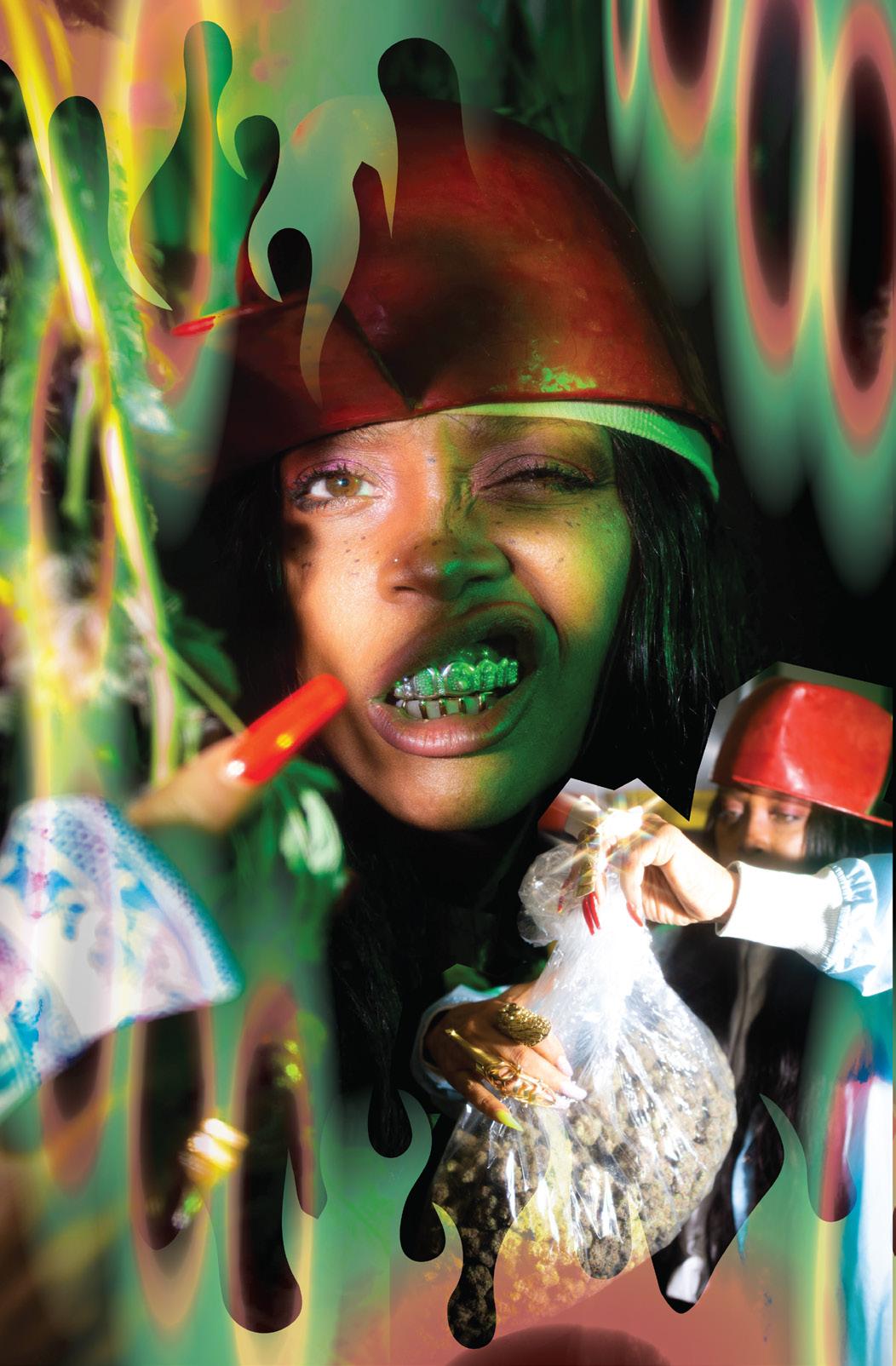
“my strain is for everyone, but my interest is women and our health in every way mind, body, spirit.”
“After studying and researching where I would be valuable in the cannabis conversation,” she explains, “I found that joining the dialogue with women who are in cannabis – women farmers, women activists, women dispensary owners, women growers, women connoisseurs. People practicing ritual. Just communing with all of that made me feel like I could add something to the conversation. And my strain is for everyone, but my interest is women and our health in every way –mind, body, spirit.”

That aspect of cannabis speaks to Badu most prominently. Though she affirms that she’s consumed “at different times in my life for different reasons,” the vocalist finds the plant singularly impactful for artistic expression: “It always has a spirit of really being free and creative and always eases my mind so that I can focus and be able to discriminate between things that serve the moment and then don’t. So it helps me to focus creatively. I don’t take it for granted. It’s a gift, it’s a medicine… It’s a ritual.”
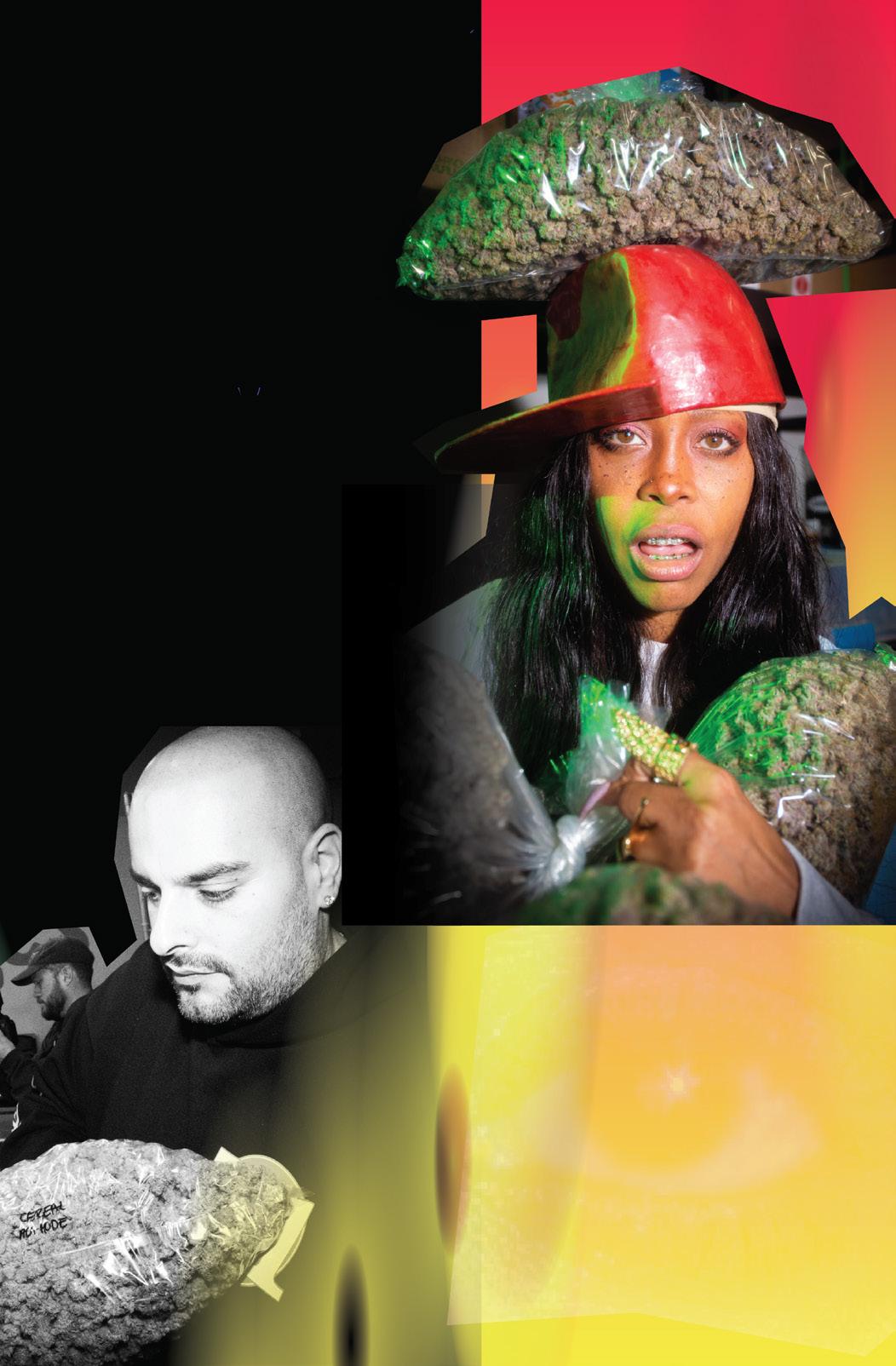
“Ritual” as both concept and practice mean everything to the deeply spiritual performer. “It’s a plant medicine that has been used from the beginning of time,” she acknowledges, and advises that consumers treat it as such. When asked how she hopes people will connect with “That Badu”, she immediately suggests doing exactly that, “Just treat it as ritual,” she said. Adding, “There are many types of strains, but things are what we say they are. Put it on the altar or aside for when you really want to commune. Be aligned. Be aligned.”
Partnering with Berner’s team, the artist reports, makes it possible for her daring aspirations to become a reality. “We meet once a week with every department–each of my departments and each of Cookies’ departments–to hash through marketing, publicity, packaging and whatever creative graphics that we have in mind. They tolerate all of my creative dreams and wishes. They are really easy to work with and our weekly meetings are a highlight to me…[I’m] just learning how it feels to work with a team who is kind and very much like Berner’s personality: laid back but still on the ball. Everybody is playing their position to the fullest.”
Keen observers might note the stunning “flower vase” packaging surrounding “That Badu”, featuring a logo that appears to be a Third Eye. While the musician demurs to confirm what it means, preferring to let consumers interpret its significance for themselves, she does admit that the design was a joint effort with renowned ceramics artist Roberto Lugo. “I did come up with the blue and white floral porcelain Persian/ Asian antique look… But [Lugo] painted the initial background, the artisan flowers, which are cannabis infused and mushroom infused in the other packaging. Berner’s team came with a few ideas and we fused them together and they became what you see today.”
Is that a piece of chaney* on the star’s finger on our cover? Chaney jewelry is made from shards of fine china that can be found on the beaches and old plantations of the island of St. Croix. The pieces are said to have a mystical, transportive quality because of their layered history. During slave uprisings against plantation owners, particularly the 1878 “Fireburn” rebellion, former slaves destroyed their masters’ luxury goods, shattering china and pottery across the island. These remnants, holding a history of oppression and revolutionary liberation, are still being discovered on St. Croix today. Metamorphosed into chaney, they become statement jewelry that symbolizes transposing generational trauma into beautiful heaing. With Badu, everything has meaning….
WWW.HONEYSUCKLEMAG.COM 28 VOLUME 16
“It helps me to focus creatively. I don’t take it for granted. It’s a gift, it’s a medicine.... It’s a ritual.”
As the “That Badu” line expands, the musical icon informs fans to look out for products including topical creams, edibles, more merch and accessories, and a mushroom tea line featuring adaptogenic, functional fungi. “Nothing hallucinogenic,” Badu notes with a laugh, “but very, very calming for the central nervous system and a good substitute for coffee for those who want to slow down on the coffee. There’s a morning blend and an evening blend. The morning blend has an herb called Blue Lotus, and so we blended the mushrooms with that. [Both blends are] really good… especially if you’re enjoying a nice spliff.”
If you’re seeking a more psychedelic experience, that could be possible down the line, but nothing has been announced yet. However, Badu herself takes mushrooms as seriously as cannabis. “It’s part of my very sacred practice, and it’s part of my personal journey. It’s not a recreational thing. It’s plant medicine that is very, very carefully timed in my life. Fungi is technology, so it’s a special relationship that I have with it.”

No surprise then that the next Cookies collaboration drop featuring many of these products in development - “That Badu” x Cookies SF apparel, topicals, edibles. Mushroom teas will be aptly entitled “That Badu Technology.” Scheduled to be released on the Cookies CBD and Badu World Market websites on May 14th, just in time for Mother’s Day, the new items are expected to reflect the same serenity that Badu has ambitiously bottled for enthusiasts to savor. And as always, to uplift the spirit of women.
After nearly three decades in the spotlight, Badu continues to inspire countless fans to stand tall in their truths and revel unapologetically in who they are. For Black women creatives, this is a complicated task–especially when the goal post for respect and acceptance constantly shifts for this particularly vulnerable demographic. Despite the sexism that still runs rampant throughout the culture, she insists that the pressure for women artists to conform has dissipated in the age of social media. “I would say we’re at the tail end of it because people are being granted permission to be creative… we’re flooded with examples of creative things every single day. I think people are beginning to be transparent and to feel okay with that.” In addition to serving as a mentor to a generation of new artists inspired by her work, Badu takes pride in showing up for her community in other ways.
The mother of three, who is a certified Reiki master, is also one of the world’s most famous doulas – assisting celebrities like Teyana Taylor and Summer Walker with their births. This calling began over 20 years ago after Badu assisted a close friend with her labor and delivery. “During my first birth, I was just a friend assisting another friend… just being there for her. The labor ended up being 52 hours. I was right there with her… I stayed up with her and walked with her and joked with her and talked with her. I guess I started to believe at that time this is a service that I can be happy inside of. That’s when I decided to become a student of midwifery and I became a doula. The relationships are pretty organic and we’re encouraging more and more people to learn about midwifery and [to become] doulas for people who are on the way in and who are on the way out. It’s a rewarding
29 VOLUME 16 @HONEYSUCKLEMAGAZINE
That’s right, “on the way out.” The artist is also a death doula, meaning that she provides end-of-life services to people.

Before the conversation ends and Badu returns to the hectic life of an icon, where crowds clamor for her and the audience’s energy at each session onstage “puts a battery in my back,” she stops to think about the best way to handle her favorite magic plant. The words curl out slyly, part whisper, part guttural growl that could be one of her songs - an ode to cannabis, which is Divine Feminine after all. Badu grins. “Go easy… It’s like a lady, you know what I mean?”
“That Badu’’ is available now in all Cookies and Lemonnade locations in California. For more information, visit cookies.co and baduworldmarket.com. To learn more about Erykah Badu and upcoming tours, follow @ erykahbadu on Instagram.
*Editors’ Note: On chaney, our Creative Director says, “It’s like a local gemstone formed by telling The Man to fuck off.”
“Go easy... It’s like a lady, you know what I mean?”
SEBZILLLA(AMERICAN, B.1993) IS A NOTABLE PAINTER AND GRAPHIC DESIGNER. BEST KNOWN FOR THE UNIQUE BODY STYLE OF HIS FEMALE CHARACTER ILLUSTRATIONS, ORIGINAL CONCEPTS, THE GLOWY COLORS AND DARK GRIMY UNDERTONES. SEBZILLLAS WORK WITH BERNER/ COOKIES GOT THE ATTENTION OF PAST COVER ALUM WIZ KHALIFA, WHO ORDERED UP AN ALBUM COVER.
SEBZILLLA BIG IN JAPAN

31 VOLUME 16 @HONEYSUCKLEMAGAZINE
HERE, SEBZILLLA CREATES A CUSTOM ARTWORK FOR CURRENT COVER ALUM ERYKAH BADU, PARTIALLY INSPIRED BY CHANEY (SEE COVER ARTICLE FOR MORE).
BLOWING INTO CANNABIS UNDER THE GUISE OF PIPES, SCOTT SOUTHERN, OF BORO VISION, PHOTOGRAPHS THE WILD WORLD OF SMOKABLE ART.
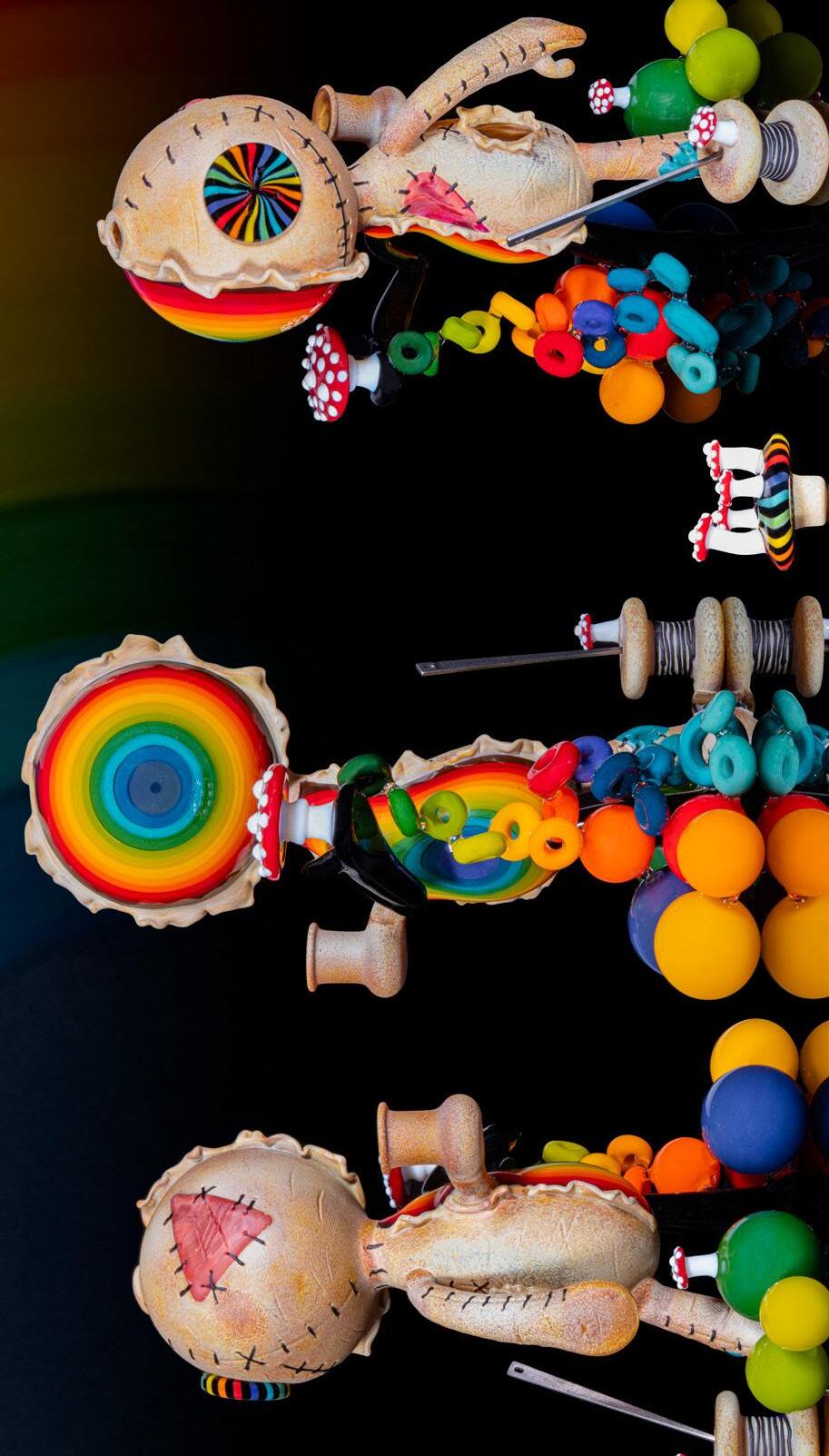
YOU CAN ALMOST FEEL THE CLOTH OF THE TEDDY BEAR, BUT THAT’S SIL
ICONE DIOXIDE FOLKS. THE STANDING DOLL SERIES BY MULLER GLASS
TEAMS UP WITH SNIC BARNES AS PART OF THEIR SHOW, “SUBTEXT”

@BORO.VISION @SNIC_BARNES @MULLERGLASS WWW.HONEYSUCKLEMAG.COM 32 VOLUME 16
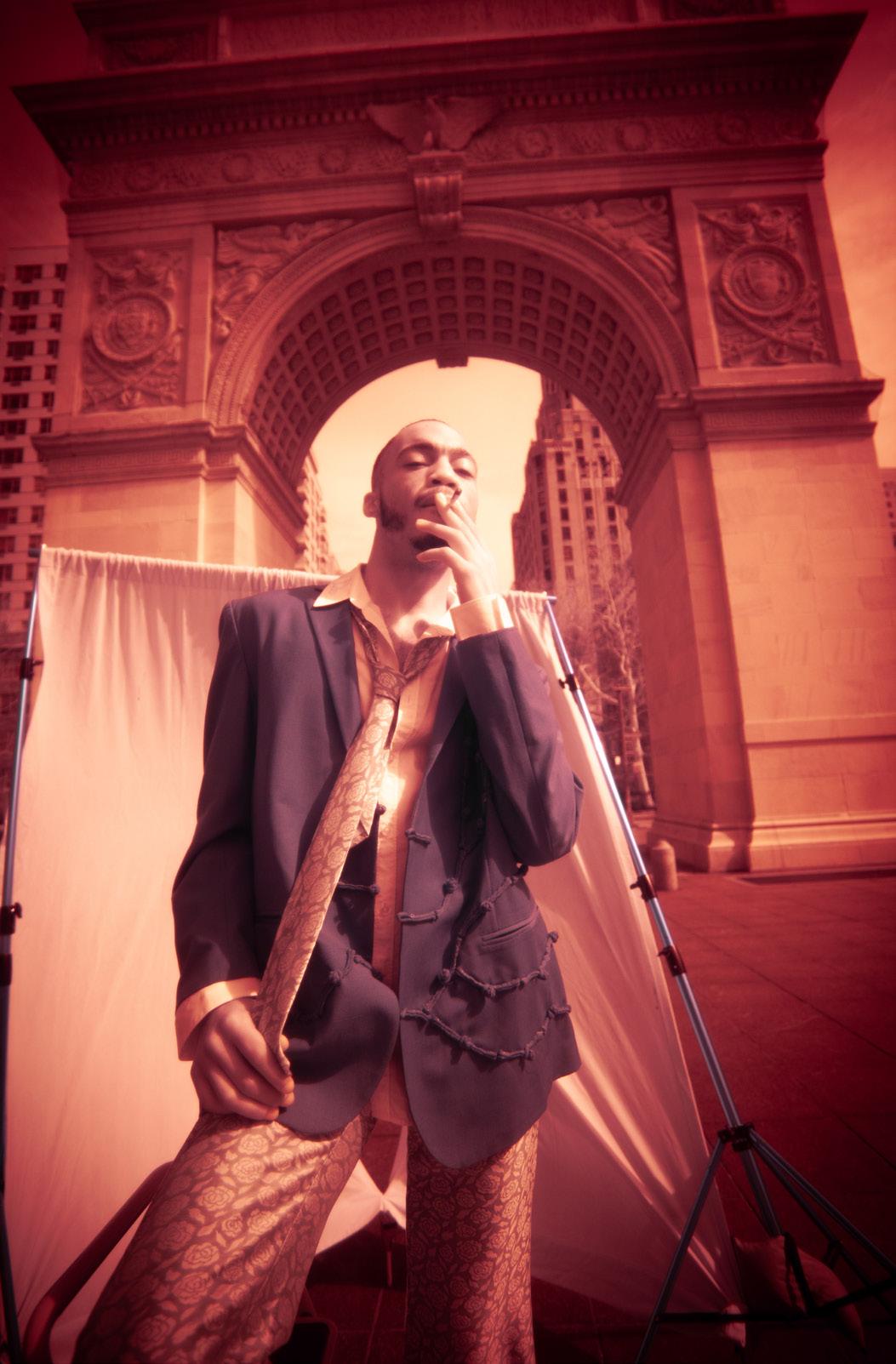 Jacket: run tan du @runtanduofficial
Tie & Trousers: Hiromi Asai @hiromi.asai
Shirt: Gucci @Gucci
Jacket: run tan du @runtanduofficial
Tie & Trousers: Hiromi Asai @hiromi.asai
Shirt: Gucci @Gucci
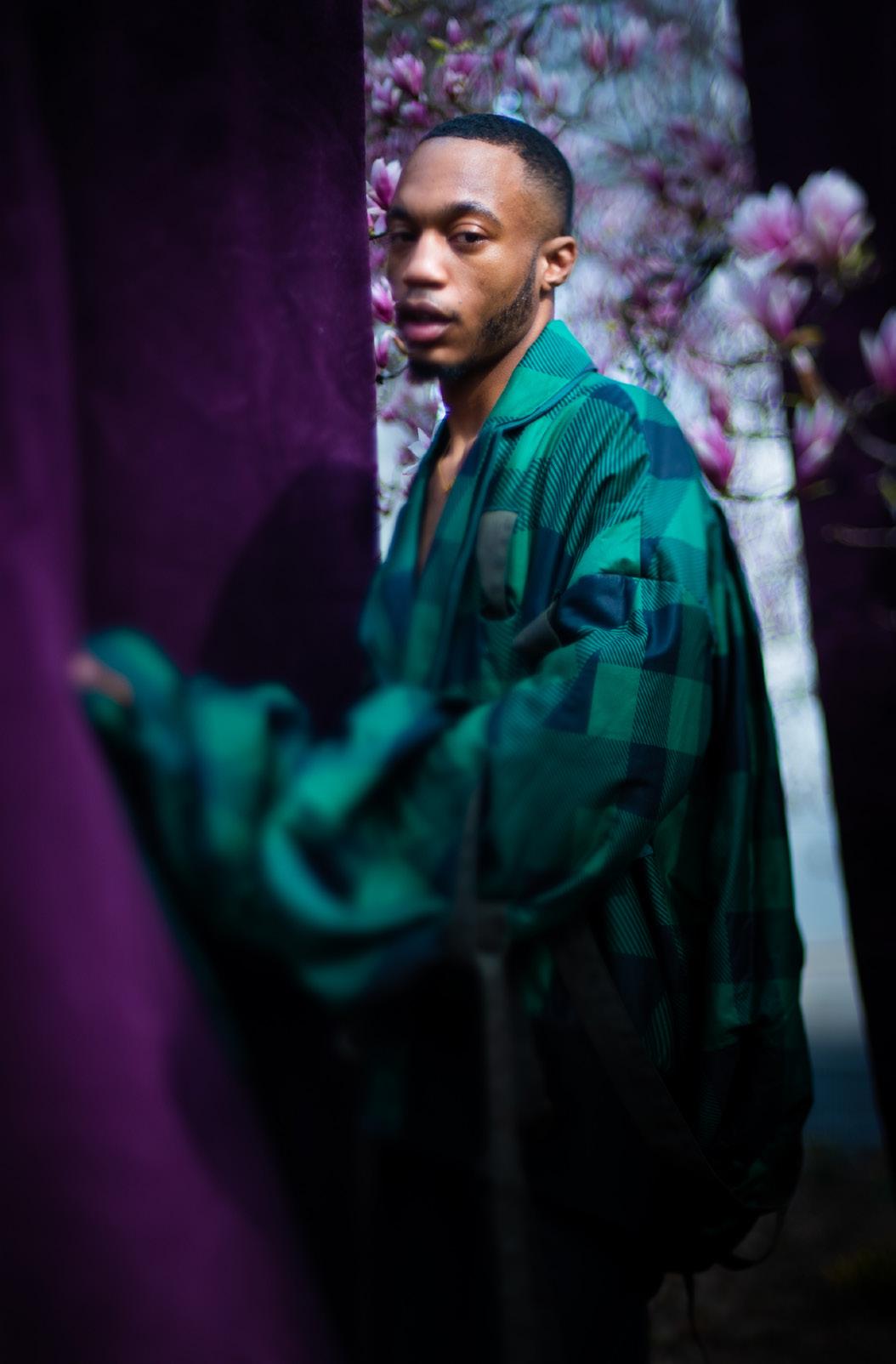
Jacket: JYURI RI @jyuri.ri.official
HIGH CONCEPT ART
You Deserve Flowers Model Creator Serge Fils -Aime
“I know a lot of people and I know how to get things done.” That’s the mantra of Serge Fils-Aime, the Haitian-born visionary whose multitude of talents as creative director, photographer, model, event producer and more have taken him to artistic heights. Perhaps you’ve seen him in the pages of Vogue, viewed his photography on Law and Order, or caught his work with Cara Delevingne. But if you’re a cannabis enthusiast, you might be most revved up for You Deserve Flowers, the annual 420 event that Fils-Aime has conceptualized to elevate cannabis to its highest interpretations of glamour.
HONEYSUCKLE MAGAZINE: Why do you choose to highlight cannabis in your work?
SERGE FILS-AIME: I knew since high school that once the East Coast jumped onboard like [California] and got cannabis legalized, and I was of age to start doing business, I’d be getting straight to work.
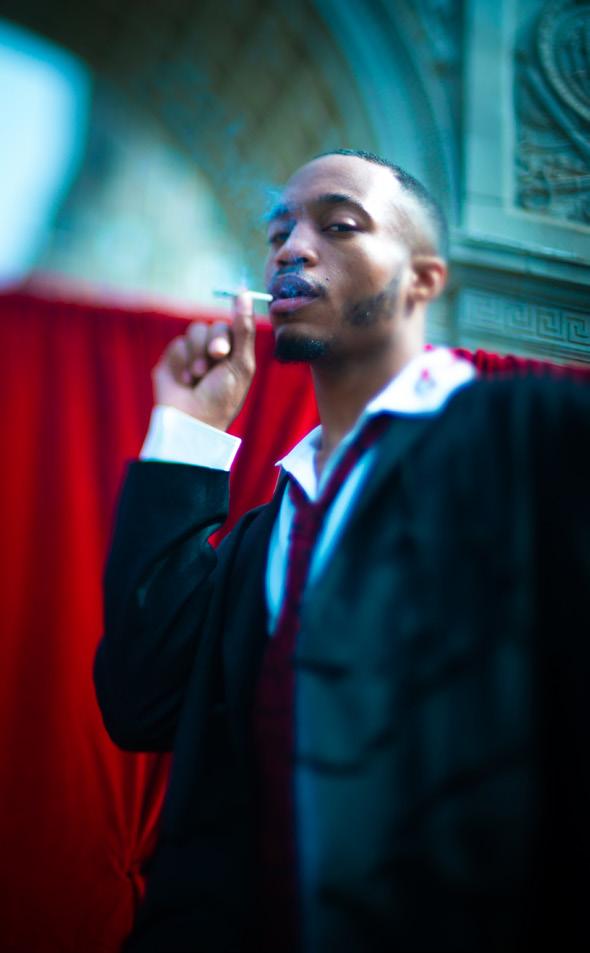
Cannabis got legalized, I turned 21, and exactly 6 months later I was directing my first cannabis event, Serge’s Tea Party: A Pre NYFW Mixer. I choose to highlight it in my work because my “work” is my execution of my creativity, and cannabis plays a role in my creative process.
How is cannabis received in the fashion world?
It’s very much a thing that’s taboo yet... we are all consumers? So I feel like, “Hey everyone, can we all stop acting like we don’t smoke weed?” I enjoy being greeted at the door with a glass of champagne, of course, but what if I had the option of being greeted with an elevated mocktail instead? How can we start to include cannabis in our events without compromising the values of glamour? I’m here to show the fashion world how!

How did you select your wardrobe for the shoot?
I asked my favorite friend in the world, Khalid Mosely, an emerging stylist, model, and tastemaker, to style me for this photoshoot. We visited a showroom together and I stood back and watched him do his thing.
Though, I was only choosy on one item in particular... The purple robe. I felt like it was a must-have! In my mind I was like, “It’s purple, that equals indica. It looks like a robe, that equals nighttime, nighttime equals sleep, sleep equals indica.” The green jacket I liked for its shape and bagginess. One could interpret a nug of weed from looking at it.
What’s the concept for You Deserve Flowers, happening on 4/22 this year, and why is it significant to you?
You Deserve Flowers is an annual commencement dedicated to reimagining the celebration of cannabis, community, and grandeur while establishing an elevated space for consumers and creatives alike. This upscale affair welcomes distinguished individuals of all backgrounds and orientations for an evening of glamor, music, and delicious infusions. Our team’s influence is motivated by redefining what it means to enjoy cannabis in a setting of prestige.
Mission: To curate a sophisticated and interactive 4/20 experience Values: Engagement, Exclusivity, Style, and Longevity
The event is significant to me because it symbolizes growth and maturity in ways that the vast majority may overlook, and I know, in more ways than one, how it feels to put in endless effort for change without the desired recognition.
Upon creating this event, I thought, “Hmm, I just hosted a tea party; it was formal chic... So what should I do next?” Then I thought, “Okay, 420 is coming up. We’re not in high school anymore, so we’re not doing tie dye t-shirts and bongs. How would a young adult celebrate 420 in an elevated way?’
Then it dawned on me that I should be partnering with cannabis brands that share my vision––that’s when I connected with Laura Eisman, co-founder of Her Highness NYC, she played a huge role in the making of this 420 event; walking with me every step of the way! And I also got connected with Zenco, a grand and new way of consuming cannabis using their table-top vape machine.

How does cannabis help you most?
I become very calm and creative when I smoke or take an edible. My focus is a lot more narrow and I’m able to complete tasks with ease. I am able to sleep better, if I’m in need of a sleeping aid, but for the most part a busy schedule is good enough. It’s great for a wind down after a long day.
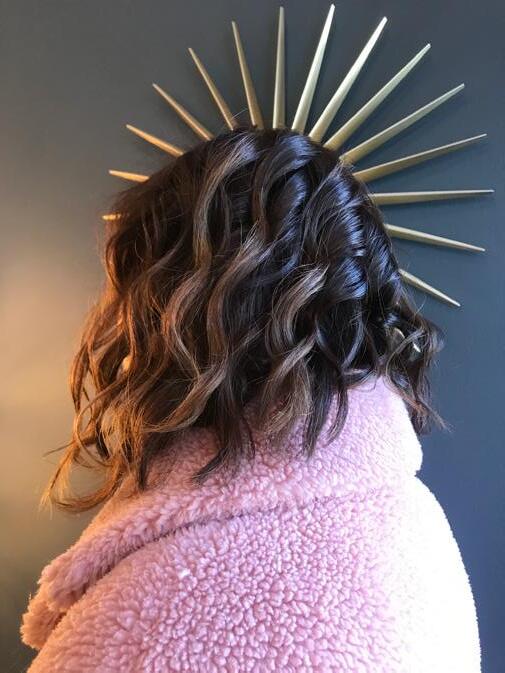
You’re up to so many amazing things! What do you look forward to most?
I look forward to taking on new work, directing events and projects for fashion, cannabis brands, and personal clients. Aside from that, I am eager to show the world what else I have up my sleeve.
For more information, follow @serge.fils on Instagram.
@iamlindsayloo JLByrd.com NYC, LINDSAY LOO WANTS TO DO YOUR HAIR! NYC, LINDSAY LOO WANTS TO DO YOUR HAIR! NYC, LINDSAY LOO WANTS TO DO YOUR HAIR! NYC, LINDSAY LOO WANTS TO DO YOUR HAIR! NYC, LINDSAY LOO WANTS TO DO YOUR HAIR! NYC, LINDSAY LOO WANTS TO DO YOUR HAIR! NYC, Lindsay Loo Wants to do your Hair! @ IamLindsayLoo NYC, Lindsay Loo Wants to do your Hair! @ IamLindsayLoo JLByrd.com JLByrd.com
The HEMPire Strikes Back!
Spring Favorites You’ve Gotta THC to Believe by
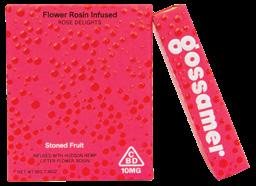

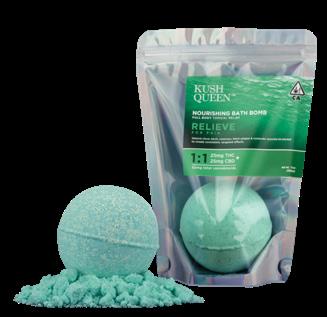 Staff
Staff
Well, well, well, looks like we’ve got a loophole, folks! So move over, viva magenta, there’s a new trend in town. No, it’s not the Color of the Year, it’s much more lasting. It’s a good batch of natural hemp-based THC products across some of our favorite ways to consume.







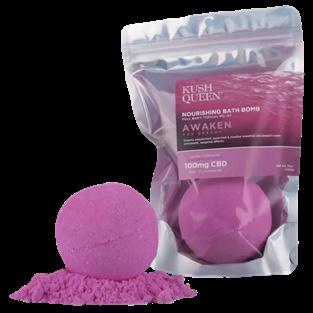




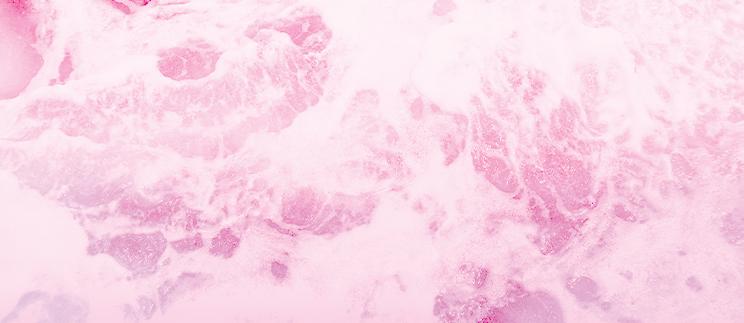

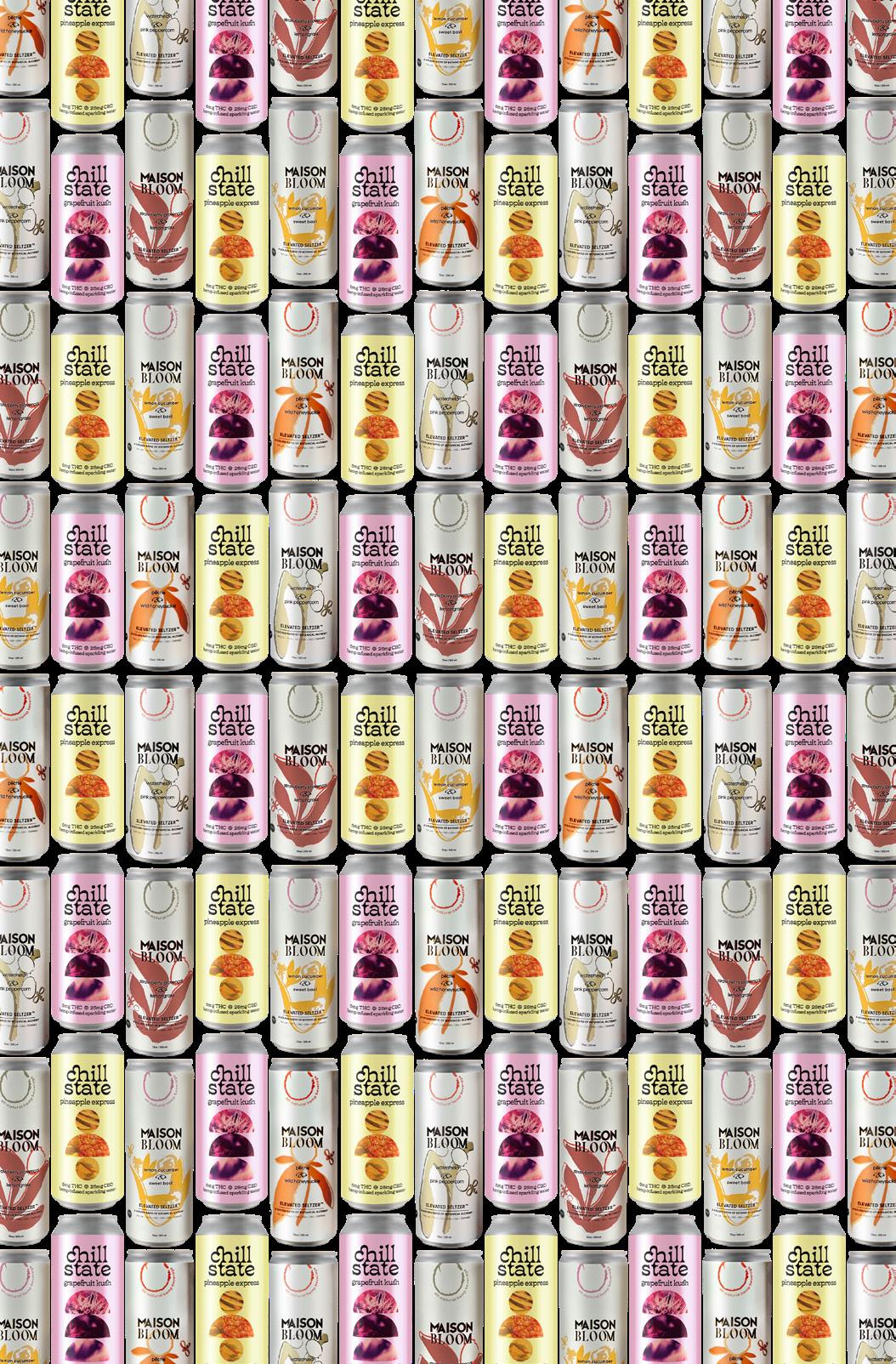
For those in need of an alternative to the over-regulated cannabis-infused market, Honeysuckle has caught wind of a growing set of trendsetters in the category of all-natural converted THC. Not all hemp-based THC products are created equal, so choose wisely, my friends. With quality options on the rise, these hemp-based THC options offer us the opportunity to finally indulge without feeling like “Big Brother” is watching our every move especially in markets that have yet to provide other paths for medicinal or legal cannabis THC. So, let’s get lit (in a legal way, of course) and embrace a slightly different type of high life.

We know that all cannabinoids, from Delta-8 to Delta-9 and even CBD, interact with our endocannabinoid system, and that’s why we’re living for these quality products that are pushing boundaries in the edibles, drinkables, and self-care game. And guess what? They’re doing it while playing by the rules and following the recent DEA position. No synthetics allowed… THCO can take a hike! With these natural converted hemp-based options, you’ve got a THC experience that offers a buzz that is comparable to cannabis THC and finally meets consumers wherever they already are whether that’s a restaurant, a bar, a favorite specialty shop, online, and just about everywhere else.
Since the active THC for these products is hemp-based, there’s a whole different set of places and spaces we can consume them. Some savvy players have already jumped on this train and are making moves by partnering with bars and restaurants. And get this, even celebrity chefs like Chef Crista Luedtke, host of the ReachTV series Lost in Taste and frequent star of Food Network’s Guy’s Grocery Games, are hopping on board. Luedtke’s adding all-natural hemp-based options to her “zero proof” section of the menu at her eateries and hotel properties. Who needs alcohol when you’ve got a little something-something to get you feeling nice and relaxed? California’s Guerneville (Luedtke’s restaurant that was named as one of Oprah Winfrey’s favorite things) is just another pin drop on the map leading the way to mainstream consumption and we love this journey for you.
From what Honeysuckle can tell, we want that all-natural goodness and we want it now. So take the leap into hemp-based treats for eating, drinking, sleeping, and living your most elevated life.
 HempInfused Sparkling Water, by Chill State
Elevated SeltzerTM, by Maison Bloom
CBD Gummies, by Penguin Flower Rosin Infused Rose Delights, by Rose
Nourishing
Bath Bombs, by Kush QueenTM
Smooth Operator Intimate Serum, by QuimTM
HempInfused Sparkling Water, by Chill State
Elevated SeltzerTM, by Maison Bloom
CBD Gummies, by Penguin Flower Rosin Infused Rose Delights, by Rose
Nourishing
Bath Bombs, by Kush QueenTM
Smooth Operator Intimate Serum, by QuimTM
teward is a lot of things, but she’s definitely not your typical weed chef. As a self-proclaimed “alchemist”, Chef Nikki is a highly regarded celebrity chef and a connoisseur of elevated cannabis-infused, high-end experiences. She has found a way to marry her lifelong love for food with her reverence for the science behind cannabis. Beyond working for celebrities like Dave Chappelle, DJ Khaled and Questlove, Chef Nikki has also made a name for herself with The High End Affair, “a touring cannabis culinary entertainment brand that brings together the cannabis industry influencers for an evening of food and networking,” per her website. A trendsetter, vibe creator, and staunch advocate for women in the kitchen, Chef Nikki is set on setting the tone for elevating the cannabis dining experience, while spreading the gospel of safely consuming plant medicine.
By Theara Coleman
geared toward celebrities. So I started doing that, but in between, I was working for Dave Chappelle [and] on tour with DJ Khaled.
That’s how I got my name out in the culinary space because I had been doing private chef services and grandiose events. I’ve also been an executive chef at restaurants. I’ve pretty much done it all. But I’m settled where I am right now, doing events and working for Dave. I get some pretty exciting opportunities to feed people.
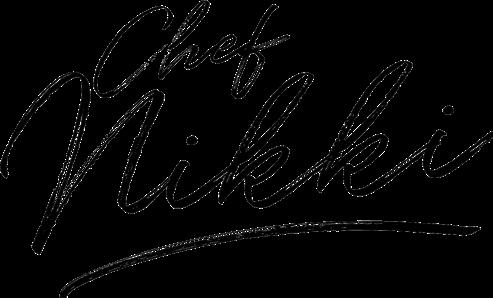
HONEYSUCKLE MAGAZINE: How did you make your way into the culinary industry?

CHEF NIKKI: My initial field of study was Pharmaceutical Sciences, so I was in that space before I pushed into culinary. I worked in the pharmacy space until I was about 27 or 28, then decided to change careers and become a chef. I’ve always cooked, and I would always host dinner parties. I started with the proverbial selling plates in college.
After I changed careers, I studied culinary in different countries like Thailand. I incorporate a lot of Southeast Asian cuisine into my aesthetic. I went everywhere and learned by working under other chefs. I did not go to culinary school because I had a general understanding. For me, food is science. It wasn’t that far off from pharmacy, and understanding basic ingredients and how to put them together. So I decided to just get in the kitchen and work. I was already a working mother of two by then.
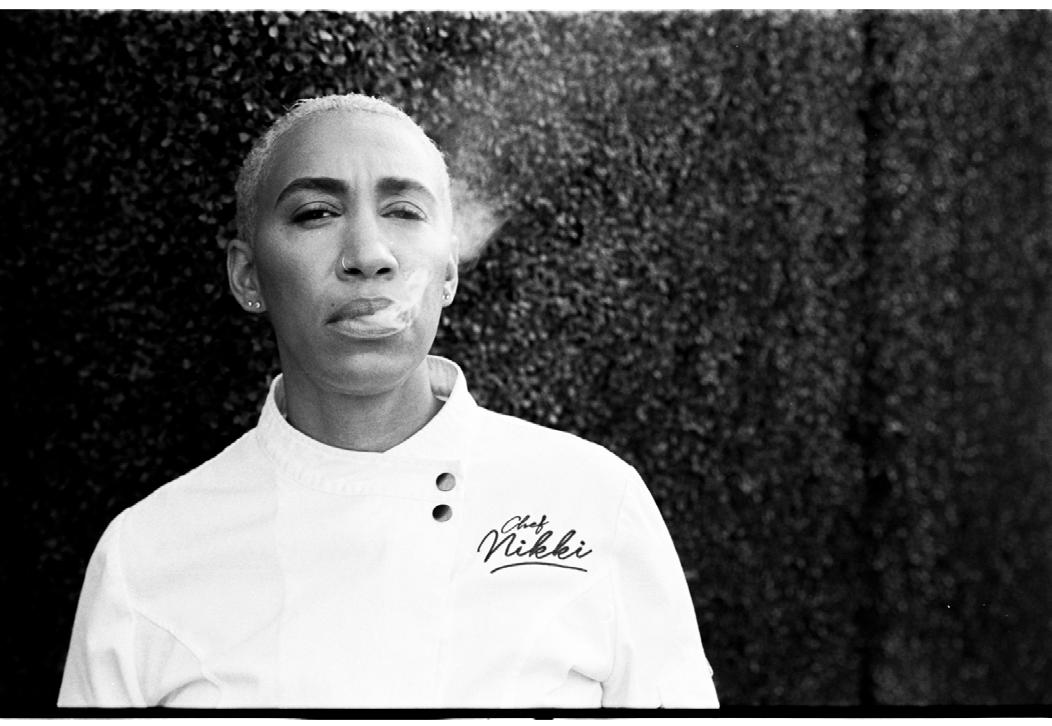
A lot of people continually encouraged me to get into catering. But at some point, I had someone whisper into my ear that there was a need for different types of higher-end events
HS: What made you decide to try adding cannabis to your repertoire as a chef?
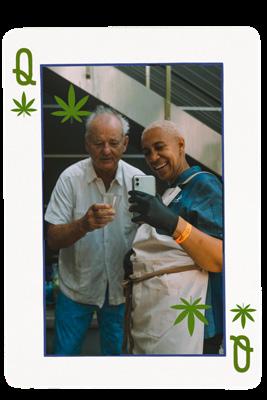
CN: I’ve always been adding cannabis into food, but on a larger scale, the first ever [cannabis] event I was asked to do was for Snoop [Dogg]. It was 250 people, an infused dinner party about seven or eight years ago. That’s when I started doing it in that capacity.
The thing about cannabis and food is I’ve been doing it for a while, but understanding the science behind it is different for me. Some people just like to throw weed in food. And I’m like, No, fuck that. You got to do the math, you got to do the science—you got to do the work behind it. You got to understand physiology, the body, safety, and mindfulness. It’s also taken me years to get the pattern down in which I operate. I don’t just come into an event like, ‘Oh, okay, it’s like 100 people here,’ and just sprinkle it in there. I’m literally with a notebook and a calculator, writing down all of my specs because I usually have multiple courses. You have to have a certain amount of milligrams per person, per course and per ratio.
Photo by: Estevan Oriol @estevanoriol
“I MORE OR LESS CONSIDER MYSELF AN ALCHEMIST…”
37 VOLUME 16 @HONEYSUCKLEMAGAZINE
HS: How do you navigate working in two male-dominated industries?
CN: [As] a Black woman in the culinary space, it hits me hard because…in the tiers of the hierarchy of chefs, Black and brown women are at the bottom. And typically, we taught [them] how to cook for sure. Our food history [and] our food IP is always erased and taken over and regurgitated in some other format.
Everyone that works for me in the kitchen is a woman, and that’s period, point blank. I keep my kitchen predominantly Black and brown women, but my kitchen is open to any woman, honestly. I’ve been very intentional about creating a safe space for women in culinary in order to get them to realize that they are much better than they think that they are. I would say that the women in my kitchen are some fucking badasses with different stories—all very different from me. We all do our own therapy together and try to heal from the traumas that we’ve had in kitchens…We’re all in a very communal, harmonious energy.
In the cannabis space, it’s completely different. [Among Black people] I think that our brains are so saturated in thinking that we have to have a dispensary or a grow, as opposed to thinking about all the ancillary things that are happening around cannabis that we can be really successful at. So I’ve had to combat that.
HS: What differentiates your process for creating infused meals from other chefs?
CN: I more or less consider myself an alchemist… since an alchemist is someone who understands plants and how to create harmonious relationships between the two. They [also have] a level of responsibility for guests or clients because you are their conduit for healing.
I feel the weight of people at my events. I feel the weight of their energy—of them releasing. A part of that is me also holding space while you’re having dinner. I want to make sure you get home, and I also [ensure] that you hit me back, like, ‘That was the best time of my life.’

I also do psychedelic conferences because it’s important for me to talk about how to safely use plant medicine. So I work with a group called Oakland Hyphae and The Ancestors Project. I talk about psychedelic parenting all across the country, how to safely use psychedelics as a parent to deal with day-to-day or to reset.
I do feel like there’s a weight of responsibility for what I’m doing. And not because I’m just trying to follow guidelines. It’s more like the ancestors put me in this space to be here. So it’s only right for me to do this to the best of my ability.

HS: Do you have any advice for prospective cannabis entrepreneurs or anyone interested in getting into fine dining?
CN: A lot of people send me messages and emails about wanting to work with me or they feel like they could do what I’m doing. I have an initial little smirk because I’m like, ‘You do not understand how hard [I worked] and how long it took me to get to this point.’ The one thing that sustains me and keeps me consistent is [knowing] the reason why I’m here. Because I didn’t get into cannabis for money. It was more like a journey for me...more connected to the soul. Not to say that I never fail, but I’m still protected. And I’m always expressing gratitude because I know why I’m here. I’m always reminding myself of my purpose. And that goes for both cannabis and culinary. Being in the culinary space is not lightweight. We’re doing real backbreaking work.
A lot of people are surprised that I’m still in the kitchen as much as I am. Number one, this is my name, and my brand, so why would I not be here? Number two, I still get joy out of working randomly. It’s still a safe space, a quiet space. If I’m frustrated, I will get in the kitchen and cook. I turned a hobby into a career and I don’t hate it. You have to have checks and balances in order for you not to hate it. Gratitude is one of my checks and balances. And I lead with consistency. I think that that’s important because a lot of people start off strong, but they’re not finishers. And the one thing that my entire kitchen always hears me say is ‘finish’, because completion is a real thing.
HS: Any new projects that you’re excited about?
CN: We’re doing our first event in Cape Town, South Africa this year at a vineyard. We have been working on this event for a couple of years now, and finally, we’re getting to the point where it’s coming to fruition. Essentially the new version of The High End Affair is focusing on more international experiences.
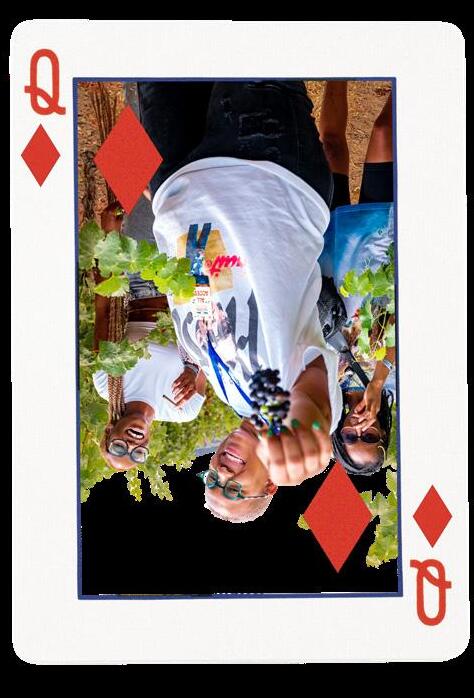
We also have Thailand and already have sponsors coming. People are really excited about the one in Bangkok and then we’re also doing Phuket. Since I did my culinary studies in Thailand, I’m pretty connected to a lot of those folks there.
The interesting thing is, we get connected to folks in the government space. Sometimes I find myself consulting with different government organizations on the safe consumption of noncombustible forms of cannabis. I’ve been asked by different countries in a lot of different places to bring these experiences there; we’re ensuring we are operating within the correct legal framework. Cannabis is not the same everywhere, so I have to work with folks in certain countries to get the products that I need. I use nano bioavailability products. That way, I can get you higher, faster, and in less time. My time is usually within 15 minutes on the onset. And then I can play with your physiology for the next four hours.
We’ll also be doing plant medicine retreats. We’re doing our first one at the Rohan Marley Beach House in Puerto Morales, Mexico, and I’m working on one in Costa Rica. These are all just part of The High End Affair’s experiences. The International stuff is going to be the biggest play ever, as soon as we can get out and start making money in other places. I’ve been trying to tell people that I’ve been the Madam C.J. Walker of culinary cannabis for the longest because I’ll just get myself out there, and see. I don’t mind being the trailblazer and laying the framework for everyone else. I really do feel like I’m doing this work just to pave the way for others and I don’t mind being that person because I don’t move in fear or scarcity. There were some people who told me I was going to jail when I first started. A lot of people were scared for me, including my own parents. But, I’ve turned everyone around me into a believer. My mission is always to save the hood and to convert people from synthetic materials and drugs over to plant medicines.
For more information, visit thechefnikki.com or follow @thechefnikki and @thehighendaffair on Instagram.
“I GET SOME PRETTY EXCITING OPPORTUNITIES TO FEED PEOPLE.”
“THERE WERE SOME PEOPLE WHO TOLD ME I WAS GOING TO JAIL WHEN I FIRST STARTED.”
Branson Unplugged New York Weed s Godfather Speaks
By Sam Long, Ronit Pinto, and Jaime



Even though he’s based his entire career on discretion, everyone knows the name Branson. The cannabis OG is on another level of entrepreneurship; not only has he supplied flower to all the major East Coast rappers since the 1990s, but he’s also become a staple of Harlem culture by dedicating himself to the community. Catching up with Branson in Harlem’s Sugar Hill neighborhood, where the legend’s roots are deep “since 1963,” he continuously reminisces with Team Honeysuckle, but stops just as often to chat with fellow business owners and longtime residents. His phone rings constantly too – because who doesn’t need advice from a pioneer?

Branson’s name has been immortalized in 73-plus classic hip hop tracks, from the Notorious B.I.G. and Tracey Lee’s collaboration “Keep Your Hands High” to hits by Nas, LL Cool J, Diddy, Redman. Called the Godfather of New York Weed, he developed such a storied reputation that his triangle-shaped packaging became iconic. The innovator established a pattern of bringing unique West Coast and international strains into the New York market that forever changed the scene, continuing to influence East Coasters’ tastes to this day.
“It’s a big deal to be able to bring something into the community that’s not available,” Branson says. “Sometimes you’ve got to tempt people with their taste buds. [But] what was really important was [being] able to service my community with a quality situation that didn’t exist. Being able to let our people acknowledge and feel good that they had something I made them a part of… I was surprised myself at times that I would come out to work and have people lined up around the block for the service. I had no idea that it would turn into that type of situation, but it was a viable situation and people were being serviced properly.”
“Service” pops up frequently in conversation with Branson. It’s a sign of his humility, a marker of his true OG status, that he reinvests himself into helping others. In his decades as a cannabis king, he’s simultaneously run numerous enterprises benefiting his hometown and beyond. The most notable is BJ’s Sugar Bowl, a retail and variety service that operated on a national scale for over 20 years. Sugar Hill locals are additionally familiar with Branson as proprietor of long-running juice bar Branson’s Got Juice, and as a haberdasher, art gallery owner, and partner in a music production and marketing company.
These businesses empowered Branson to give many young Harlemites their first jobs. “It’s part of an established cycle,” he describes. “The elders in the community with businesses gave the kids an opportunity to work. It made a difference to [hire youths] do something constructive as opposed to running the streets, doing nothing… I’ve watched kids graduate from college and get jobs, and they’re real grateful and thankful that I was able to give them that opportunity at that stage of their life. It taught them a certain etiquette in terms of how to deal with aspects of their growth and development.”
The visionary himself used to be one of those kids in need of responsibility. “I was a bad boy,” he chuckles, recalling his early days as a pre-teen graffiti artist. “We tagged trains
39 VOLUME 16 @HONEYSUCKLEMAGAZINE
and went to train yards and wrote on people’s walls and properties.”
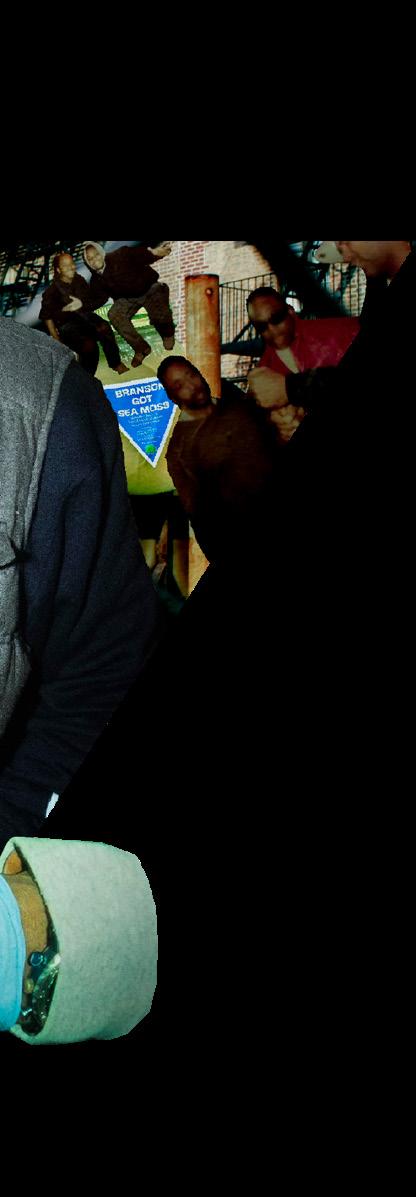

Under the name Trease-158, he was featured along with a group of his peers in the 1974 collection The Faith of Graffiti, photographed by Jon Naar to illustrate Norman Mailer’s essay on graffiti’s political and artistic connotations. Naar followed Branson and his friends around for a year, taking pictures of their adventures and inviting them to the New York School of the Arts.

Coming into his adolescence, Branson found social activism. He participated in marches for the Black Panther Party, noting the importance of the organization’s community programs, like free breakfasts for schoolchildren and the setup of local health
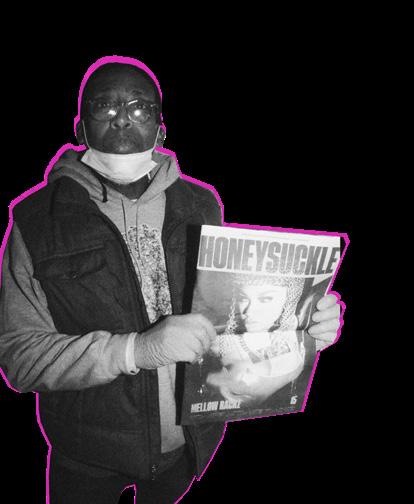

“You were made to understand the necessity of things that were lacking,” he explains when asked why the Panthers’ activities attracted him. “All these elements fused together in my existence. We marched – ‘Revolution has come, no more brothers in jail, pigs gotta catch hell.’ These are elements that transpired within the community during a certain period where they were affecting people in the neighborhood. [Overpolicing was] hurting the community. So they stood up and tried to find a solution to [what] they had to deal with on a daily basis.”

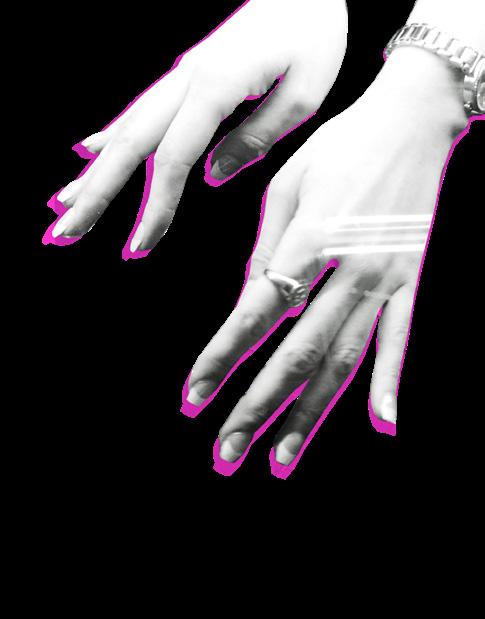
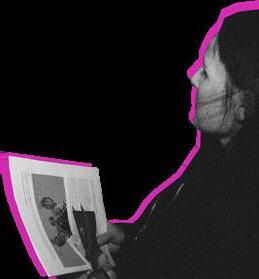
This is where cannabis started making a lasting impression on Branson. The plant had always been present, “part of the daily indulgence,” with smoking as a frequent ritual for teenagers in the area. According to Branson: “We were all youth able to engage in smoking a joint. The quality was good during that period, but it was just a different dynamic acquiring it. We used to go by $5 bags of Jamaican – five or six of us would chip in whatever money we had [to] add it up to get a bag. We would roll maybe 19 joints out of that. Economically, that was incredible.”
But as the young man’s eyes opened to the greater cultural landscape, also getting more involved with the burgeoning hip hop scene, he saw the potential for bigger business in cannabis. “I used to hustle on the corner; doing that, you get slow periods. So I was a little creative trying to figure out [what] I could do to boost my business. [I went] to different environments to service other people, so just being mobile and touching different situations, that helped a lot to build a clientele. Those relationships turned into other opportunities.”



Beyond that, the ingenious hustler offered quality products: Jamaican, Thai Stick, Buddha Rod. The combination of high-caliber flower and the right connections eventually sparked a kismet moment in Baltimore, when Branson had a stroke of inspiration at a pancake restaurant. Searching for something to elevate his brand visibility, he drew the concept for a triangle bag on a napkin and gave it to his production associates to manufacture. Those bags immediately became his trademark. When Redman unearthed one in his house in 2019, posting a video to Twitter where he celebrated finding a 20-yearold piece of history and shouted out hip hop greats in Branson’s circle like Biggie, The LOX, Lil Cease, NORE, and Cam’ron, the discovery made headlines in every major outlet.

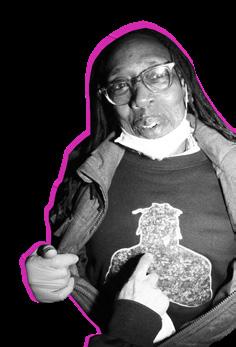
By that time, the trailblazer had carved out his route to transport product in from California, which he asserts gave him the edge over his competitors. “[Other suppliers] didn’t have the variety. You had the Haze and the Sour. I might change [what] I had weekly. I had products coming in from Cali that nobody else had, and was able to bring that in and service the community with a higher quality product than they were used to. It just took it to the next level.”
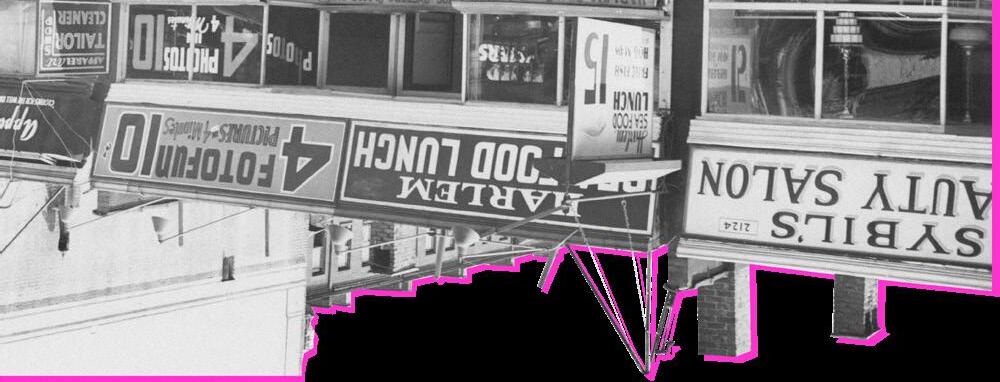
WWW.HONEYSUCKLEMAG.COM 40 VOLUME 16
Meanwhile, Branson incorporated his plant-based services into operations at the Sugar Bowl. The products were part of an already-thriving local business where people bought typical items every day. As customers entered, purchased chips, sodas and candies, then exited with a bag, there was no way to tell if that bag contained something extra. It wouldn’t arouse suspicion either. Because the Sugar Bowl was established as a neighborhood gathering place, the routine was so discreet that police barely bothered anyone there. Even on the rare occasions when police presence might cause tension, Branson was so well-regarded that he could instantly defuse any problems.
“I’ve had conversations with law enforcement and been approached with certain situations,” he attests. “But I wasn’t overexposing myself to anything. I was being mindful and respectful to the law. And from 150th to 155th Street and St. Nicholas Place, we’d have block parties every year. We’re feeding the community, earning and making money and giving something back to the neighborhood. I was taught that by my elders. You give back to the community, you know the lady across the street, when that lady sees the police coming, she’ll turn to you and say, ‘If you got any problems, just throw [the weed] in the window here.’ The neighbors look out for you because you are part of the community. If you’re feeding the neighborhood and being mindful, then you have different options.”
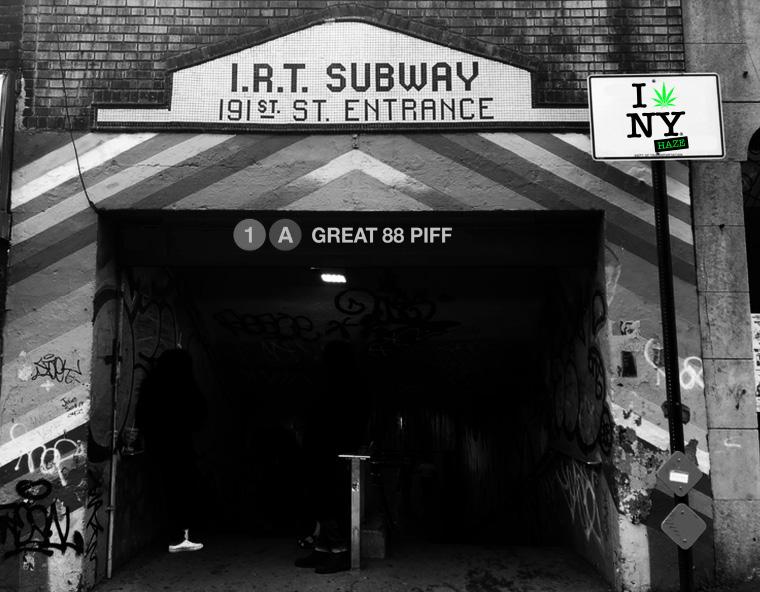

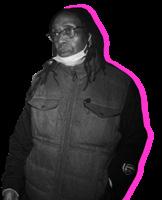
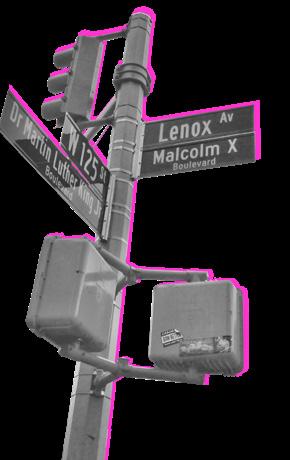

“Mindfulness and respect,” like “service” and “discretion,” are primary keywords for Branson. This is particularly true when it comes to his cherished cannabis. In recent years, he’s developed a working relationship with rapper Berner, founder of the globally acclaimed brand Cookies. Together they’re branding the iconic triangle bags with new strains for the legal market, the first of which are scheduled to drop in New Jersey this spring.
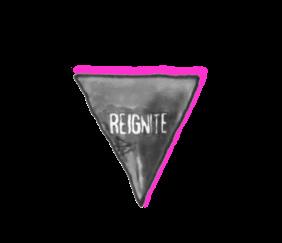

“Berner’s doing incredible work,” Branson states. “He came to me… and I’m happy to be a part of it. But he does come from a different dynamic, because marijuana has been legal in California for 20 years. It feels good that he understands my value and history. But I think for some of the people I have conversations with – and there are a lot of conversations I have going on – they don’t completely understand the history and the value of the brand… You know, I hear NORE say on [his podcast] Drink Champs, ‘Branson had a dispensary 40 years ago.’ And that’s pretty much what existed during that time period. I had to be discreet about it, knowing and understanding the necessity of how to operate a situation like that.”

Little by little, Branson is balancing his mantra of discretion with his public prominence. He appeared in Fab 5 Freddy’s acclaimed Netflix documentary Grass Is Greener in 2019, which explored the joint (pun intended) histories of music, cannabis, and racial oppression. He acknowledges his hip hop mythification, and is even rumored to have been the inspiration for the dealer character Samson in the cult favorite film Half Baked. Yet coming out in the open remains something he’s constantly adjusting to in the wake of New York legalization.
“It’s a difficult process,” he admits. Branson has never requested that his name be included in content before; that he did so here was a natural inclusion from the artistic creative process. “Having this conversation is something I wouldn’t have considered doing [previously]. You don’t talk, you don’t tell, [otherwise] you’re exposing yourself to the public… If I’m getting that kind of exposure, I want to get the dollars to go along with it, to partner with the right situation where I can build the brand and service the community and allow them to be pleased with their receiving.
”He continues to be skeptical of the government’s ability to provide true social equity through cannabis legalization. Comparing the approach to how the liquor industry and the state lotteries were regulated, Branson believes it’s a case of systemic control all over again, locking out people who need the resources and forcing underground operations to strengthen to meet that need. (Although he’s equally wary of the greymarket shops that have popped up around New York City in the past two years, because he says they don’t care about the community either. And they don’t operate with mindfulness, respect, or discretion.)
Ultimately, he hopes that our communities will get back to focusing on those values, and to recognize how the plant fits into our lives – as a tool for inspiration rather than escape.
a big difference.”
One of the greatest examples of working with the plant correctly, in Branson’s mind, came from Biggie and Tracey Lee’s recording session of “Keep Your Hands High.” Biggie invited Branson to the studio, where everyone was drinking champagne and smoking cannabis. “Just being in certain people’s company was a good thing,” the connoisseur remembers. “Like, ‘Meet me in the studio, such and such are gonna be there,’ day to day stuff. But that night I went in the studio and Biggie did that Tracey Lee joint. It was so crazy ‘cause when I got there, he said, ‘You know, I couldn’t do this without you. I was waiting on you.’ So when he got in there and did the song, the studio was rocking so hard, it was incredible. Everybody there had a good time and they indulged in just a good feeling based on that song. It was phenomenal.”

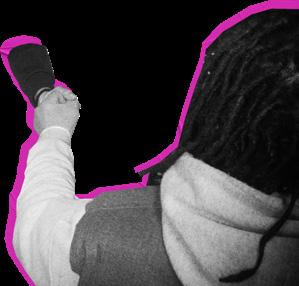
Here lies the heart of the cannabis – and life – experience in which Branson specializes. It’s not about you, or your brand, but what you return back to your community. It’s about empowering yourself and others to dream so that one day you may change the system. It’s about learning to conduct yourself with mindfulness, respect, discretion, and artistry. To Sugar Hill’s favorite son, may the old be new once more. Bransonwishestothankallthosecolleagueswhoworkedalongsidehimthrough theyears:EddieTrump(norelationtoDonald),Lenny,Dennis(Chocolate Chip),TyroneE(LittlePete),Albert,Terrance,DirtyRed(RodneyPatterson), AfroBrothers,TheBattleGrounds,TheHill,Jay-Z,Emory,MichaelA.,Ted Chung,andAlHarrington,aswellasclosefriendsandfamilymemberslikehis goddaughterChenese,BigLiz,Darrria,T,andFatStevieforsupportinavery crucialtime.

41 VOLUME 16 @HONEYSUCKLEMAGAZINE
Formoreinformation,follow@branson_got_juiceonInstagram.








IF YOU ASKED ME BACK IN
MY PAGEANT DAYS
HOW I COULD ACHIEVE WORLD PEACE, I WOULD TELL YOU CANNABIS. OUR EVENTS ARE THE CLOSEST THING I’VE SEEN FIRSTHAND TO WORLD PEACE. A ROOM FULL OF PEOPLE AGES 21 TO 70, ALL COLORS, SIZES AND GENDERS TALKING ABOUT POSITIVITY, FUTURE, AND THE PLANT.


LEONA KUSA, FOUNDER, KUSA COLLECTIVE @ KUSACOLLECTIVE

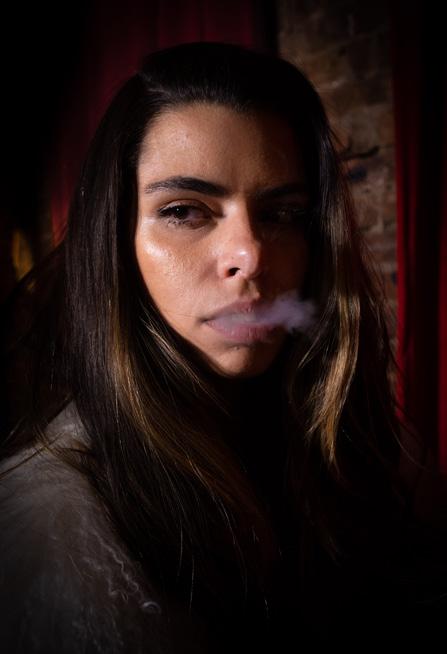
"I LIFT WEIGHTS EVERY MORNING AND USE CANNABIS AS MY PRE-WORKOUT. PARI PATEL, FOUNDER OF FARMACY NYC @FARMACYNYC
GIRLS IS
THAT’S A STONER REPPING 1 3 5 S Q U A T A N D 3 0 0 + L B H I P T H R U S T A F T E R A J O I N T T O T H E F A C E … "
Jas
NYC
Maya Hayashi, Co-founder, Cafe Cannal
Ohh, Founder, Buddy Bakes
PariPatel,Founder,FarmacyNYC
Leona Kusa, Founder, Kusa Collective
PLAYAS TOO
having
around these
Mygoalisto normalize plant medicine, mental health, and moms consuming theplant.I
WE HAVE GREAT CBD PRODUCTS, BUT THAT BUSINESS IS NOT SUSTAINABLE FOR US. ALTHOUGH THE INDUSTRY AND OUR CLIENTS KNOW US AS LOW-KEY, OCM OFFICIALS RAIDED OUR STORE AND LEFT US WITH NO STRATEGY FORWARD. WORKING WITH DASHEEDA DAWSON, FOUNDING DIRECTOR OF CANNABIS NYC, POPPED IS POISED AS THE OFFICE’S CASE STUDY FOR THE BYOC MODEL.
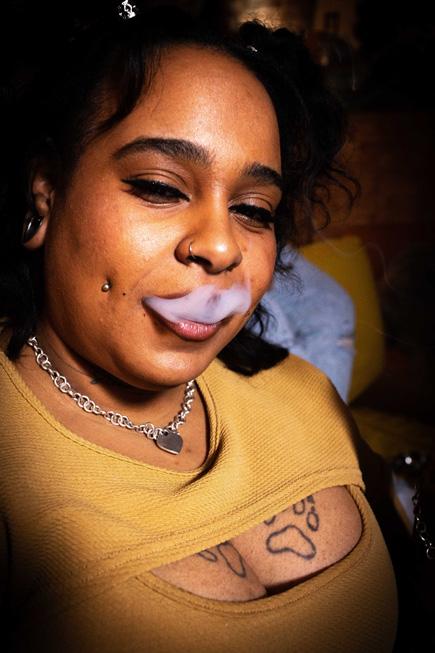
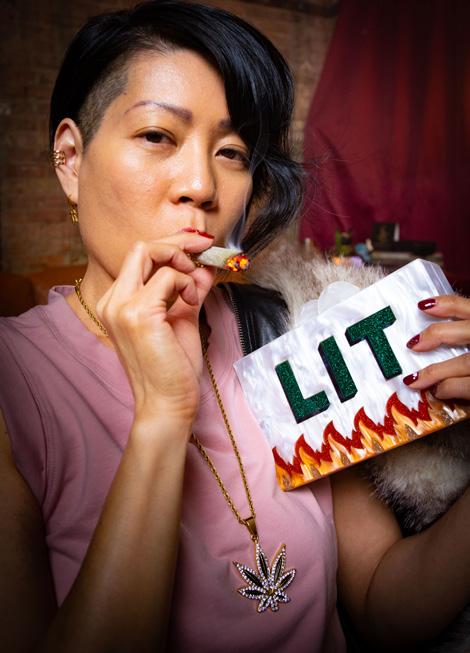
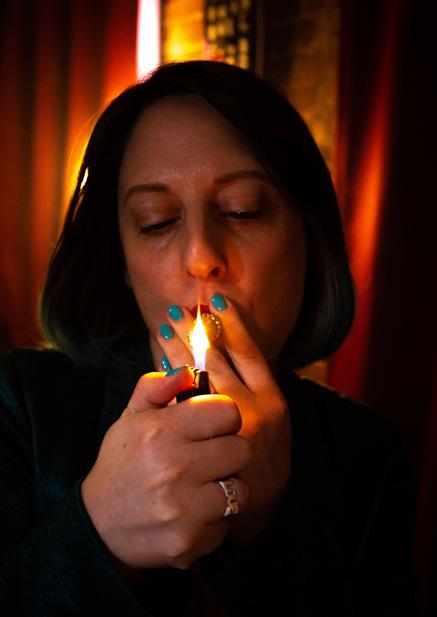
WE GOT BUSTED IN DECEMBER .
LAUREN FORSCH, FOUNDER OF @POPPED. NYC @POPPED. LAUREN
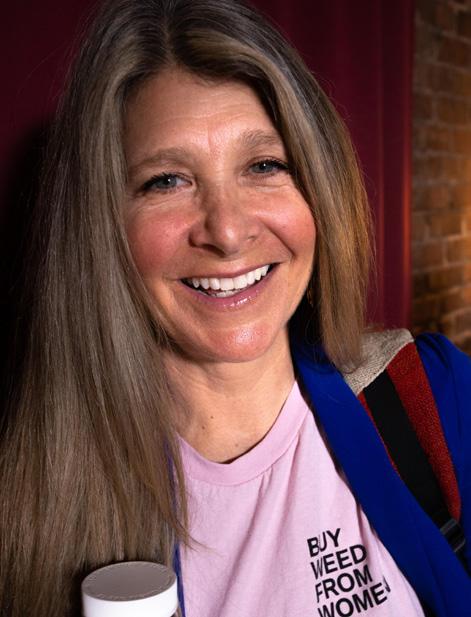
Ialsofeel great joy when I hear from my clients that they are feeling much better . ”
Amy
Chin, Founder,
Calm Beter
Days @calm beter_days
believebyeducating and
conversations
topics, we ’ll normalizeit .
Krys Wolf, Founder, Wolf Stoner Queen
Amy Chin, Founder, Calm Better Days Lauren Forsch, Founder, Popped.NYC
Melissa Gibson, Founder, Hemp and Humanity
MIRIAM ARISTY-FARER, FOUNDER, HERBAS @HERBASBODYCARE @MIRIAMARISTYFARER
AMY CHIN, FOUNDER, CALM BETTER DAYS @CALM_BETTER_DAYS
LAUREN FORSCH, FOUNDER, POPPED.NYC @POPPED.NYC @POPPED.LAUREN
MAYA HAYASHI, CO-FOUNDER, CAFE CANNAL @CAFECANNAL
LEONA KUSA, FOUNDER, KUSA COLLECTIVE @KUSACOLLECTIVE
PHOTOGRAPHER: SAM C.
CONCEPT AND PRODUCTION: RONIT
CAMERA ASSIST: XHAXI DANZENG @OTRO_TASHI,
CREATIVE DIRECTOR: CAT OUELLETTE
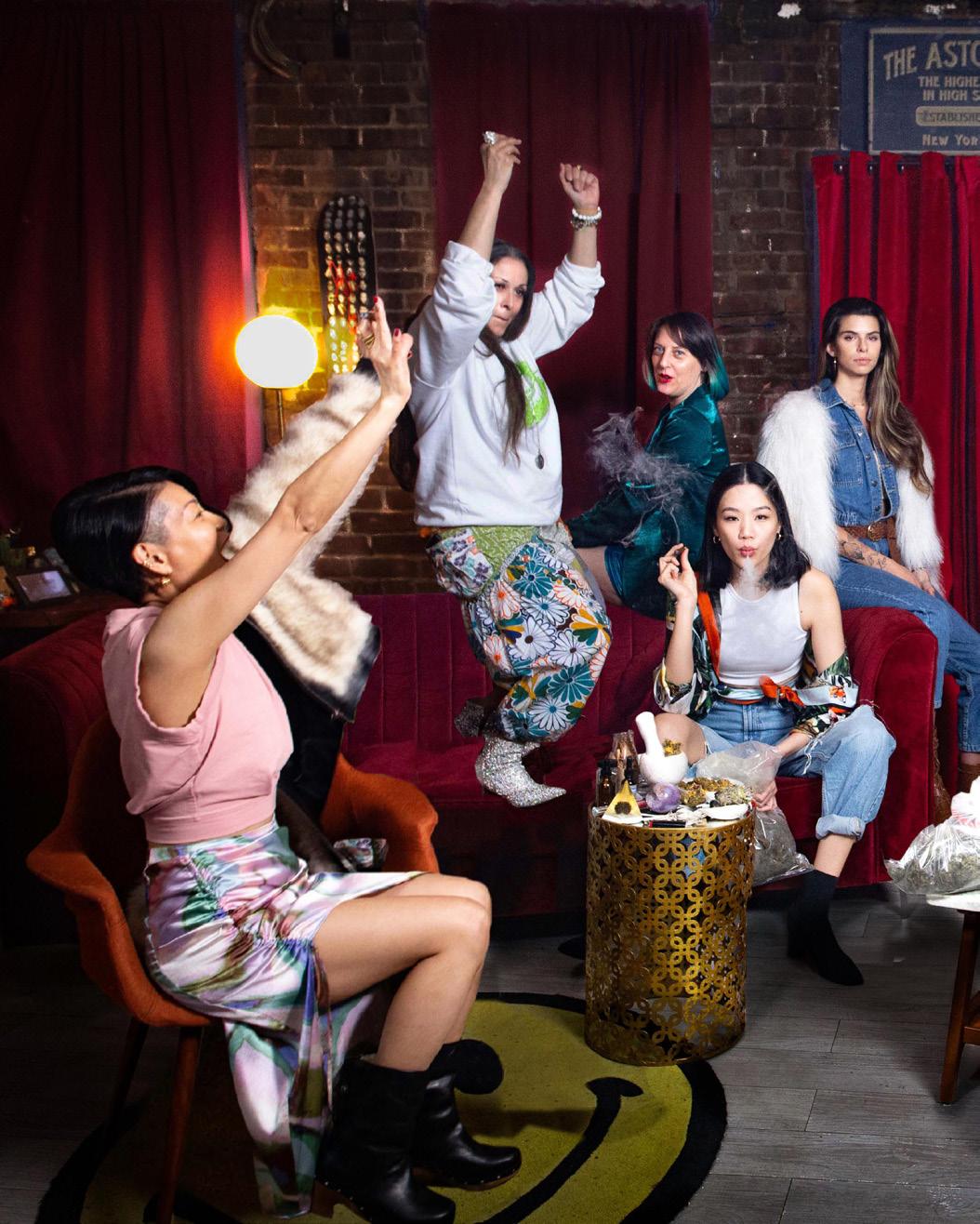
PRODUCTION ASSIST: JAIME LOCATION: ASTOR CLUB
WOMEN IN LEGACY: GIRLS IS PLAYERS TOO They are ganja mamas, ladies of the leaf, high priestesses of hemp. The women of the East Coast legacy market come from wide walks of life and each has a different perspective on what led her to connect with the plant. For some, health and wellness became the ultimate calling. Others expanded their artistic prowess with the green goddess as their muse. But they all dedicated themselves to serving the community through top-quality cannabis products, enduring the risks as they did so. These are some of the entrepreneurs who defied the
RONIT PINTO @HONEY_RONIT
@OTRO_TASHI, REN HAAS @RENNHAAS
OUELLETTE @CATOUELLETTE
JAIME LUBIN @JAIMELUBIN
CLUB @ASTORCLUBNYC
MELISSA GIBSON, FOUNDER, HEMP & HUMANITY @HEMPANDHUMANITY
JAS OHH, FOUNDER, BUDDY BAKES NYC @BUDDYBAKESNYC
PARI PATEL, FOUNDER, FARMACY NYC @FARMACYNYC
KRYS WOLF, FOUNDER, WOLF STONER QUEEN @WOLF_STONER_QUEEN
PAT WRIGHT, FOUNDER, PDUBZHIGHBEVZ @PDUBZHIGHBEVZ
odds, challenged the law, put their safety and livelihoods on the line for a higher power of love and justice. Our heroines gave everything so that we could vibe. Now as the legacy-to-legal transition takes place across the region, they face an uncertain but still hopeful future. We elevate them here to share glimpses into their realities and what empowers them to stay in this business. It’s not for the faint of heart. But to all the women we’ve loved before, for helping us grow, we owe a lot, we know - ‘cause girls is players too.
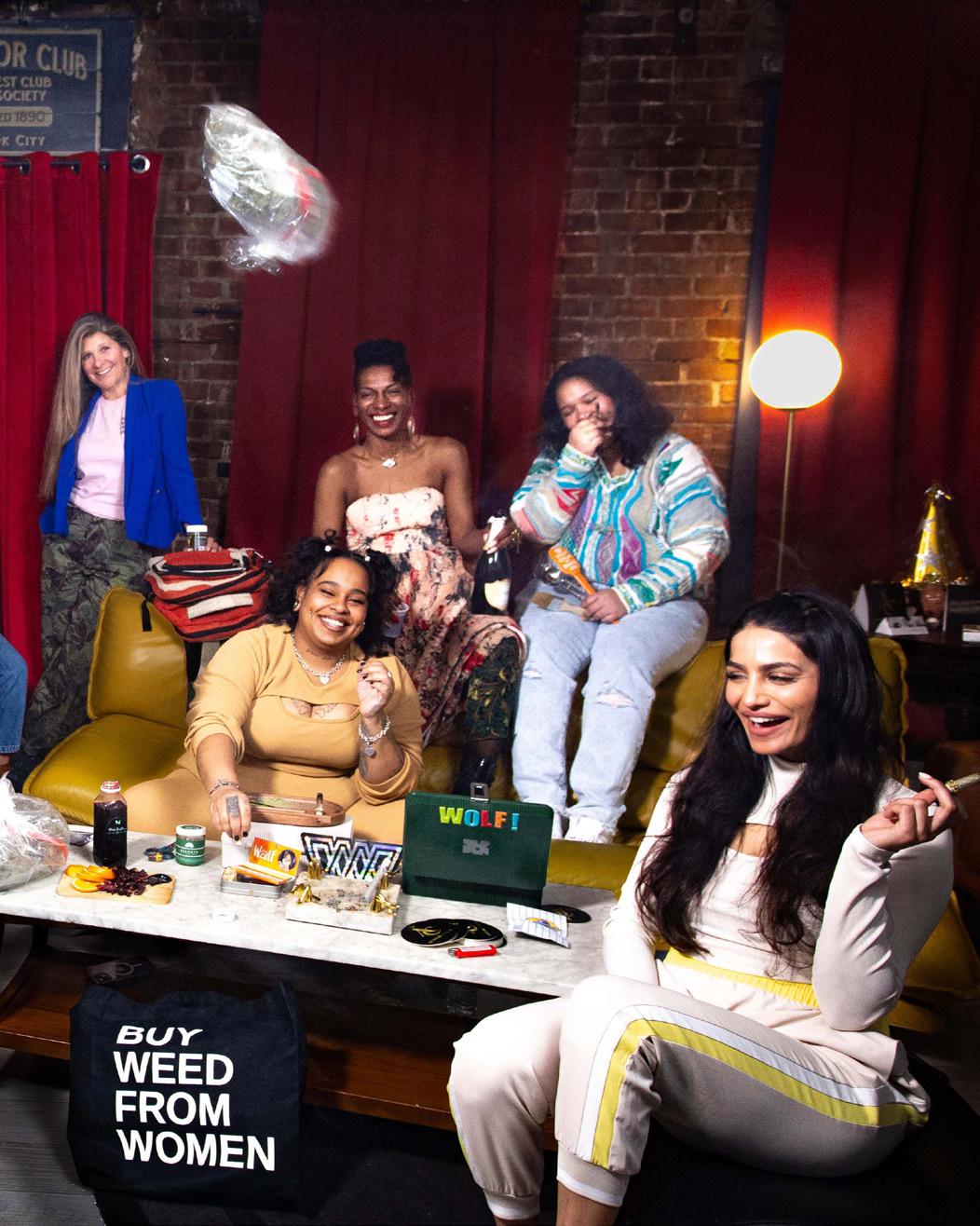
C. LONG @TISSUEKULTURE

MIRIAM ARISTY-FARER, FOUNDER, HERBAS
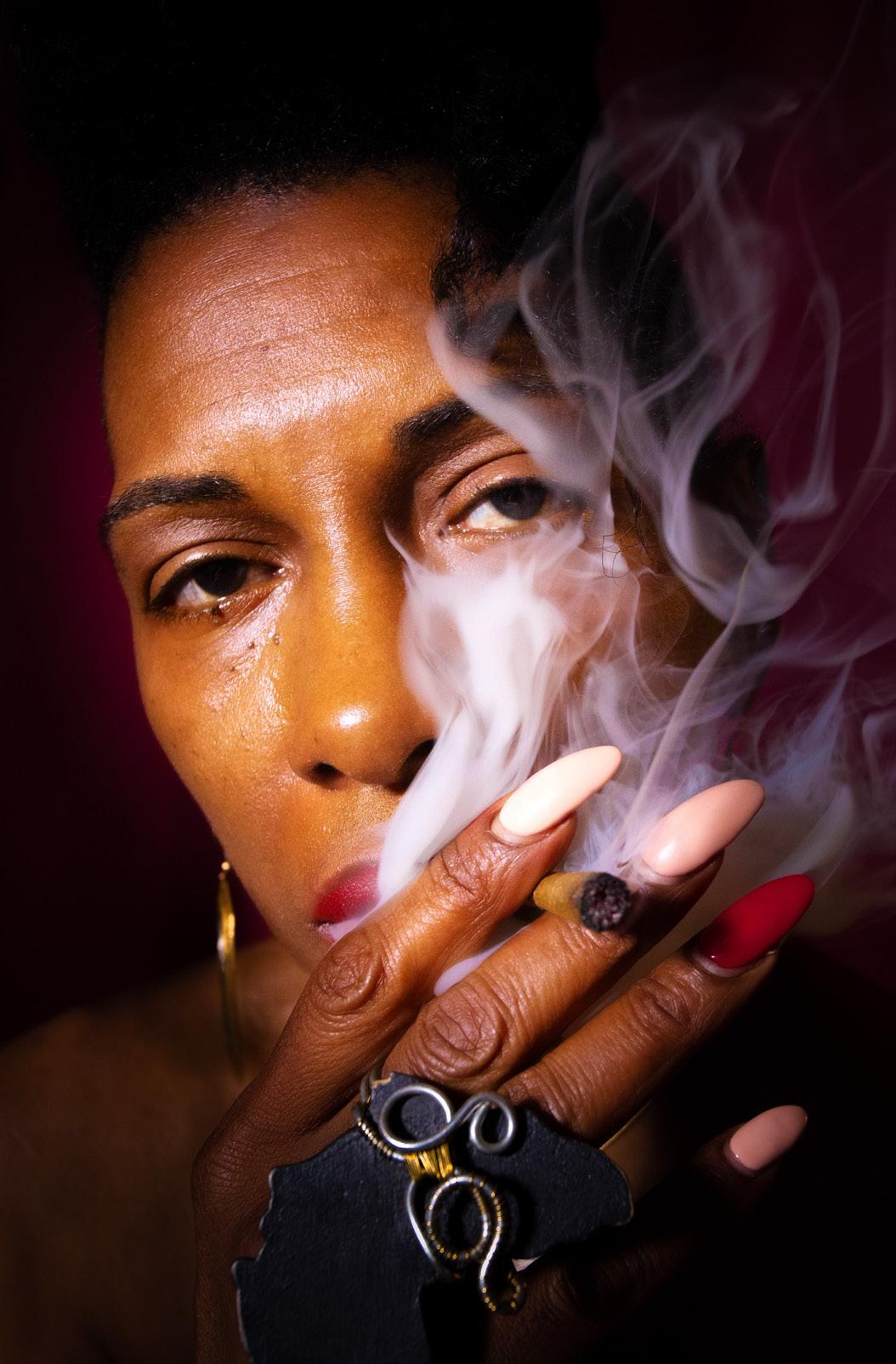
PDUBZHIGHBEVZ
PAT WRIGHT, FOUNDER,
Four Twenty Minutes
By: TeamHoney

The Grammynominated artist, activist and emcee has been devoting every effort to cannabis and political advocacy over the past 25 years. Best known for his work with hip hop duo dead prez and Latin group The D.E.Y., Divine focuses his creative output on themes of freedom, authenticity, and appreciation of New York’s Black and Latinx cultures. His latest album, Four Twenty Minutes, is a tribute to the versatility of the cannabis plant and its ability to inspire people.
“[Every artist in] every genre has advocated for herbs for many, many moons,” Divine observes. “I feel like many artists, marijuana has helped them creatively.”
Born in the South Bronx, the child of New York’s streets grew up with an intense love for what he terms “good herbs.” Declaring that he has been “selling hella bud since I was younger and I will continue to,” Divine explains how his real start in music evolved through cannabis connections. Always interested in crafting songs and lyrics that meant something, the innovator got involved with “trapping,” the New York legacy market, at a critical point in the late 1990s when hip hop as we know it began to explode from the underground to the mainstream.
affirms, as so many of that early period’s OGs came up through the mix of trapping and performing. Looking back at his own experience, he recalls, “Basically we was selling chocolate weed [one of New York’s most classic strains of cannabis also sometimes referred to as ‘brick weed’] and we had a shift from 12 to 12. We’d sell weed all day out of this apartment and people would just come smoke with us, come and leave real quick.”
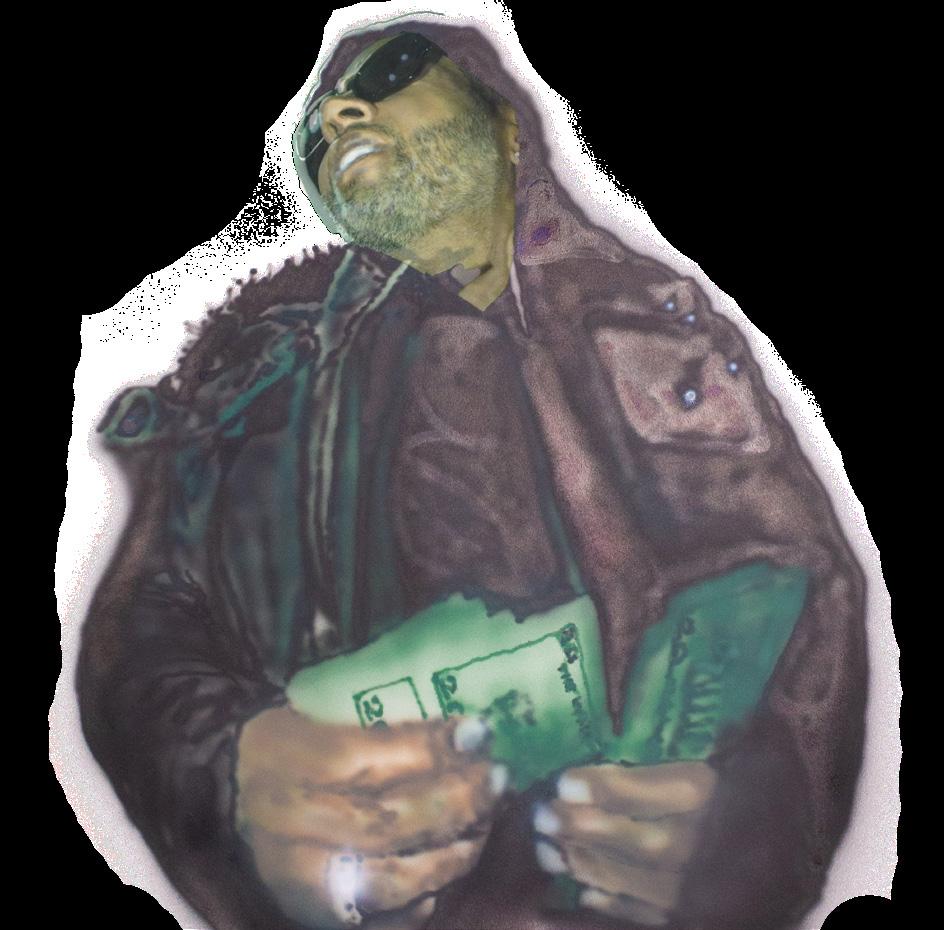
producer Lord Jamar brought M1 (Mutulu Olugbala) and stic (Khnum Muata Ibomu), the duo billing themselves as dead prez, to sample Divine’s wares. It would be a meeting of epic proportions. Though M1 was from New York Tallahassee, Florida, they shared similar sensibilities regarding the expression of Black culture and how cannabis was linked to liberation. They became fast friends with Divine, who would later go on to be pivotal in
the development of M1’s own cannabis line Urban Aroma, for which he remains the NYC Brand Director to this day.
“Instead of [dead prez] going to New Rochelle all the time, they would stay in The Bronx with us,” Divine remembers. “And we started organizing, we formed The People’s Army there, and we started teaching political education through self-defense and music. Then we went on together to create the Let’s Get Free album [dead prez’s debut, which peaked at number 22 on Billboard’s Top R&B/Hip Hop chart]. We smoked weed throughout that whole album.”
in Heaven With Divine RBG
In Four Twenty Minutes, the hip hop veteran’s newest work released in February, Mama Ganja is most definitely the star. Genres intersect to tell the story of a magical plant, from old-school beats that celebrate the timelessness of a Backwoods Banana (a classic cigar wrapping often used for cannabis blunts), to soaring Spanish-language odes that embrace the sensuality and spirituality of everyone’s favorite good herb. The tracks’ vast range reflects Divine’s history with both the complexity of New York activism and the richness of Puerto Rican heritage, which he got to explore more fully through living on the island in the early 2000s and co-founding The D.E.Y. Other selections from the album shout out various movers and shakers in NYC’s current canna community, including the iconic Certz brand founded by legendary producer Steph.V, with which Divine collaborates often. Those checking out Divine’s social media can also find links to his single “Medical,” a powerful tract highlighting the harms that the War on Drugs has inflicted on Black and brown communities, while simultaneously underscoring the need for cannabis as a tool for healing. One would expect no less from the talented creator, who wields his words with the precision of a master swordsman to carve his points deep into the soul.
This spring, Divine additionally released the video for “Bronxalona (El Radio),” a collaboration with Alllyrical and KRS-One, directed by M7 ahead of the international cannabis festival Spannabis. A boisterous celebration of hip hop’s 50th anniversary, it is also a testament to everything the artist stands for: Advocacy, education, community, and the heart of music fueled by elevation from nature. May he who is named so gifted, be forever lifted, and may he keep sharing that divine inspiration with us.
For more about Divine RBG, follow @divine7rbg on Instagram.

“Whether it’s through hip hop or even Top 40 crossover records, I still try to represent my community through the plant,” says Divine RBG.
Airbrushby:JackBlasko @killjark
49 VOLUME 16 @HONEYSUCKLEMAGAZINE
FROM WRAPS TO RICHES: STEPH V. AND THE RISE OF
 CERTZ
CERTZ

 Interview by Ronit Pinto and Sam Long
Interview by Ronit Pinto and Sam Long
 Written by Jaime Lubin
Written by Jaime Lubin
“I’m just a pure example of the cannabis fuckery coming from New York, from the 90s to today,” says Steph.V, founder and CEO of the powerhouse brand Certz. A legend of hip hop culture, Steph.V is well known for his work producing hits for artists including Jim Jones, The LOX, Lumidee, Yung LB and more. But over the years, he’s been able to speak more openly about his innovations within the legacy cannabis space, building Certz into a multimillion-dollar enterprise recognized worldwide for premium strains, unique merchandise, and the company’s notable Midtown event space.



For the first time ever, the industry veteran opened up about his trauma from the War on Drugs in an exclusive interview with Honeysuckle. A native of Spanish Harlem, Steph.V endured poverty in an area beset by substance abuse. “The scent of crack was normal where we was at,” he remembers, and children regularly grew up seeing broken crack bottles litter the floors. Noting that “I come from the struggle for real,” he explains taking it upon himself to be the family breadwinner at a young age. He recalls working at the supermarket as a bag boy from just 10 years old in the early 1990s, making around $30 a day to bring home to his mother – which he viewed as “a lot back then.”
The entrepreneur claims that young men in his neighborhood saw drug dealing as an avenue for wealth. “That’s what the system first showed us: ‘This is your way out,’” Steph.V observes. “You could’ve been a doctor, a lawyer… anything else. But the way they portrayed it to us minorities was either be a dope-ass drug dealer who got the jewelry and the cars but lived with his mother, or you nice in basketball. [I] broke out of that early as a teenager,
started selling weed [because I saw] the profit margin… the coolness you get from it… I was drawn to the weed and I never sold anything else.”
It was a short trip from groceries to grass; the ambitious hustler dropped his first job and entered the legacy cannabis scene at age 14. Quickly he became ensconced in the heart of the market, working himself into an organization run by Jamaicans in the neighborhood who were cooperating with an Italian group from Harlem to funnel West Coast greenery to East Coast pockets.
“They were smuggling weed from Tijuana, flying it to San Diego,” Steph.V describes the operation. “Drive it to the borderline near Tijuana, drive it back. Saran Wrap it from all these combos, put it in bins. I was responsible for [shipping] ‘em out. I had to do 25 boxes in two days in multiple towns to ship to come here, and then I had to pick ‘em all up with my team in New York. That was my job and I was [a teenager] and I organized it all. Not everybody’s that fortunate, you know what I’m saying?”
On one hand, the young businessman was certainly fortunate. He prospered financially in this new track, and his savvy for understanding both quality strains and brand-building allowed him to parlay his skills into the hip hop space. Just as the underground music market intertwined with cannabis, Steph.V created a name for himself as a producer with PIFF Unit Productions. Making hit records with some of the era’s most enduring artists such as N.O.R.E. (Noreaga), Juelz Santana and the late Black Rob, he believed this was living the dream.
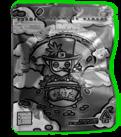
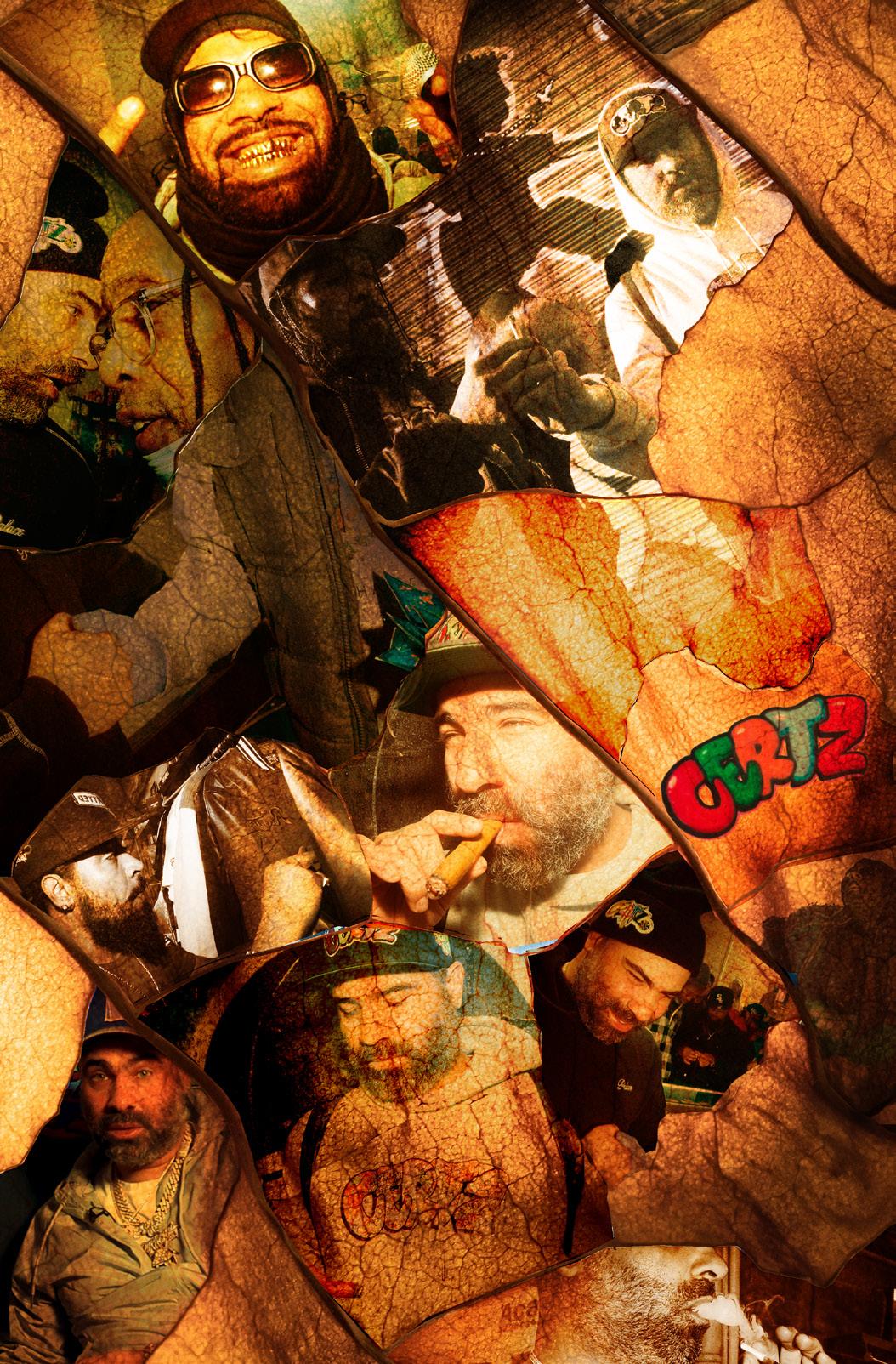
51 VOLUME 16 @HONEYSUCKLEMAGAZINE
“I got to smoke with people I was actually a fan of, growing up, seeing [them] on TV,” the mogul comments. These smoke sessions cemented his friendships with myriad artists and entertainment bigwigs. Redman trusted Steph.V so much that when the rapper was arrested on cannabis possession charges, he left the flower expert in charge of moving his vehicle to avoid parking tickets. “When he got out of jail, he immediately bought five bags off me,” the CEO grins. “I’d given him a free one, he smoked two right off with me.”
But even if a certain reverence for the plant helped Steph.V to distinguish himself mentally from the drug dealers he’d seen as a kid, he realized the law still considered them the same. “There was no glorifying that shit,” he states succinctly. “We were like straight drug dealers at the time. If you want to say a drug dealer for cannabis, whatever, [but our purpose] wasn’t to be showing off.”

Though he gained a reputation as a cultural impresario, he still had to deal with repeated arrests and incarceration. Initially, as a nouveau-riche operator, “I didn’t give a fuck about if I was locked up for it or not. I was ready to get rich off of it. I was rich before, got locked up and went to jail, got out, did it again. Went to jail before, got out and did it again.” Reflecting on why he kept up with cannabis despite these risks, the innovator goes back to the simple fact of his love for the product: “It was weed. Even though I lost years of my life in prison all through it, it didn’t come down on me to stop. Like [the idea of] ‘This is illegal. You’re a fucking criminal for doing this shit with flower.’ I couldn’t understand that. That’s why I kept doing it.”
Yet the underground life took its toll. Steph.V got used to hiding from the authorities and developed a stoic shell so that he could get by without showing emotion. Run-ins with police were a regular occurrence, to the point that when he once got caught with ten pounds of illegal cannabis, he asked police to let him go quickly, fearing that he might be late to fill an even bigger order. His seeming nonchalance was the mask for a man suffering from intense PTSD.
After several years of putting his nose to the grindstone in New York, the producer traveled to California and learned all the trade secrets from that major market that he could eventually bring back East. In 2017, he launched the independent music label Certz Entertainment, signing major talent including Fivio Foreign, Sauce Walka, Lil TJay and of course his old friend Redman. The Certz brand exploded in Steph.V’s hometown with the 2019 launch of a clothing store in NYC. Upon New York’s legalization of cannabis in 2021, it was finally time for Certz to expand that side of the business in the Empire State and for its leader to be king of the cannabis capital yet again.
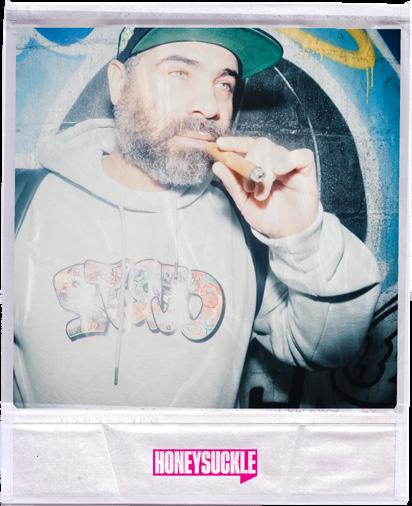

This should feel like a happy ending, but the story’s far from over. The Certz team has plans for multiple cannabis-related projects in the works. New York’s complex and slow rollout of cannabis licensure, however, has Steph.V in a frustrating holding pattern. He criticizes the state’s touting of social equity and licenses for those impacted by the War on Drugs as “bullshit. I didn’t even get accepted [into] the first group [of license holders]. Everybody who got accepted caught a case one time 10, 15 years ago for some minor shit and right away got accepted under social equity. That’s not fair to people really suffering through cannabis. That’s what I thought it was for, people who suffered. So these people who have these little bougie slaps on the wrists, they got these licenses and then they come running to people like me.”
He continues, “I want to open my first dispensary in New York, where I’m from. And then I’m going to do a dope-ass deal where I have multiple dispensaries in different states at once. That’s for sure happening. Unless I don’t wake up tomorrow, that’s the only way it’s not happening. Contracts is done, everybody’s waiting on me, and I’m waiting on New York.”
A new day will dawn for the Certz Empire, for the man who has reinvented and perfected his craft so many times. Steph.V may not be the first to get a dispensary license, but he is a testament to the opportunities the plant offers to change one’s life. He’s no gangster, he says, but the ultimate soldier for cannabis – “always ready to go to war and die for what I love.” We say, thank you for your service.
For more: @certzbrand @stephv.ceo @midtown.certz.lounge
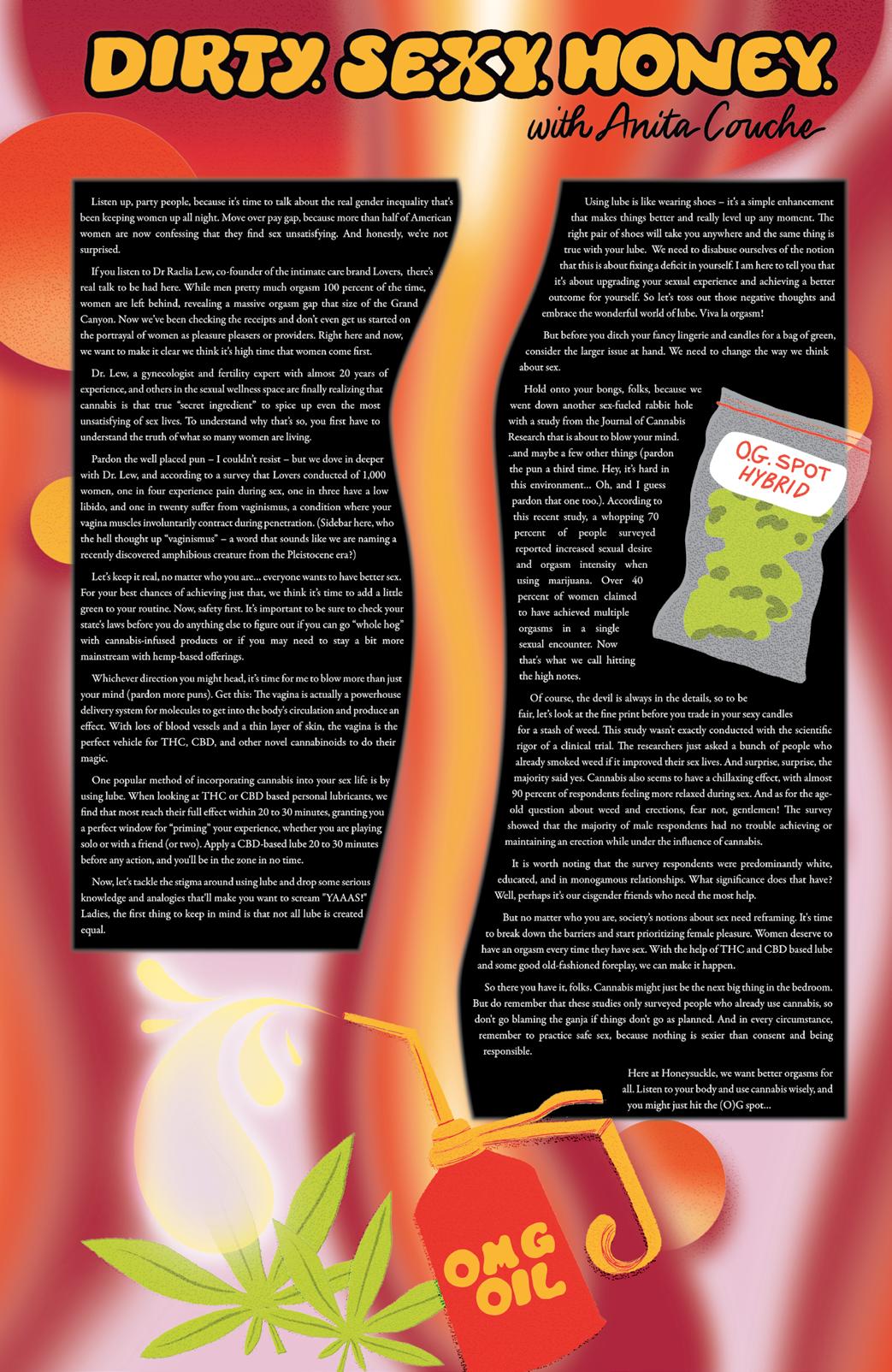

B Starr Agency (BSA) is a woman and POCowned marketing agency focused on cannabis, culture and community. A recognized community activist in her native San Francisco, founder Bianca Gutierrez is an event producer, nightclub owner, creative strategist, cannabis industry veteran and single mom who’s done it all.
Gutierrez’s passion for “cultural fusion” is evident in BSA’s recent activations, producing large-scale 420 events for rapper Berner, founder of the globally-acclaimed Cookies brand. In Spring 2023, BSA helped connect Cookies’ collaboration with artist Erykah Badu to launch That Badu cannabis. The agency also put together the partnership of Grammy winner D’Angelo and Amazon’s Audible for Words + Music initiative. But for Gutierrez, everything comes down to community impact.
HONEYSUCKLE MAGAZINE: What makes cannabis the perfect vector for all the aspects of industry that you have pioneered - art, business, social equity/justice, and community?

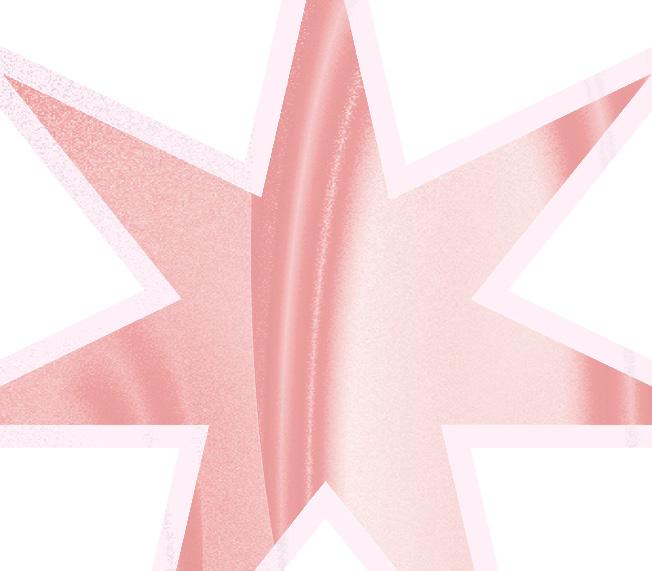
BIANCA GUTIERREZ: I’ve seen many people in my community get arrested and/or serve jail sentences for their actions in [cannabis] business or simple consumption. Now that it’s a growing legal industry, the aspect of authentic experiential lifestyle and event marketing campaigns have become more valuable.
With roots in cultural events over decades, having owned a nightclub in San Francisco, producing fashion shows and BSA, I use my experience and network to offer brands a way to connect with consumers, integrating creative ways; utilizing art, music, fashion and community driven event campaigns to build their brand. We’ve worked with some amazing brands and done cool projects with different creatives so far, so I’m excited to continue that. My work with BSA has been so fulfilling. To be able to work with such a powerful plant and incorporate it into everyday life feels incredible.
How did your relationship with Cookies and Berner begin?
My business partner Kamel [Jacot-Bell], who has a long relationship with Berner, and I produced Berner’s Couch Locked 420 Comedy livestream and live event in 2021 at the tail end of the in-person events being on freeze because of the pandemic. It was San Francisco’s first big event coming out of the pandemic. We booked comedians Bob Saget, Paul Rodriguez, Jeff Ross, Michael Blackson, and more, working closely with Berner to curate the marketing and the experience to launch the successful Couch Locked brand. We then worked with Berner on The SESH at San

Francisco’s Midway last year with a lineup of Berner, Too $hort, BabyFace Ray and Andre Nickatina and other local talent. The event integrated Cookies and all [Berner’s] brands like Vibes and Santa Cruz Shredder. It gave Bay Area cannabis heads a place to smoke out and see some of their favorite artists live on 420. We’ve worked with Berner in various capacities since, most recently the marketing of his new cannabis tech app Social Club through an aggressive grassroots marketing campaign.
You’ll be managing the Powerzzzup dispensary project, which comes from the brand created by Kenny Powers, the geneticist-cultivator responsible for popular strains from the Cookies portfolio like Gary Payton and Cereal Milk. How do you see the store shaping the market?
In 2021, Berner first mentioned the idea of naming the Valencia dispensary project Powerzzzup. I then connected with Kenny through my network and dispensary partners. Kenny being one of the most legendary men in cannabis, also a San Francisco native, creates a perfect synergy of organic SF culture and premium cannabis strains, which will only be available at the Powerzzzup dispensary. Between Kenny’s expertise in cannabis and my roots in the Mission District community, plus the marketing apparatus with BSA [and] the incredible location we have on 18th and Valencia Street, we’re very excited to build the Powerzzzup store to be one of San Francisco’s top dispensaries.
As the first Latina dispensary owner in San Francisco’s Mission District, how do you see yourself empowering the community and bringing that cultural fusion?
I feel I’m in a unique position with my agency and one day the dispensary to give a platform to women and POCowned brands. Since we can work with them in multiple ways, in-store, events, and marketing campaigns, we can highlight the owners of these brands and tell their stories. I conceptualized and produced an event series called the Rotation where dispensary buyers and consumers can meet brand owners and Rotate into different stations curated by each partner throughout the event, creating an intimate experience with that brand. The Rotation is an example of how I plan to create more branded events that can create content, engage the industry and consumer, while showing measured success on how that can move the needle with the brand in stores while putting a focus on education and awareness.
I also have content projects in the works that will highlight people in the Mission District and the work they are doing in the community. Given the long history of the Mission District as an iconic Latino neighborhood, I’m
very humbled to be the first Latina to own a legal cannabis dispensary [there]. The opportunity to open a dispensary after having had trouble with the law previously for cannabis is a great achievement.
Through mentorship and employing more people, I hope to pass that down and inspire more ownership by women of color in my community. I also work with City College of San Francisco and teach a class around cannabis branding.
San Francisco and Oakland have been pivotal in birthing social activist movements. As someone deeply rooted in these communities, what makes you proudest about them?
The Bay Area has been the birthplace for many national and global political, social and empowerment movements for marginalized communities of color. From the Black Panthers, migrant workers, women’s rights movements and the movement to legalize cannabis, there will always be a legacy here of standing up and fighting for what’s right that influences others nationally and globally.
My father was a popular radio and television personality here, using his platform to shed light on the work of different activists. He exposed me at an early age to the role media plays in progressive movements. There are so many people in the Bay Area doing amazing work [like] Rudy [Corpuz Jr.] from United Playaz and his work with youth around nonviolence. We also support Hip Hop for Change, which works with underserved youth. I think we’ll continue to see the Bay Area play a pivotal role in shaping progressive activism.
For more about Bianca and BSA, visit bstarragency.com.
FernandoPhotoby:Sanchez
WWW.HONEYSUCKLEMAG.COM 54 VOLUME 16
Bianca Gutierrez (C) Fernando Sanchez
cit y including a juicer y also base d in the East Villag e. In the upcoming months, Sweetooth
birthday parties, etc where attendees are over 21, allowing attende es and hosts to enjoy their products without the t ypical skunk-like smell
Sweetooth throws invite-only infused tea parties and infused dinners coming this summer
Sweetooth’s location in the East villag e is the orig inal of the 3 locations—now adding access to the Upper East Side, West 4th, planning a summer expansion on the Upper West Side ! Qirollari thanks his customers for the expansion, telling Hone ysuckle that he had one g uy who “travels an hour to g et our product, so I think , ‘why not open a shop near him?’”
Qirollari shares that he has multiple reg ulars trekking from all around the Five Boroug hs and be yond for Sweetooth’ s swe et treats, and I can see the appeal My personal favorite product ? It’s a tossup bet we en their take on the classic Italian R ainbow Cookie and their Sweetooth with a bag f ull of g oodies, and I encourag e you to do the same.



For more about Sweetooth, follow @Swe etoothWorld on Instag ram and visit them at Swe etoothNYC.com



Qirollari outside his cannabis clothing shop in Queens, @CaviarBoutiqueNYC
Who is Vic Styles?
As founder and CEO of the online community Black Girls Smoke and its sister-cannabis brand Good Day Flor, acclaimed stylist, in uencer with nearly 70k Instagram followers, host of the podcast Kontent Queens, and founder of the cannabis-friendly creative space Cloud Haus, Vic Styles has done it all. A er nearly a decade of living in Los Angeles as a celebrity stylist and two years of full-time content creating on the West Coast, Styles moved to Brooklyn in 2019 for a change of pace.
at move, though, was more than just a change of the four walls around her; Styles had transitioned from a legal to legacy market. Something she’d once had unlimited access to in California was now only available behind closed doors in New York: cannabis, a plant she’d been using since she was een.
Styles started smoking, as she says, “During a time in my life that I felt was traumatic. Without me even knowing it, cannabis was obviously calming my anxiety and helping me through depression. But at een, you don’t understand the inner workings of your mind and your emotions, all I knew was I felt better a er using cannabis than I did before.”
Shortly a er her move to Brooklyn, Styles created Black Girls Smoke and the rest is history.
 Vic Styles: Smoking in Style By Alexa Nasiedlak
Vic Styles: Smoking in Style By Alexa Nasiedlak
Black Girls Smoke: Styles’s Community of Cannabis-Smoking Women of Color

Black Girls Smoke (BGS) stemmed from a need for community. A er moving across the country, Styles quickly found herself in need of other women with whom to smoke.
Despite beginning as a space for Styles to post her own cannabis smoking content for reasons along the lines of stigmatization of the plant, BGS has evolved into a space that upli s and underlines the stories that o en go unheard in the smoking world: those of women of color.

“I had no intentions of [Black Girls Smoke] becoming a business or becoming my life,” said Styles, laughing, and yet look where it got her: an online page of nearly 50k on Instagram, merch drops, outside submissions, and the start of the “High Girl Community”– here, for a small fee, members are granted exclusive access to industry experts, active job boards, wellness workshops, a guide to nding bud around the country thanks to fellow High Girl Community members, and are the rst to access all Black Girl Smoke events online and in-person.
Black Girls Smoke has morphed into a digital space that is actively working to “erase stigmas, color lines, and gender bias in the weed industry,” and does so while highlighting women of color. e site, both in an online blog form and as a social media page, is constantly calling for submissions: personal creative work, someone to help with content creation for BGS, and writing submissions for the blog and the social page.
As BGS evolves, there’s hope to “Expand in a media aspect, tell more stories, really tap into who these women are,” according to Styles. “It’s entirely a di erent conversation when the story is told from your perspective by your perspective,” states Styles, emphasizing the importance of the stories of women of color being told by other women of color.


BGS IRL: Cloud Haus as Creative Cannabis-Friendly Space in Brooklyn
Only a couple years a er her move to Brooklyn and starting Black Girls Smoke, Styles found herself wanting a physical iteration of BGS to come to life.
“As a content creator, there aren’t many spaces where you can smoke and take photos and videos or hold meetings,” explained Styles. And from that, Cloud Haus opened in September 2022. Lovingly described as the “brainchild” of Styles and her partner, Cloud Haus is a space for creative cannabis users to come together and do just that.
Inspired by the aesthetics and vibe of e Wing – a former women-only social club and coworking space shut down in August of 2022 – Styles and her partner “wanted to create a space that was fun and colorful, where people who do consume could come, smoke and create.”

“ ere are a lot of spaces where cannabis consumers can go, but they don’t always feel welcoming to a certain demographic. Maybe you smoke cannabis but you’re not a smoker; maybe you’re a writer, director, photographer, and you use cannabis but it’s not your life. We created a space for those people,” explained Styles.
Vic has plans to continue expanding her reach, hoping for more stories from women of color to share on Back Girls Smoke, and continuing to curate the space that is Cloud Haus.
For more BGS and Cloud Haus, visit blackgirlssmoke.com and cloudhausbk.com
For more Vic, visit vicstyles.com or @ eVicStyles on Instagram.
You might know her social activism or her strong social media game, but all you really need to know is that Kait Caridi is the cannabis community’s networking queen. A leader, educator, and advocate, Caridi shines brightest when she’s helping tell the stories of her New York canna-fam. She serves as Social Media Manager for the BudsFeed platform, where the top cannabis products from hundreds of brands are “seeded” daily for digital omnichannel discovery, and as Social Media Director / Event Coordinator for e CannaDiva, a community of women shaping the intersectionality of the cannabis industry through event curation and engagement. Caridi is also recognized for her encyclopedic knowledge of NYC canna-culture. Whether you want the buzz on the hottest events, an intro to the coolest women entrepreneurs, or recommendations for the best new consumption techniques, look no further. To us, she’s Kait the Great!
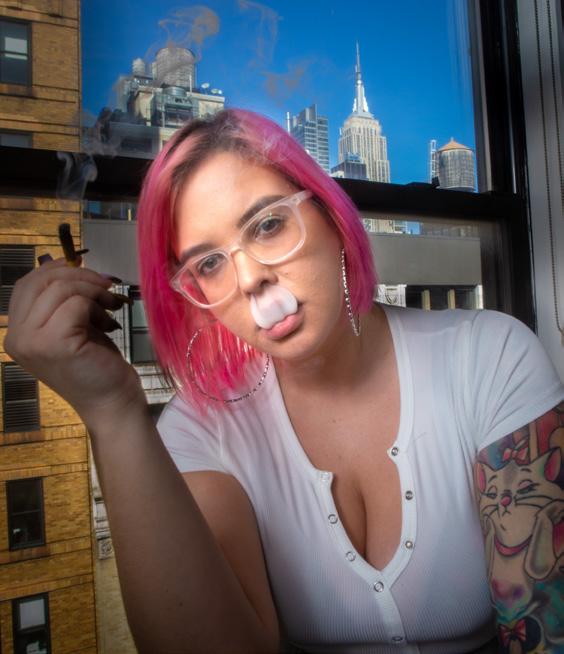
What do you like to smoke on, and what’s your favorite strain?
What’s the best thing about being a woman in this space?
For more information, follow @kayejayecee and @kayjayecee_ on Instagram.
"There are a lot of spaces where cannabis consumers can go, but they don’t always feel welcoming to a certain demographic."
"We created a space for those people"
"Sometimes it’s nice to be underestimated. We’ve heard it time and time again, this plant is female. The future is female"
"I’m a Backwoods girl but I love smoking from my Chill bong. My favorite strain would be Mac 1 or some good Sour Diesel."
Born to a Dominican father and Puerto Rican mother and raised in Washington Heights, NYC, Annette Fernandez is a community activist who founded the Women’s Walking Crew (WWC) during the global pandemic as a way to build bridges. She is a member of the Uptown Gun Violence Prevention Task Force and is the co-founder of several cannabis advocacy groups. Fernandez has had over twenty years of experience building teams and businesses in the retail and nance sectors, working with world-premier brands including Victoria's Secret and e Gap, before she took the leap in 2022 to turn cannabis from a passion into a full-time vocation. “I’ve participated in the space for most of my life as a patient,” she says, “but in the past twelve months especially I’ve been able to co-found a variety of advocacy organizations, help conceptualize and build brands, and dedicate my e orts toward strengthening a women-centric consumption culture that New York truly needs.” She rmly believes in creating female-focused a nity spaces that emphasizes women-led brands and provides a contrast to the male-dominated consumption arenas traditionally found around the city. Fernandez emphasizes the collective determination for equity in her cannabis work, exhorting investors to support women and BIPOC entrepreneurs, as well as educating community members on how to aid each other. “Public policy always falls short somewhere when it comes to those most impacted by the War on Drugs,” she notes.
One of New York City’s leading housing and human rights activists, Pilar DeJesus is also known as La Problema for her erce approach to ensuring racial justice. A native of East Harlem (El Barrio), DeJesus’s personal and professional mission to elevate underserved populations is served through her role as Advocacy Coordinator for TakeRoot Justice, a nonpro t that provides legal, research and policy support to NYC’s grassroots and community-based groups. In cannabis, DeJesus has been one of the most vocal proponents of social equity and policy reforms that go toward mitigating the harm done to the communities impacted by the War on Drugs. She is also founder of the educational forum All at Jive NYC, through which she coordinates community events and workshops in partnership with local businesses while advocating at the city and state levels, and a leader of e Bronx Cannabis Hub. Knowledgeable about cultivation as well as policy, she names Jack Herer as her favorite strain - an apt choice for a manifestor. DeJesus admits that what she likes most about speaking up as a woman in cannabis “is being a badass Latina in a male-dominated industry, showing my power to those who doubt our power as women!”

For more information, follow @afernandezny and @la_casa_lola on Instagram.
“People of color are dealing with trauma, hurt, pain, we are not even trying to think about,” she says. “[Plant medicine is] a good way to recognize the dark shadows and brokenness that we are living with… You have to have an agreement to create communication so you can work through [con ict], and that’s what organizing does.” For her, healing is paramount; among her main goals she includes “helping my family heal with plants, with meaningful resources, and living with peace in a treehouse.”




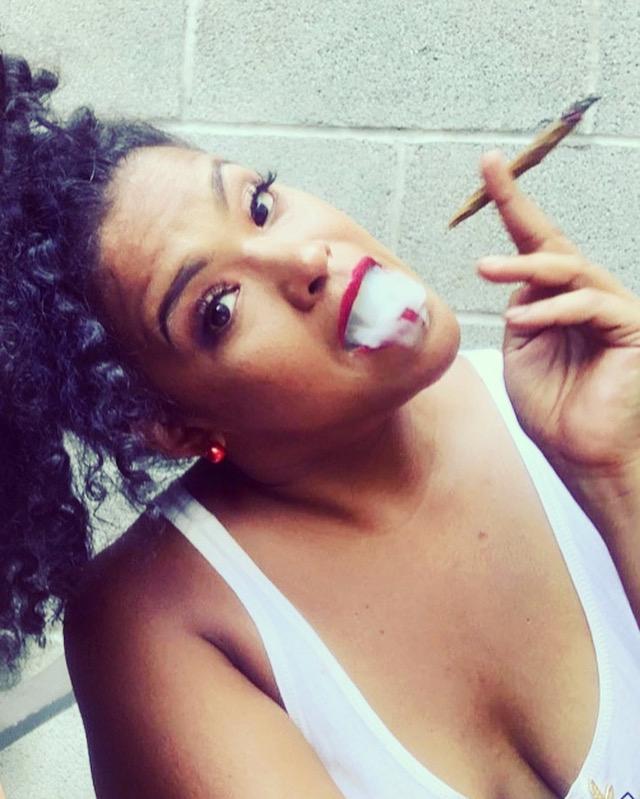
For more information, follow @all_that_jive_nyc on Instagram.

"How can people think about becoming entrepreneurs if they don’t have basic needs of housing, health and safety met first? It will take a crescendo of inclusive voices to keep us on task and moving forward."
57 VOLUME 16 @HONEYSUCKLEMAGAZINE
Annette Fernandez © Cruz Caldera @cruzcalderacreative
For more information, follow @queeneethekannakritic and @livewiththequeenee on Instagram.
Melodie Gonzalez, AKA Queenee the Kanna Kritic, is a content creator, podcast host, brand educator, and canna-mom who devotes herself to advocacy around cannabis for healing and upli ing other women. “I hope to bring a spotlight on the amazing women who work in the cannabis space,” she says. “I became a Kanna Kritic not to criticize, but to empower and educate this plant to my cannamom community, my fellow chronic pain warriors. I want to show that I can take a stigma and turn it into a success; for me and not for anyone else. I want to create something that hasn’t been done yet; that’s my journey.”
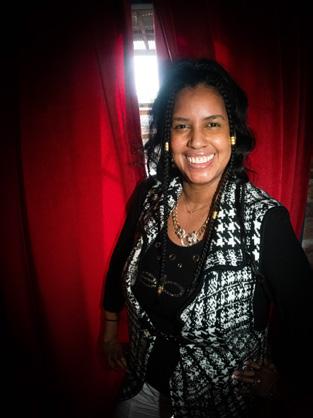
In 2015, a er 25 years working as a registered medical assistant, Queenee developed crippling pains that le her disabled. ough she still lives with the chronic conditions of endometriosis and bromyalgia, the educator shares her story with the world of how cannabis helped her rebuild her health. “I love how cannabis gave me my life back,” she asserts. “It was the only medicine that would take away my endometriosis and bromyalgia pain. I love how it tastes and feels when it hits my body. I especially love dabs because that high concentration of THC instantly takes me to a pain-free place.”
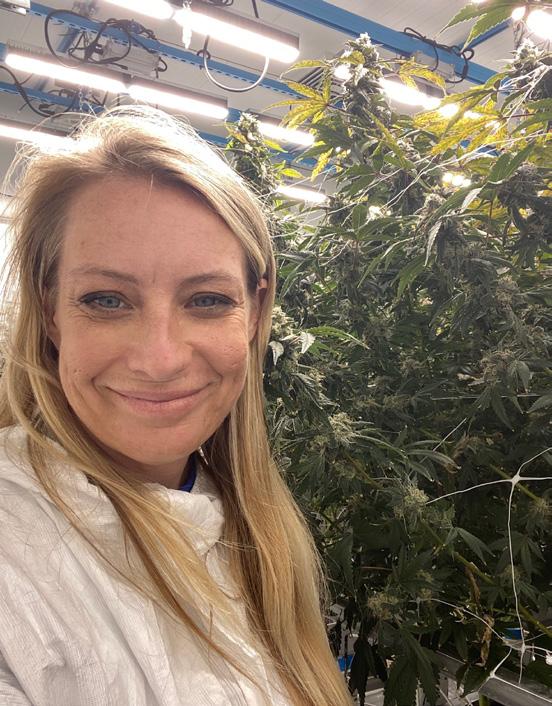
A constant presence across all social media platforms and host of the Live With e Queenee interview series, Queenee also serves as an ambassador for Fat Nell, a woman-owned cannabis cultivation brand, and Fat Ass Glass, which brings rare glass pieces and unique subscription boxes to the community.
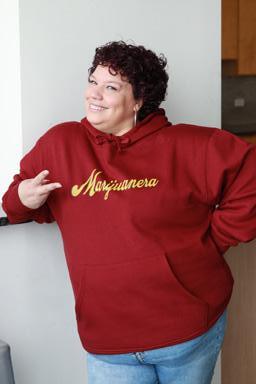






What got you into cannabis?
I took my love for cannabis and its healing powers and paired it with a press pass for the Women Grow [exhibit at the Cannabis World Congress and Business Expo] last June; it’s where I rst saw Honeysuckle Magazine and realized that I was home. I could be free in a space where there was healing and acceptance. Shout out to Jenny Blaze for encouraging me to go and KymB for showing me all the reasons that I should stay!
What do you like to smoke?
e Queenee loves the Hash Rosin. I’m a dabber by nature and I love glass pieces. My motto is “If you stay lit, you ain’t gotta get lit.” Gelatos are my favorite because they are great for reducing in ammation and anxiety.
What’s your favorite thing about being a woman in the cannabis space?
Knowing my worth and knowing that I do not meet outside validation to succeed. Keeping in mind always that my sisters’ success is my success.
Tami Garcia is the founder of licensed dispensary corporation Tastee NYDC, a family-owned business that operates out of Washington, D.C. and New York City, and co-founder of the NYCC Canna Competition and Awards show, which showcases the best in New York’s product innovators. A military veteran who balances a keen business acumen (she’s been an IT program manager on Wall Street for over a decade) with a lifelong passion for music and community advocacy, Garcia dedicates herself to bringing all in the cannabis space under one banner for eternal friendship. To that end, her Brooklyn event space e Bamboo Cafe allows for networking and celebrations of all kinds. As she describes, events can consist of “a music showcase, private party, comedy or spoken word, 420 seminars, CBD classes,” and so much more. “Our cafe operates in a multi-capacity to include our retail gi shop, delivery and preparation, food and events,” she says. It’s no surprise that the people-loving entrepreneur, who thrives by creating connections, also has an entirely other career as a musical artist who plays piano, steel drums and various percussion instruments. Under the name Tami G, she’s recorded several Soca songs that have been marketed throughout the Caribbean. No wonder she’s such a erce ghter for making One Love a reality. For more information, follow @tasteenydc on Instagram.
What is your full name and what you want to go by
Marina Henry-Arpe
@empressmarina55 @degreeinrealestate
What is your favorite thing about cannabis
e global cannabis community
What got you into the space?


I was introduced to the culture from living with my hippie parents.
What do you hope to accomplish
Expanding the local and global market with more cannabis friendly properties
What do you like to smoke on (favorite strain!)
Currently it’s permanent marker I get from Doja genetics are from seed junky. As for concentrates I love Jam the team Alex and Megan at jungle boys Florida has been putting out straight heat my new fav from the last eat drop is papaya mix with hippy crashers , HIPpaya,
How do you like to consume (smoke, vape, edible) etc.
At the house a bong for ower and rig for dabs. On the go I have elements and a Santa Cruz shedder in numerous pouches purses and my center console
Best thing about being a woman in the space
It’s simply marvelous to be recognized and noticed for something I love. It’s an industry I’ve always believed in from an early age.
Worst thing about being a woman in the space. e worst thing, please don’t be o ended, is being labeled a woman. It's a given. e guys are never labeled the “gentlemen of the garden” or industry. Why does everyone always have to say oh look there some women that work in the cannabis space. I think as the numbers of females increase in the industry maybe this term will become less used.
WWW.HONEYSUCKLEMAG.COM 58 VOLUME 16
(C) Queenee The Kanna Kritic
The Canna Power Couple: Work’N’Roll and HighGarden
By Alexa Nasiedlak
Meet Elyssa Colón and Jackie Conroy, co-founders of HighGarden, and Julia Deviatkina, founder and CEO of Work’N’Roll, representing two women-owned businesses who share the same values: curating a visually aesthetic space that fosters creativity and genuine connection.
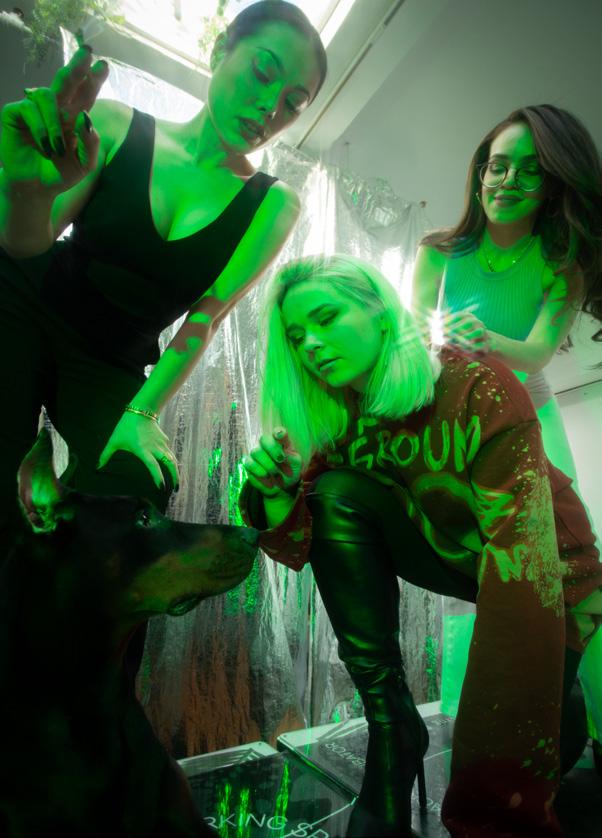

A luxury, “High”-end lifestyle brand for the canna-consumer and canna-curious, HighGarden is a hospitality group and event curation/production company hosting events across the Greater New York area. Colón and Conroy operate HighGarden alongside Elyssa’s ancé Mike B, organizing dinners, brunches, chess tournaments, comedy, burlesque, and more. Included are infused mocktails, a vapor bar, smoked cocktails using the Stundenglass water gravity infuser, and various treats to encourage people to mingle, network, and chill.
Located in Chelsea, Work’N’Roll is New York City’s rst women-owned, cannabis-friendly co-working space and start-up incubator. Work’N’Roll stemmed from Deviatkina’s own experience starting a small business from scratch, with no employees and no funds for o ce space.
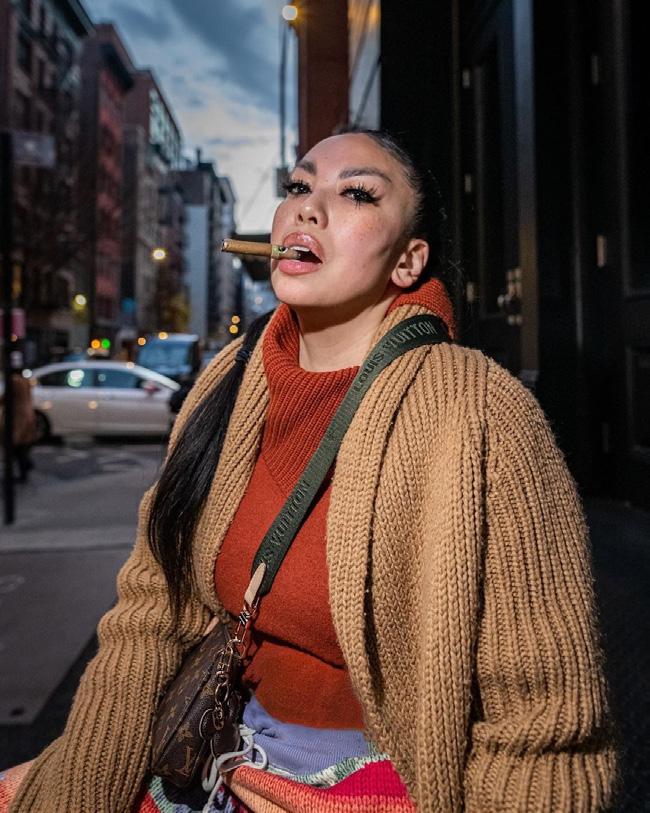

Boasting a ordable daily prices and co-working memberships for small businesses and entrepreneurs, Work’N’Roll “is perfect for small business owners– just the ability to go somewhere [with] wi , co ee, [and a] table to be able to smoke and get creative,” says Deviatkina. “[Work’N’Roll] is about bringing minds together and collaborating with diverse communities.”
At night, the professional space turns into an event venue, o en working in conjunction with HighGarden. Here, anyone can come, consume, create, and meet other like-minded canna-enthusiasts.
“As women, we are always thinking about how we can bring more women in by creating a safe space,” says Colón. “We are putting everything together literally ourselves. We're setting everything up. We're moving furniture, painting, building.”
Each event is handcra ed, like the recent “Her Flower Shop,” featuring a DJ, ra e, dab station, and of course, ower. Colorful LED signs, owers hanging from the ceiling, di erent fabric couches, an area to take photos, all set the scene.
Conroy notes, “Having a clean space, a working bathroom with feminine products, an Instagrammable wall, those little details matter. We want people to want to be there, to want to take a picture.”
ey curate events for women in particular: Yoga and meditation classes, Tarot readings, facials, massages, female-led marketplaces. ese allow a safe space to be vulnerable, practice mindfulness, and commune with the plant’s full e ects. Such platforms also emphasize helping one another become the absolute best we can be.
e three entrepreneurs discuss the energy that comes from a room full of women, which Deviatkina describes as “magic.”



“ ere's something special about when there's women in the room just smoking and chatting,” Colón states. “ ere’s this nurturing, welcoming energy– female energy binding with the energy of the plant.”
“ e energy that’s le [a er an event] lasts for months,” says Deviatkina. “Everyone being able to tell their stories, coming together in one space, it’s empowering. Nothing is impossible.”
“It’s a mutual respect, and the want for your sister to grow alongside you,” says Colón. “You don’t want to compete... It’s more along the lines of ‘Give me your hand so I can bring you up here too.’”
On April 29th, Work’N’Roll and HighGarden are representing New York City in the global live-streaming of late cannabis activist Frenchy Cannoli’s documentary Frenchy Dreams of Hashish. Following the lm, they’re hosting a tea and chocolate tasting paired with hash in the legendary hashmaker’s honor. Work’N’Roll continues to o er accessible networking opportunities for small businesses like cannabis career fairs, panels and educational classes. From poetry nights like Cann I Spark the Mic and burlesque shows to more women-focused events, meditation, and mindfulness, HighGarden and Work’N’Roll have something for everyone.
For more information, follow @worknroll.nyc and @highgarden.nyc on Instagram.
Cat Oullette is a creative and marketing professional with over 20 years of experience in content creation, music and entertainment. She is the founder of COI Digital and Chief Marketing O cer of award-winning cultivation company Electraleaf. Most recently, Oullette was granted a coveted New York Conditional Adult Use Retail Dispensary (CAURD) license, which are given to justice-involved entrepreneurs and their families who have been impacted by the War on Drugs. is summer, she will launch the Bodega Cat brand in New York and California, an ode to NYC’s Chinatown, Asian-American and Asian diaspora culture which will feature Asian-inspired strains and cannabis culture.
What got you into cannabis?
I was always around weed since high school. I used to breakdance and go to raves and nightclubs, so I was bound to come across weed. But I came in professionally by accident in 2009 because I moved to Oklahoma from L.A. in hopes to be secluded and nish my screenplays. I worked as a DJ on weekends and used to promote my events on social media. I was then approached by all these cannabis companies. Oklahoma was oversaturated with licensed businesses, so they were guring out how to stand out. I agreed to help them, and eventually, Electraleaf signed me on as their Chief Marketing O cer. I manage several brands on a daily basis.
What most excites you about becoming a New York CAURD licensee?


I never imagined in my lifetime I’d ever own a business, let alone a retail dispensary. I’m the same girl that was in foster care at 4, homeless at 17 in Times Square. What are the odds of making it? In the cannabis industry, only 20 percent of owners are women. 2.4 percent are Asian Americans. e fact that Brooklyn opened up for licensing was a miracle. My partners and I made it to one of three licenses in all of Brooklyn. It’s a big deal for us. I’m grateful for this opportunity and hope to open doors for the marginalized and the underprivileged. I’m ecstatic to be part of the narrative.


What do you most hope to accomplish, or see accomplished, in the future cannabis industry?
Truthfully, I’d like to normalize weed just like how society normalizes a glass of wine or beer. I hope to see a Super Bowl cannabis ad. I hope to educate people of its long list of bene ts and ways to consume it. I cannot wait to see tourism come into play in Vegas, New York, ailand, and more to come. I hope to contribute innovative ways to consume socially. While I am at it, I also want to help marginalized communities as I was once homeless, and throughout my adult life, faced a great deal of sexism and abuse of power. Growing up, I was exposed to domestic violence, poverty, rape, and mental illness. One of my life missions is to nd solutions to these environments. When I was 14, I was a dance teacher at a community center and introduced an a er-school open dance session. Kids o en used to let me know that I changed their lives for the better as I unknowingly created a safe space for them. at’s when I knew I could make a di erence.
For more information, follow @catouellette @bodegacatxo @electraleafny on Instagram.
Respect The Block: Mar Fitzgerald Guides the Future of Community-Focused Cannabis Businesses
By Kally Compton
Equity is the cornerstone of the cannabis movement. And with the rise of cannabis business applications in New York City, it’s up to community leaders to help guide future dispensary owners.
Mar Fitzgerald is Chair of Cannabis Licensing and Chair of the Equity, Race and Justice Committee for Manhattan Community Board 2 (CB2), which encompasses the West Village and other prominent downtown Manhattan neighborhoods. “[ ese committees] are very connected in my mind, because cannabis legislation is o ering opportunities to traditionally marginalized groups,” she says. “ at is a part of equity, race, and justice in furthering that mission.”
When the Marihuana Regulation and Taxation Act (MRTA) dropped in March 2021, Fitzgerald ensured that her community board would do everything they could to honor the statutes of equity and inclusion within every space of the new market in New York.
e state’s rst three dispensaries to open are located in Fitzgerald’s district. She says this wasn’t on purpose, but it makes sense considering her committee’s involvement with the rollout and the location of their district.
“People want to operate here because our neighborhoods are hot,” Fitzgerald claims. “ ey’re huge shopping, entertainment, and tourist destinations with a lot of foot tra c.”
For about ve years, Fitzgerald has been on CB2’s SLA Liquor Licensing Committee, so she had an inside scoop on how New York might handle the distribution of cannabis licenses.
“I think that the state only had that model to follow,” she claims. “And when I put together the process I followed it loosely, because in my mind dispensaries are retail businesses, not hospitality establishments.”
Fitzgerald describes CB2 as handling the quality of life for district residents, which means she and her peers have to determine how new cannabis businesses will a ect their local neighborhoods. All business owners are required to ll out a CB2 questionnaire and meet with the Board before they’re approved to open their doors is process can vary depending on the business. When Housing Works proposed their dispensary Housing Works Cannabis Co, Fitzgerald says CB2 recognized the nonpro t’s decades as a successful neighborhood retailer. Roland Conner, owner of Smacked Village and the rst justice-involved cannabis licensee, had a legacy of personal community engagement. Union Square Travel Agency, partnered with e Doe Fund, came represented by private operators new to the area, though their recent activity in community relations and education has proven they listened to CB2’s recommendations to “respect the block.”
“We want them to succeed,” Fitzgerald notes of all the dispensaries. “We’re here for them.”
When future cannabis business owners in any category are scouting operating locations, Fitzgerald suggests they take a walk through the neighborhood rst.
“Go talk to the neighboring business owners and residents to see if it’s somewhere you really want to be,” she advises. “See if that’s somewhere you can be of bene t to the community.”
As an active parent, Fitzgerald is passionate about supporting New YorkY’s education system from a standpoint of equity. In 2016, she co-founded the organization FREE: Families for Real Equity and Education within Education District Two. She emphasizes respecting the block and accessible education, so she o en connects CAURD applicants with local block associations, merchant associations, elected o cials, and even schools to erase the stigma around the plant.


“We encourage them to go and talk to people and react and nd out what the local concerns are,” she explains, “so they can cultivate their business around tting into the neighborhood.”
New York’s cannabis legalization has brought many concerned parents to worry that the rollout of new cannabis businesses could negatively impact the youth due to easier access to THC-based substances.
As illegal dispensaries increasingly pop up around the city, Fitzgerald and other cannabis advocates have taken action as watchdogs through reporting to law enforcement. “Of course, it’s like Whack-A-Mole,” she claims. “ ey open right back up.”
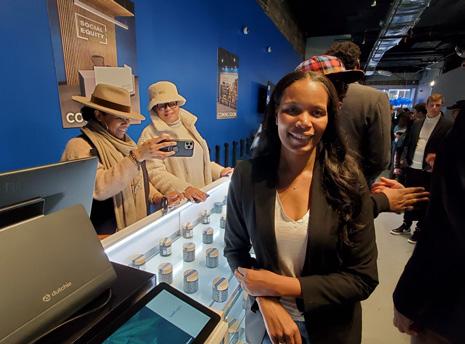
Fitzgerald urges people to support regulated legal dispensaries like Smacked Village, rather than illicit companies. “I know that my 12-year-old is not going to be able to walk into a legal dispensary,” she laughs. “ at’s a great thing. I want to see an end to illegal and unregulated shops that sell to children. As more legal dispensaries open, and illicit dispensaries are shut down, people will gain a better understanding and maybe even appreciation for these businesses.”
While Fitzgerald does not personally consume cannabis, she grew up in a canna-friendly household, and she appreciates the plant and its bene ts. Her advocacy is inspired not only by her father, a life-long cannabis consumer, but also her work on the community board. She witnessed New York a ord opportunities to only certain members of her community.
“I wanted to make sure that, at least in our little corner of the universe,” she says, “that this was done correctly and equitably.”
Fitzgerald believes legacy operators have been a key factor in the state’s dispensary rollout. Legacy entrepreneurs have o ered education and expertise to government o cials and chairs to ensure equity and social justice are a part of New York’s cannabis legalization.
“ ey’re evangelical,” she says. “[Legacy operators] have a true love of cannabis, and they see it as a personal mission to spread the word and share information. e generosity of the New York cannabis community has been invaluable in helping to create a process to e ectively receive and vet incoming cannabis businesses.”
All citizens and cannabis advocates can be a part of the conversation as well. If you want to be involved, make sure to identify who's on your district community board so you know who to contact when it comes to these big community decisions. Even local political clubs such as the Village Independent Democrats (VID), which Fitzgerald has led for the past two years, can help locals with education and involvement within cannabis legislation and business.
“It’s a wonderful opportunity to have a strong voice in your life, community, and city,” Fitzgerald a rms.
As Founding Director of the New York City O ce of Nightlife (or the “First Nightlife Mayor”), Ariel Palitz has taken her passion for the city’s bars, restaurants, and clubs to the utmost, implementing multiple programs for neighborhood safety and business innovation over the last ve years. Now, looking toward her next move a er government, she shares her insights on the future of cannabis consumption lounges in the Big Apple.
HONEYSUCKLE MAGAZINE: New York is already the cannabis consumption capital of the world. How do you think the launch of legal onsite consumption lounges will shape that culture in its next evolution?
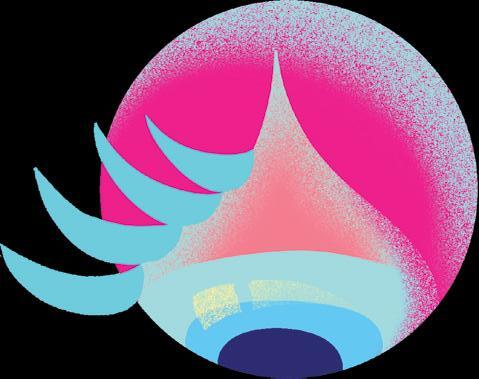
ARIEL PALITZ: I think there is a lot of positive potential for the future of NYC nightlife when it comes to onsite consumption lounges. [Cannabis use goes] hand in hand with entertainment, dancing, and music. Historically, there has always been a risk of incarceration or licensed businesses getting shut down due to its presence. But now with the prospects of legal social consumption, the doors are opening for creativity, commerce and culture that can be safe, transparent and pro table. We think this will provide even more options to the nightlife landscape that is re ective of gatherings that have traditionally taken place in shadows.
HS:How could onsite consumption lounges participate in public education and messaging? Is that necessary for their success?
AP: New York is still in the planning stages of what consumption lounges could be, and I think there is a lot of opportunity to ensure that proper education and guidance are available. I love the idea of having “BudTenders” or a “Ganjier” in place of a sommelier… why not? Like wine or beer professionals, knowing cannabis is a cra and skill and an important element in this emerging eld, rst for safety and education, but also for connoisseurs.
HS:Do you think the emergence of cannabis consumption lounges would take people away from bars and nightclubs?
AP: I actually don't think that the emergence of cannabis consumption will necessarily take people away from bars and clubs because there will always be di erent strokes for di erent folks. Some people want to go drinking and dancing, some people want to be smoking and lounging, and that could change for the same person from time to time. e whole purpose of having a legal market is to decriminalize the human behavior that people have been engaging in for decades based on their own evolving preferences, and to be able to make legal, social and viable places for them to do so.
HS:What do you hope to see in the future of cannabis being incorporated into NYC nightlife?
AP: What I would have hoped to see is already happening as far as a greater sense of safety and freedom to participate in consuming cannabis without fear or risk of being arrested when stepping out of a venue to smoke a joint. at assurance has been a tremendous relief for many in the nightlife industry. As far as my hopes for what’s next, I am extremely optimistic that this emerging legal and regulated chapter of cannabis is opening the door to a whole new world of possibilities for creative culture and commerce that is also a foundation for equity and justice.
For more information, follow @nycnightlifegov and @arielpalitz on Instagram.
Cannabis Positive Programming: Meet Texas Based Grow House Media
By Veronica Castillo
Texas may be the last state in our country to legalize. e Texas government recently showed how much they don’t want cannabis through an attempt to ban smokable hemp; a federally legal product.
But Austin-based cannabis production company Grow House Media (Grow House Texas) is working to clear the smoke around the most misunderstood plant on the planet; living at the intersection of education and entertainment, advocacy and amusement, telling the truth about cannabis, and getting a little wild along the way.
Grow House is founded and operated by Liz Grow and Patrick Pope, husband and wife video storytellers who travel the country to “e ect positive change in our state and country”, keeping the legalization conversation alive. As owners, producers and hosts of Grow House, the couple focuses on telling authentic stories about the people behind the plant to make cannabis approachable and fun.
Liz says Grow House Media is meant for them: “We were born to make cannabis our religion; just kidding! I always get a great reaction when people nd out that GROW really is my last name. It makes me feel like I’m on the right path.”
Grow House has worked with High Times TV to stream their nationwide journey, and they continue to tell stories like the upcoming docuseries Big Texas Hemp, which follows six Texas farmers as they navigate the state’s new legalized hemp industry. As a cannabis advocate also from the South (Florida), I was excited to learn about Liz and Patrick’s journey.
Born and raised between Italy, Florida, and Texas, they didn’t grow up with a shining light of positivity on the plant.
“We were both pretty sheltered and our parents never talked to us about cannabis,” Liz recalls. “‘Don’t Do Drugs’ was the extent of it! We both tried cannabis in high school and thought it was great, but that was that - we knew that we were breaking the law and didn’t see cannabis as a medicine.”
Before romance, there was friendship between the Capricorn (Patrick) and Libra (Liz), who met in high school and became occasional sketch comedy partners. Going their separate ways for college, they each found cannabis. Patrick, who moved to New York to pursue independent lmmaking in his 20s, remembers his journey to becoming a cannabis consumer: “In college I was not a partaker, but I was pro-freedom, and thought the War on Drugs was a scam. In my 20s, I was an occasional user living in NYC trying to work my way up the ranks in production. Around age 27 I was working as a development assistant and had a really big pitch, and the night before I was experiencing creative block. My roommate said ‘Go hit the Bong in my room.’ One massive bong rip and three hours later, I was ready for bed with the pitch of a lifetime fully developed and rehearsed.”
Liz shares what got her into cannabis: “I was living in San Francisco in 2011 to launch a tech start-up and slowly dipping deeper into depression due to the pressure of the work and distance from my daughter in Texas. I started to question my worth and purpose which led to suicidal thoughts, but I didn’t want to get on the rollercoaster of anti-depressant meds. I was introduced to cannabis by a coworker and friend who could see that I was struggling, and I truly believe that she saved my life.”
e inspiration behind Grow House Media started with safe cannabis spaces and real education that Liz experienced in San Francisco, which she vowed to bring back to Texas.
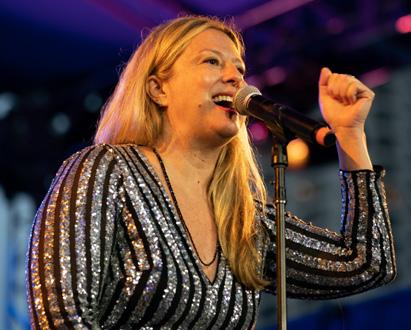
Visiting the Grow House Media website and the Grow House Texas Instagram page is a treat; it documents their adventurous journey around the country in the name of cannabis, lled with content and insight such as:
-CanEx Jamaica: covering the new industry and sacred roots.

- e Emerald Cup: meeting and learning from the Emerald Triangle community.
-Auto ower Cup: sleeping in yurts and foraging for mushrooms.
Liz and Patrick a rm: “We’re always ready to travel to where the story is happening and meet the people making it happen. We’ve easily visited over 100 grows across the country and spent countless hours with growers, breeders, and extractors from both the legacy and legal markets”.
In addition to storytelling and education, Grow House Media o ers full-scale video production services, multimedia marketing strategy, events development, and more. ey will announce the premiere date for the Big Texas Hemp docuseries soon.
In the meantime, Liz and Patrick say, “We are proud Texans and are excited to introduce our fellow Texans to a new way of looking at and bene ting from cannabis. We’d like for people to know Grow House as an important movement that they helped drive. We want to inspire people to think about cannabis di erently and ask these questions out loud. When people think di erently they will vote di erently, and that’s what really drives the Grow House engine. Change. And we will never stop.”
For more about Grow House Media, visit growhousemedia.co and follow @growhousetx on Instagram.

61 VOLUME 16 @HONEYSUCKLEMAGAZINE
Bourdain-style, studying under the best breeders, geneticists, and growers to develop the skills to curate a unique strain library. He also took on a partner, known only as “The Wizard,” who’s responsible for the daily curations of the Bodega Boyz’s plants.

“Through his ten years in the industry, he’ll tell you he never grew such great weed,” Chhabra says of The Wizard. “That’s because he’s never had a partner so passionate about the end result… [But] he’s gifted. When he walks in, the plants are happy. And you get to really feel the plants. You can tell when they’re thriving, when they’re sad, what they’re thinking because they’re living beings. You have to be able to love and connect with your plants. This is a dirty, hard, wet business. It’s a science, it’s a love and appreciation, it’s so many things in one. And you have to respect all those things to create great cannabis.”

Chance timing brought Bodega Boyz to Oklahoma, where they’ve made a deep impression in the state’s medical market with four dispensaries, two cultivation facilities, and presence in 500-plus retailers. Today the vertically-integrated company also has two dispensaries in Canada (with a 75-store license for the country), a California-based cultivator, and just launched in Los Angeles retailers this April. New product categories are being innovated all the time, such as a solventless hash-infused pre-roll line that was introduced at the end of 2022, and the first Bodega Boyz clothing line to debut later this year.





Chhabra takes pride in the opportunity the brand gives him to combine all his passions: environmentalism, education, plant science, and helping people. Bodega Boyz cultivates only organic flower using eco-friendly practices and super-sensitive testing on the plants. Prices are typically maintained at a fraction of what you’d find for similar products on the market, in order to be as universally accessible as possible. Their clothing will be eco-friendly as well, according to the jolly leader: “There’s going to be two clothing lines. One will be streetwear and stylish… something you can wear to dinner or the gym and be comfortable [either way]. The other will be an efficient line which is going to be hempbased… or biodegradable clothing. We’re still learning how to work with it. But our soft launches on T-shirts have sold out.”
“You
have
















be from New York.” As co-founder of the brand Bodega Boyz, Paras Chhabra has been driven by that drive to do spectacular things. In just two years of operation, he’s managed to achieve locations in multiple states and Canada. Known for producing rare, superior organic cultivars, the company is also one of the most powerful independently-owned brands recognized by Weedmaps and Leaflink, as well as the top flower provider in Oklahoma. Chhabra accomplished this primarily by bringing Big Apple flair to the Sooner State’s surprisingly fertile market at just the right time. What’s the entrepreneur’s secret to success? Simple – he loves his job.
“I’m happy to be able to represent New York cannabis all over the world,” Chhabra enthuses. As a Queens native and the child of immigrant parents, the savvy boss grew up visiting classic bodegas, including their off menu cannabinoid offerings. This legacy influenced the Bodega Boyz brand, which evokes its namesake through product design. Packaging for the company’s eighth bags recalls old-fashioned water jugs and milk crates. Pre-rolls are called “loosies,” patterned after deli-style single joints. Through touches like that, Chhabra and his team keep culture alive, reminding consumers of the steps taken from legacy to legal in cannabis history.
The brand also exemplifies New York’s consumption experience in its continually evolving offerings (this season alone, they will release 20 new products). It speaks to Chhabra’s reputation as a “connoisseur smoker,” who leapt at his first chance to enter the cannabis industry. “I become obsessed with projects I really like,” he explains. “And customers will chase quality. When I was into wine a few years back, I became a mini-sommelier and knew where the regions were, where the grapes were grown. When I got into cannabis [professionally], rather than being a consumer, I wanted to understand the plant and genetics and figure out what produces the best flower to its capability.”
Before cannabis, Chhabra was a jack-of-all-trades who owned 40 T-Mobile and Sprint locations, becoming one of the leading dealers in the New York/New Jersey region. He perfected team-building techniques with his employees that helped him put people first. Another gig, in fashion marketing for the Von Dutch brand, strengthened Chhabra’s business arsenal. But Bodega Boyz sparked the adventurer’s epicurean spirit; he spent months traveling the globe Anthony





In Oklahoma, one of the nation’s toughest cannabis markets, Chhabra and his team have thrived on the challenge to meet consumer needs. Their inventory sells out daily, and they keep a regular customer waitlist. Meanwhile, the tastemaker himself often works 15-hour days, a commitment which rarely bothers him because there’s nowhere else he’d rather be.
“We’ve stayed private and opened up these markets through personal investment, through partnerships, through licensing agreements,” he notes. “You can’t run away from the hard work that’s needed to build a foundational company. At this point, I know what it takes to be a grower, a processor, a sales rep, an account manager. I understand every role because I had to build that role.”
Being in the weeds with his team, literally, is paying off. Bodega Boyz was recently valuated at $40 million, and any profits are reinvested right back into the system to guarantee quality products and service. But where Chhabra still waxes most poetic is what got him there in the first place – it’s all about the plant.
“Cannabis is beautiful,” he rhapsodizes. “How it brings people together… We’re here, we’re going to stay here until the end. And we hope to be able to enjoy the plant and the medicine with as many people who consume it as possible. We hope Bodega Boyz, in the next five or six years, becomes a super household name internationally, and people really recognize what we’ve done. If we can be successful [in Oklahoma] and we come from the New York background and mind-frame of doing business, I feel like we can take over the world.

can do it private or you can do it big, but you
to
I F Y O U C A N M A K E I T T H E R E :
BODEGA BOYZ NYC PRIDE WORLDWIDE
“
You have to be able to love and connect with your plants. This is a dirty, hard, wet business. It’s a science, it’s a love and appreciation, it’s so many things in one. And you have to respect all those things to create great cannabis.
“
with mouse ears. (Although what you see on psychedelics is up to you, we don’t judge.) But if you’re looking for quality mushroom-based edible products, then travel to the land where the only question is how far you want to expand your mind. Meet MK Edibles, the pioneers behind an increasingly popular brand of artisanal mushroom delights. The brand’s founders extoll psilocybin’s ability to “awaken you inside your body, mind, and soul to reconnect with yourself.” Their lineup features 15 different formulations of edibles, including chocolates, gummies, and quite extraordinary mints that have quickly become a cult favorite. But beyond the products, the founders are excited to wake up with a purpose every morning, feeling a drive to help people through plant medicine.
“It can never be explained, it has to be experienced,” is the MK leaders’ motto, attesting to both the intensely personal nature of the human-to-mushroom communication and their own mystery. These innovators, who prefer to remain as illusory as whatever their customers might see on a vision quest, got their start in the legacy cannabis space several years ago and expanded from loving one type of plant medicine to all of them. They’d succeeded in making cannabis edibles for the past decade, creating wonders with their kitchen team. But when they saw the cannabis market becoming oversaturated, and fell in love with psilocybin at the same time for the magic mushroom’s health benefits, the way forward struck like lightning. In fact, the two are so in sync with each other that when one partner got the idea to transition from cannabis to mushrooms, he met his colleague in person to relay the news, only to discover his co-founder already hard at work on an initial tray of mushroom goodies.
“We pride ourselves on the quality of product,” says one of MK’s visionaries. Not only do they infuse the highest-caliber mushrooms into their items, but also “the ingredients and thought process behind each individual flavor” have significant impact. “One of our pillars of the company is striving to enhance not only your conscious wellbeing, but also being able to engage in enjoyment of our wonderfully curated flavors. Working with the best purveyors, carefully sourcing the highest quality ingredients, from fresh fruit purees to the finest chocolates of the world, to mix into our products for people to enjoy every last bite.”
It’s additionally helpful when you know the culinary world inside and out. One MK co-founder worked in a variety of Michelin star restaurant kitchens, cooking for 12 years before even entering the cannabis space. “So for us as a crew, we try to bring the same quality experience into our MK products,” he notes. “I think hitting all the boxes as far as execution and experience, while indulging in MK is what sets us apart from others [in this industry].”
That formula’s obviously working. Today their products are all over the world, from major cities in the United States and Canada to remote parts of South America. As the saying goes, detail creates value. “When you put your energy and attention into craft, you give it your all,” one founder explains. “We’re trying to curate an experience for our customers. Our fans love what [MK] stands for. We weren’t the first [to market psilocybin edibles], but we came correct as far as quality. Our surveys, our quality of products, our dosage. We have products that are going to help people.”
Providing forms of medicine to the public motivates MK’s leaders to do what they do each day. They praise the accessibility of psilocybin as something anyone can try and learn about, though they emphasize the importance of respecting the plant as medicine.
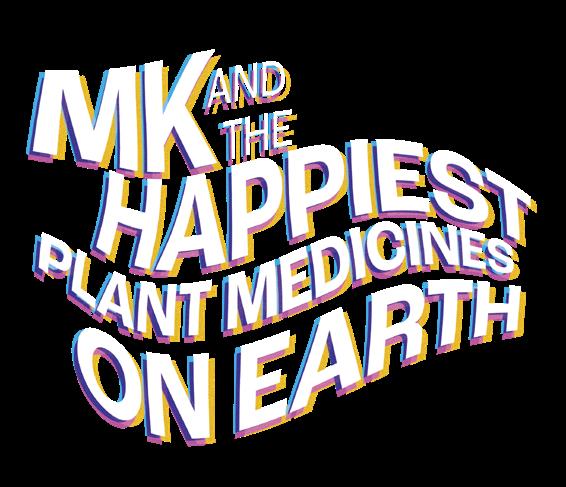
“You’re going to gain something from every single experience with psilocybin,” they affirm. “It can be subtle or something major. But you’re going to be functioning properly.”
Microdosing is recommended for the casual consumer or for the purpose of integrating mushrooms into one’s daily routine like a vitamin. Taking a small amount, which in terms of MK’s products could be one square of a chocolate bar or one mint at a time, helps with focus and energy. Many people find themselves more relaxed with microdoses, that their moods are elevated and they can be in greater harmony with their surroundings. It alleviates daily stress and anxiety, and keeps you “controllably in tune.” On the other hand, the experts suggest macrodosing as a more sacred experience that should be reserved for a spiritual journey or confront a time of crisis with deep emotions.

According to MK’s founders, we’re now in an age where more people are ready to engage with psychedelics. Numerous states are considering plans for legalization of psilocybin in some capacity, and Oregon, the first state to legalize its recreational use, began accepting license applications in January. Like cannabis, mushrooms are everywhere, which the MK gurus attribute to the widespread influence of mycologist Paul Stamets and the 2019 Netflix documentary Fantastic Fungi. They observed that this film’s premiere coincided with the rise of psilocybin consumption in Silicon Valley’s young entrepreneurs, steadily making its way into the mainstream through the idea that “if geniuses who were creating all these apps are taking mushrooms, there must be something good there.”
The founders predict that psilocybin, and psychedelics in general, will be more readily available throughout the U.S. over the next five to ten years. It seems likely that mushroom-based products will be sold in legal cannabis stores in the future, although as more state legislatures propose psychedelic treatment for medical purposes, it also may not be long before Big Pharma has some exclusives in the space.
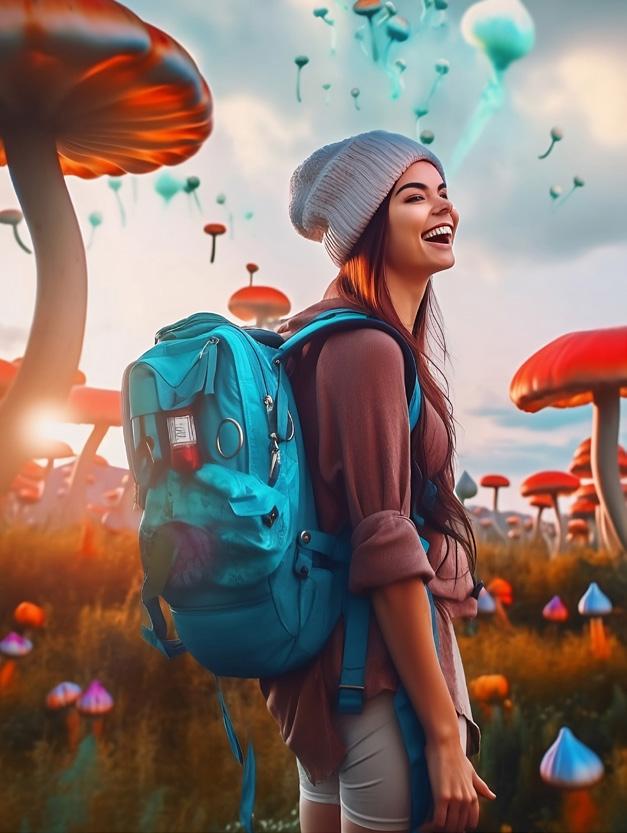

For the MK team, they’re currently content to see what happens in the greymarket space. Operating in a clandestine manner since their cannabis days, bootstrapping secretly in the psilocybin world is nothing new to them – and sometimes, that freedom makes it more fun.
Quoting Good Will Hunting, they claim they are “bound by nothing”: “We want a structure where people who know our qualities know that we’re always looking to do more. To excite consumers’ palates. We’re in chess, not checkers, in the great arcade of life where we’re playing. We want that mystery of seeing where [customers find us]. Our products are all over South and Central America. Obviously, when the white market gets going, we want to rock and roll; we want to be in a compliant market. We want brand recognition, but we want people to come to us.”
At their core, MK’s founders are just thrilled to help enhance people’s lives through the memories they choose to make themselves. “We want someone to look at our packaging and go, ‘Hey, remember the time we ate MK’ and it’s like they’re looking at a family picture. We want to be a part of this movement forever. When you take psychedelics, you remove boundaries and you realize that things are limitless.” And that realization is truly magic.
Check out MK below:

Image created with Midjourney
63 VOLUME 16 @HONEYSUCKLEMAGAZINE
“You’re going to gain something from every single experience with psilocybin...It can be subtle or something major. But you’re going to be functioning properly.”
Microdosing has been tres popular for years. Most people are familiar with the term. How do you define Microdosing?
I would define microdosing as taking a small amount of psychedelics on a semiregular schedule. Of course, there is variance with each individual’s tolerance, but in most cases, for psilocybin, a microdose is between 0.1 – 0.5 grams. With LSD, anything less than 20μg is considered a microdose.
What are the everyday benefits for most people you see coming from Microdosing?
The range of responses that I’ve received regarding benefits varies so much. From parents who report having more patience and more childlike interactions with their children to those who report having better communication with their partners, friends, and colleagues, to creatives who say their senses are enhanced for their art, to those who report diminished cravings for tobacco, drugs, alcohol, meat, sugar, etc., to others who report advanced progress with their healing therapies for trauma, or those who say it’s been a lifesaver as a companion for coming of decades use of pharmaceuticals. However, I would say that the most common benefit of microdosing psychedelics is self-awareness. Awareness of oneself is the foundation for development in any area of life, and psychedelics always seem to meet people where they are at.
At what point during a trip do you change gears to oh shit, this is a little bit more than micro?
Microdosing should not be disruptive to your daily life. You should be able to function like any other day. Normal day activities like driving, working, talking, and exercising should not be affected. Some folks report feeling something physical and sensorial, while others feel something more emotional or spiritual.
If you are new to microdosing, I have a few guidelines to share. Take your first dose on the weekend with food.
Caffeine, citric acids, and vitamin Bs are known to be amplifiers, so the effects will come on stronger and faster, but the duration will be shorter. If you take any of those items as part of your morning routine, try taking your microdose with lunch.
What’s your take on the difference between LSD and psilocybin? I’ve heard them described as masculine and feminine energy.

I would summarize that psilocybin leans toward yin energy. Most people report that psilocybin is helpful for going inward to process, learn, release, and ground. You’re connecting with yourself, your intuition, your true self.
Everyone I’ve interviewed has noted that LSD energy is stimulating external energy. Its interactions gear more towards outward energy connecting with people, the environment, the ether, the 5D, and the universe. I agree that there is a clear difference between the two.
What microdosing schedule could you suggest to someone who is looking to try it?
I’ve learned that there are no actual rules for microdosing. So instead, I
have some guidelines I’d like to share.
A Beginner’s Protocol
I believe Dr. James Fadiman’s protocol is a great one for beginners. It’s one day on, two days off for 30 days. So if you take your first dose on Monday, your next dose would be Thursday.
Think of it like a 30-day research project for yourself. The protocol is excellent because it helps you understand how the product can be a tool to incorporate into your lifestyle.
Day One, it’s in your system, Day Two, there are remnants in your system; and Day Three, you are back to baseline with nothing in your system. So you’re riding this wave for a month and getting to an understanding of how it affects you physically, mentally, spiritually, etc. Also, every dose day is going to be in a different type of environment. For example, one dose day may be on the weekend with friends and family, and another dose day may be a work day with colleagues and clients. So by the end of the 30-day cycle, you should have a very good idea about when this would benefit you and when it’s not a good fit.
Once familiar with the effects, I think it’s perfectly reasonable to experiment with different protocols/schedules to learn what works best for each individual.
Is there any difference between the effects of Microdosing a couple of times to Microdosing regularly on the schedule, perhaps over months or longer?
I think it depends on each individual’s needs and intentions. Based on interviews, I’ve had people report doing one 30-day microdosing cycle and experiencing something satisfactory, and then they are done. Alternatively, I’ve had others who will continue for additional ones. Taking a break every three months is crucial because setting aside time for integration is essential for moving forward.
What’s your perfect Microdosing day?
I think of psychedelics as tools to enhance spirit and performance, so I use them situationally. For example, when I need physical energy, for instance, moving homes, taking the dogs for long hikes, going out when I’m tired, focusing during a dedicated day to emails and spreadsheets, or when I’m public speaking, I microdose LSD.
I’ve also experimented with, learned from, and formed relationships with different mushroom strains, so I reach for them in different scenarios. For example, if I’m experiencing something stressful, I take a Golden Teach microdose every day until the situation is resolved. I find the Golden Teacher tunes out my lizard brain thoughts and feelings. When I am in build mode, where I have to make decisions quickly and confidently, I take the Avery. When I find myself ruminating and looping in my head, I will take a Full Moom or Albino A+ to move the overactive energy out of my head into my body.
So while I don’t have a perfect microdosing day, microdosing psychedelics can help make some days more perfect.
M i c r o M i c r o M i c r o M i c r o M i c r o M i c r o M i c r o M i c r o M i c r o M i c r o M i c r o Mic r o Mic r o Micro MicroMicroMicroMicroMicroMicroMicroMicroMicroMicroMicroMicroMicroMicroMicroMicroMicroMicroMicroMicroMicroMicroMicroMicroMicroMicroMicroMicroMicroMicroMicroMicroMicroMicroMicroMicroMicroMicroMicroMicroMicroMicroMicroM i croM i croM i croM i croM i croM i c r oM i c r oM i c r oM i c r oM i c r oM i c r oM i c r oM i c r oM i c r oM i c r o M i c r o
M i ss Fl ow , wh ose nam e and oth e r i d e n t i f yi n g i n f o r m a t i o n h a v e b e e n c h a n g e d t o p r o t e c t t h e i r p r i v a c y , i s a r e s e a r c h e r w h o h a s i n t e r v i e w e d o v e r 8 0 0 p e o pl e w oh vah e m ci or od s e d LSD and psil oc yb i n m u s h r o o m s . Th e y c o n d u c t i nd e p t h i n t e r v i e w s a n d s u r v e y s t o u n d e r s t a n d i n d i v i d u a l s ’ p r e, p o s t, a n d m i c r o d o s i n g t oh u g h t,s f e e lgni ,s a n d p e pecr t .snoi WWW.HONEYSUCKLEMAG.COM 64 VOLUME 16
MAGIC NUMBERS
MAGIC NUMBERS:
by Jaime Lubin
“Disruptive industries are not for the weak-hearted,” says Harry
Shurek.
As founder of My Cannabis Accountant and The Crypto Accountant, Shurek knows what it means to be a pioneer in disruptive spaces. He’s among the first accounting firms ever to do business in the cannabis and crypto sectors, and certainly the first to market himself as such. But his longevity and innovation have led to remarkable results, including the new metaWRK company that brings cannabis, crypto, accounting, web3, and everything Shurek loves into a platform that’s about to change the world.
Shurek has curated his practice to focus on industrial revolutions. My Cannabis Accountant is one of the oldest cannabis accounting firms in the nation, having worked with over 100 licensees in 25 states. When crypto opportunities arose, the entrepreneur built a 40-machine coin-mining operation out of his basement. Though competition and natural progression got Shurek’s man-made mine “bricked” after two years, he acquired enough knowledge and clients in the arena to open The Crypto Accountant as well.
metaWRK, which debuted in January, is “the first cannabis accountant in the metaverse.” It merges real life and the digital landscape. Facilitating clients’ entry into web3, the heart of the business is concentrated in a four-story metaverse building. Each individual accounting practice has its own floor, where meetings and educational seminars can be conducted as well as other projects. The My Cannabis Accountant area even features a cannabis lounge. Meanwhile, the fourth floor serves as a rooftop event venue and networking meetup space.
Featuring a real-life headquarters in New York, metaWRK offers a diverse suite of services ranging from custom web3 space design and buildouts, AR technology, phygital asset creation, graphic design and website buildout to branding and marketing, pitch deck development, creative services, and virtual lecture hall, event space and office rentals.
“There’s a lot [of overlap between cannabis and crypto], because it’s the same,” Shurek observes. “It’s out of the box thinking… I’ve spoken with people in both industries about doing a cannabis and crypto show, which is what I think we’re going to see this year.” He adds that the rise of NFTs and blockchain technology in cannabis will increasingly be used to verify the authenticity of new strains.
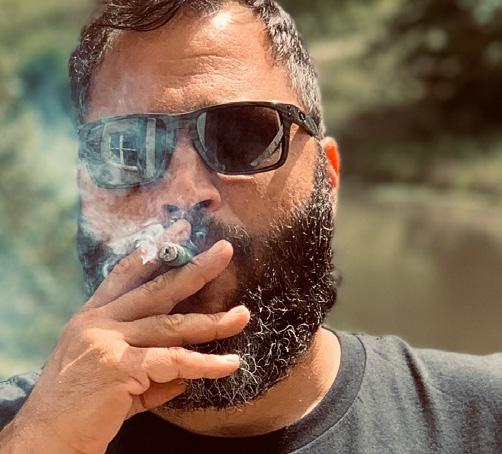


But no matter your business, Shurek urges everyone to remember Al Capone,
MY

CANNABIS ACCOUNTANT FOUNDER HARRY SHUREK ON PLANTS, CRYPTO AND DISRUPTIVE INDUSTRIES
who was convicted and imprisoned not for violence or bootlegging, but for tax evasion, dying while incarcerated. It’s critically important to pay your taxes. Plus, having to think out of the box for his cannabis and crypto clients makes Shurek realize the true reward of being an ancillary service provider.
“A lot of the time, accountants are the last ones you think of, when really we need to be the first ones that people talk to,” he comments. “Because how your company is set up, especially in cannabis, has such a huge effect on the kind of taxes you pay at the end of the year. And we don’t just do taxes, we offer complete business consulting services. We help people understand that the way they form their company has ramifications on how they’re going to do business in the future. Your tax returns not only go to the IRS, they go to banks and investors. They go to people who want to see how your business is doing. There are many different places that look at your financials.”
For example, many of Shurek’s cannabis clients are registered as C corporations instead of S corporations, because then their owners can avoid having to file K-1 forms that would otherwise go through their personal tax returns. Shurek says that separating cannabis income from one’s personal taxes has a huge impact, because banks will still qualify cannabis income as drug dealing and personal tax returns can affect someone’s application for a mortgage, a car, or financial aid toward a school program.

“When I first started My Cannabis Accountant, I told everybody, ‘My goal for your company is to have you be seen like any other company,’” the magician affirms. “Our model worked because we didn’t do anything differently than we were before, besides learning how to apply our accounting and tax knowledge to the cannabis space. We learned ways to minimize the effects of 280E [the tax code that prevents cannabis businesses from writing off basic deductions], but we did what we were doing before while everyone else was trying to reinvent the wheel. You can adjust to the cannabis industry by doing whatever you’re already doing successfully, and just bring it here.”
For more about My Cannabis Accountant, The Crypto Accountant and metaWRK, visit mycannabisaccountant.com, thecryptoaccountant.io and metawrk.io.
65 VOLUME 16 @HONEYSUCKLEMAGAZINE
Show Me, Show Me, Show Me How You Do That Trick!
Her name’s Angela Pih. She’s Got the Dreamer’s Disease. And She’s Here to Remind Us We Only Get What We Give.
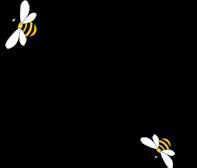

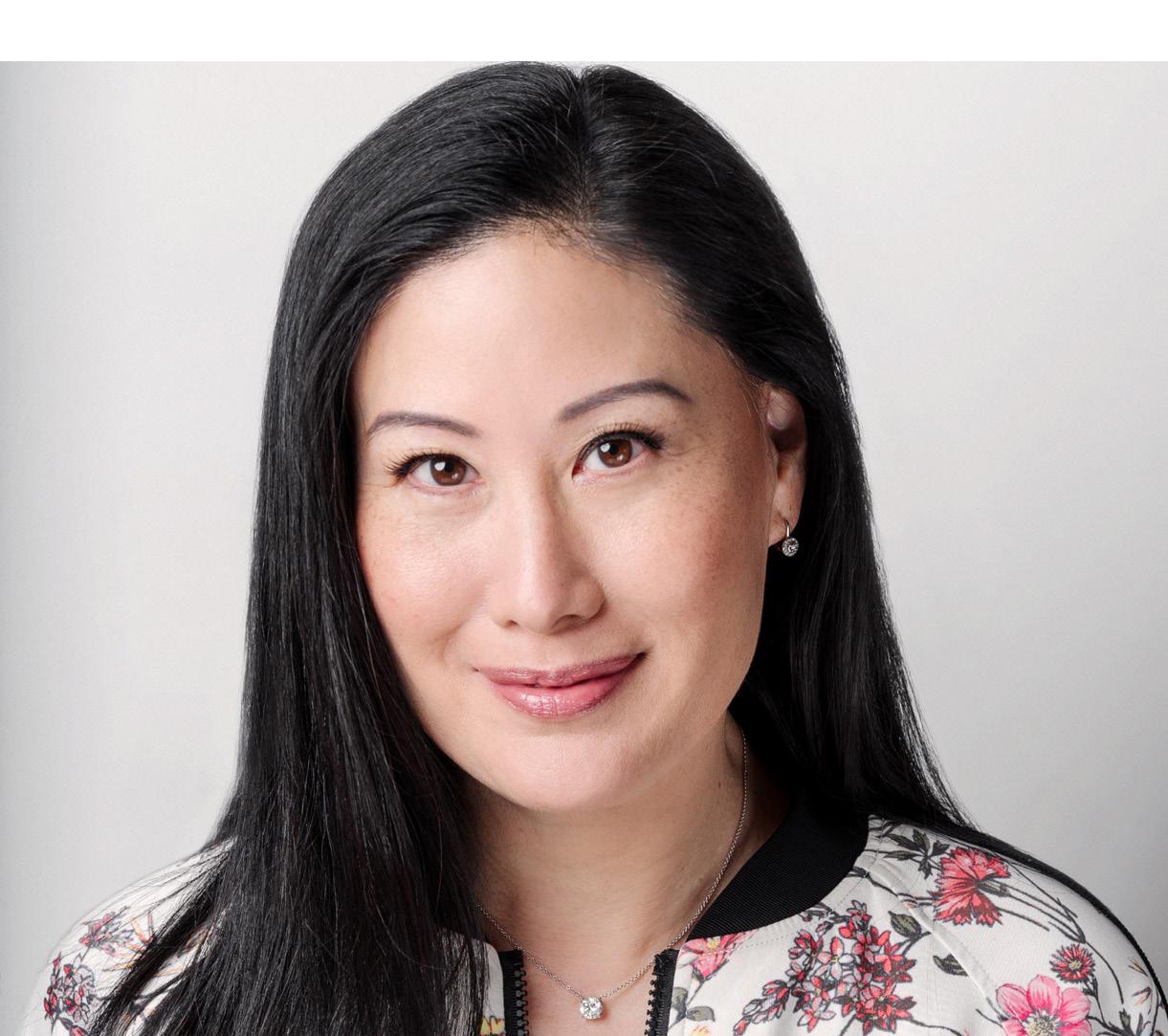 By Jake Wall
By Jake Wall
Just about twenty years ago, “The Devil Wears Prada” strutted onto the silver screen, delivering a fabulous mashup of genres - part rom-com, part horror flick - that left audiences gasping and gossiping. And let’s be real, we all thought to ourselves, “that doesn’t actually happen in real life.” But in catching up with Statehouse Holding’s Angela Pih, we’ve learned the world of legal cannabis is surprisingly similar to the glamorous chaos of Runway Magazine - only the Louboutins have been replaced with sturdy Wellies and catwalks with the amazing rows of outdoor grown craft cannabis.
As a seasoned marketer with a background in fashion and creative agencies, Pih has seen it all. She made her mark as the Chief Marketing Officer of Halston, reviving the iconic brand and catapulting it back into the world of high demand, high fashion. Pih’s experience in the cutthroat world of fashion honed her instincts as much as her skills.
“Fashion moves fast and is inherently unforgiving,” says Pih. “Discipline and precision matter always.” Now, she’s bringing that same ferocious tenacity to the world of cannabis, where the stakes are high, the competition is fierce, and there’s always a new trend to ride. With Pih at the helm of Statehouse’s marketing vision, the future of craft cannabis looks brighter and bolder than ever.
Pih is a true Renaissance woman with a background as diverse as the cannabis industry she now calls home. With three citizenships and having traveled more than 40 countries, it’s no wonder she’s a natural fit for the globally minded Statehouse Holdings family. But her journey into the world of legal weed was anything but a straight line. It started thanks to a dear friend – Fruit + Flower Co.’s Christina Wong – who happened to catch word that leading cannabis brand Papa & Barkley was on the hunt for a new CMO with a fresh perspective. Wong made it her mission to create a true love connection between Pih and P&B. At first, Pih didn’t take it too seriously. But something about the brand stuck with her, and as she dove into the origin story and the family of products, the mission of unlocking the power of cannabis to improve lives drew her in.
Pih grew up with Traditional Chinese Medicine and a firm belief in the healing power of plants. As she puts it, “I’ve always been a believer that we have one life to live, and it’s important to do things that fulfill you and make you happy. That’s what I’ve found in this industry - a real passion for the product and the people.” A spark was ignited and within eight weeks Pih jumped into Papa & Barkley and, as luck would have it, she made sure that six weeks later Wong was onboard as well.
Working tirelessly to elevate the brand’s profile, Pih used her experience in the fashion and creative agency worlds to craft a narrative that was both compelling and authentic. As the company grew, so too did Pih’s own passion for the industry - a passion that has only continued to deepen in the years since, carrying her into her time at the multi-brand producer CannaCraft where she successfully brought 70 new products to market, including Gem+Jane, the first (and only) cannabis brand acquired in California. Pih’s circle of friends keep close tabs on her, and it was through this tight circle that she was introduced to StateHouse, post-merger of the major California operators Harborside, Urbn Leaf, Sublime Canna and Loudpack. Her friendly advisors noted that the consolidated companies needed a seasoned marketer – someone
who could integrate, orchestrate, and navigate growth across 14 retail locations and 6 brands.
Never one to shy away from a challenge, Pih says “Bring it on.” In late 2022, Pih and StateHouse drew a clear line in the sand of quality and the world of craft cannabis. Pih and the team have dedicated themselves to supporting and shining a spotlight on sungrown independent farms. These small businesses are delivering on the promise of truly impressive flower, powered by the terroir in which it is grown. Pih champions that only in working together – in true collaboration – can the industry preserve the stewardship, generational farming, and strain diversity from legacy farmers. She believes that there is a vast potential for cannabis to positively impact health and enjoyment, and, as an extension of this, that there is also potential for developing purpose-driven enterprises that balance profit and purpose.
As an authentic industry leader, she has forged partnerships with organizations like the Emerald Cup and Small Farms Council to create multiple avenues for distribution, all with a focus on uplifting small craft growers. But it’s not just about the bottom line for Pih - she understands that building strong relationships with her customers is equally important. That’s why she has worked with the StateHouse team to dream up their signature customer loyalty program, “TOPS”, which goes beyond basic discounts to truly incentivize and advocate for the consumer. In these uncertain economic times, Pih wants to make sure her customers can stretch their dollars further and earn cash rewards on their purchases. It’s just one more way Pih and StateHouse are changing the game for craft cannabis.
Pih’s commitment to craft cannabis doesn’t stop when she goes to sleep at night. In fact, it even colors her dreams. “Imagine sharing a joint with none other than Leonardo da Vinci around a campfire,” Pih muses with a smirk. “He’s a scientific genius who’s also an equally prolific artist, recognizing the human condition and seeing us, the everyday human, as all equally capable of creating alchemy. And the only thing we’re smoking is craft cannabis all the way.” As she delves deeper into this dreamy scenario, Pih curates every detail. The conversation would range from all aspects of the humanities and creative subjects, while they share a sungrown flower with citrus notes and a floral finish, creating a brilliant cerebral euphoria that perfectly complements the discussion. In Pih’s world, even her dreams are optimized for the ultimate experience.

Looking to the future, Pih doesn’t hesitate to share her thoughts on what’s in store for the next year. “Well, it’s going to be a bit of a slog, isn’t it?” she quips. “But let’s not forget, tough times don’t last, tough people do. And speaking of toughness, I learned a thing or two in the cutthroat world of high fashion. It’s all about the talent and the collaborations. When the going gets tough, the tough get creative.” Pih firmly believes that alliances and partnerships will be the key to unlocking success in these trying times.
As we reflect on our conversation with Pih, we can’t help but feel energized by her infectious optimism and inspired by her choice of anthem: New Radicals’ “You Get What You Give”. Pih doesn’t just sing the words, she lives by them, and we are here for it all day, every day.
Angela Pih (C) Priscilla Chavez
WWW.HONEYSUCKLEMAG.COM 66 VOLUME 16

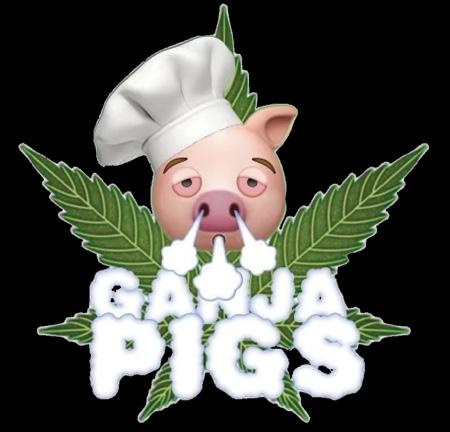

Event planing & Catering Infused desserts & Bu ets Book us for your next event IG @GANJAPIGS.EVENTS @THENOTORIOUSPIGCOLLECTIVE
GANJA PIG Award Wining Edible Brand
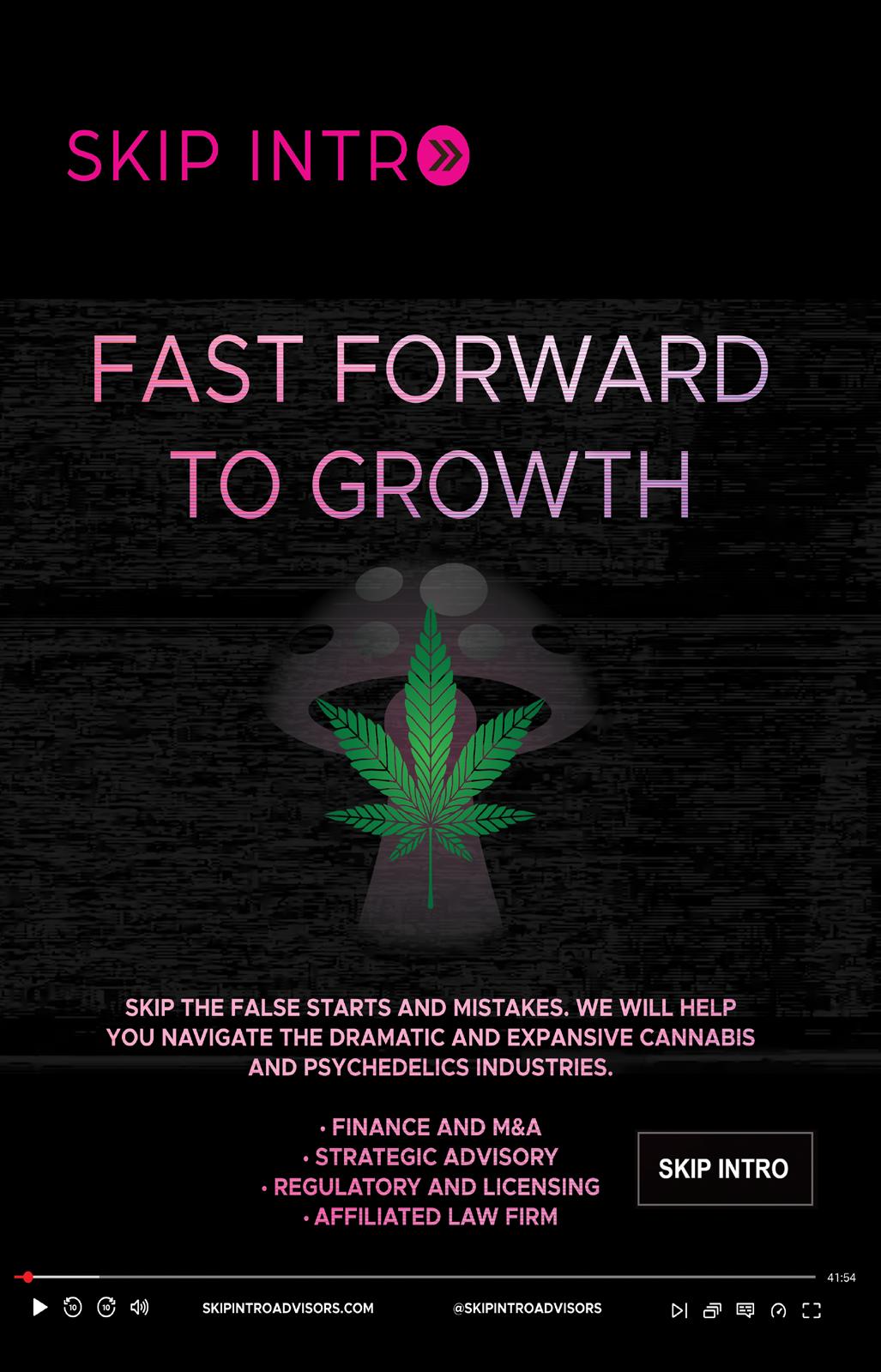

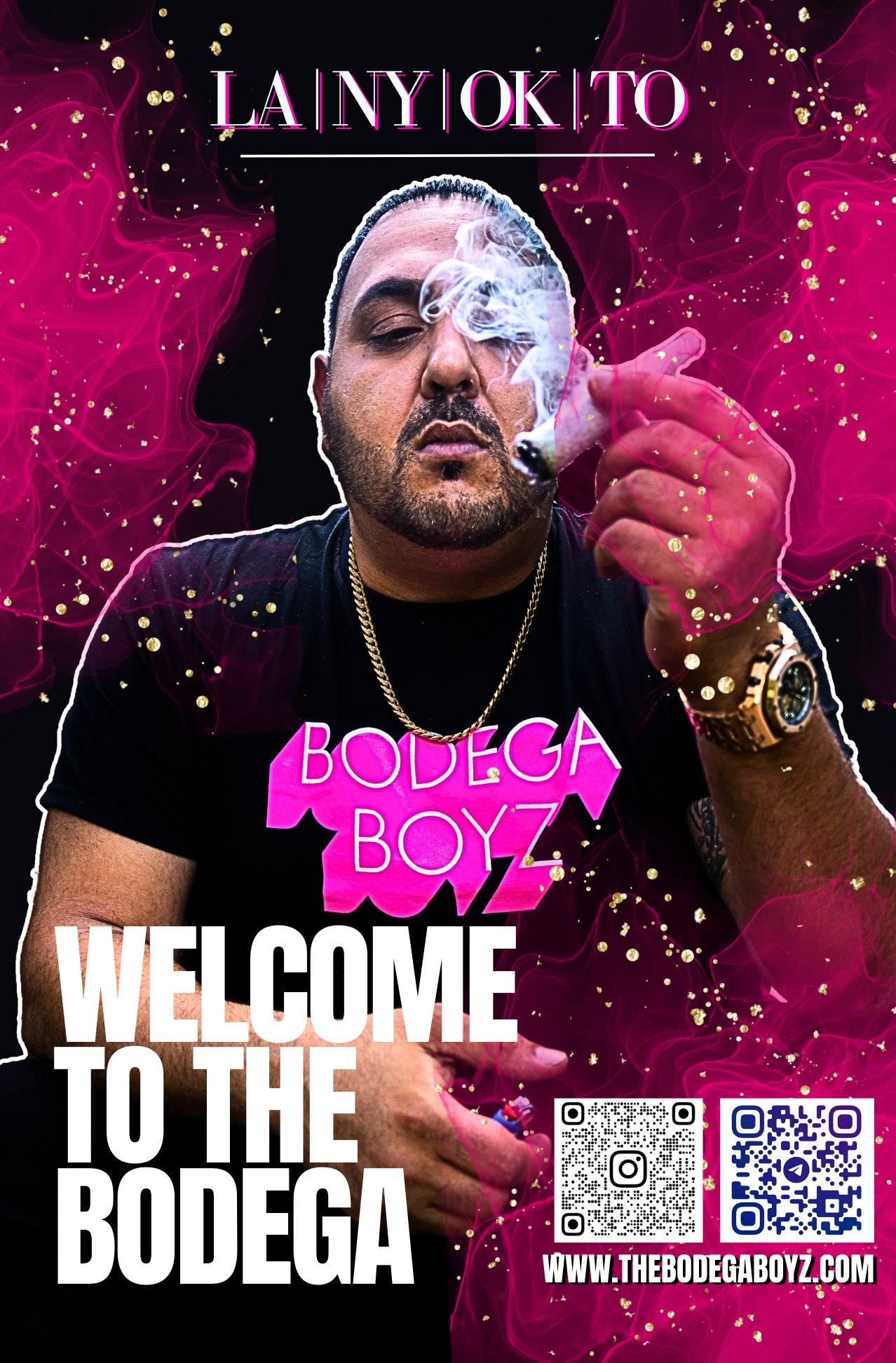









 BY RONIT PINTO
BY RONIT PINTO





























 Alligator Jesus at Art Basel 2022
Alligator Jesus at Art Basel 2022











 Charles King at opening of Housing Works Cannabis Co
Background photograph by Scott Southern: @certo.glass @mullerglass
Alex Villegas of Miami Mango
Umi of dead prez at On the Revel Paul Wall records TRILLSTATIK 2 at The Sweet Chick
Charles King at opening of Housing Works Cannabis Co
Background photograph by Scott Southern: @certo.glass @mullerglass
Alex Villegas of Miami Mango
Umi of dead prez at On the Revel Paul Wall records TRILLSTATIK 2 at The Sweet Chick
 Interview by Sam C. Long By Alexa Nasiedlak, additional reporting by Haley Alexandra Yaman
Interview by Sam C. Long By Alexa Nasiedlak, additional reporting by Haley Alexandra Yaman
























 Vic Styles: Smoking in Style By Alexa Nasiedlak
Vic Styles: Smoking in Style By Alexa Nasiedlak


































 Cymatics, Hip Hop as AI and the Tip of the Spear
Cymatics, Hip Hop as AI and the Tip of the Spear

















 Jacket: run tan du @runtanduofficial
Tie & Trousers: Hiromi Asai @hiromi.asai
Shirt: Gucci @Gucci
Jacket: run tan du @runtanduofficial
Tie & Trousers: Hiromi Asai @hiromi.asai
Shirt: Gucci @Gucci







 Staff
Staff














 HempInfused Sparkling Water, by Chill State
Elevated SeltzerTM, by Maison Bloom
CBD Gummies, by Penguin Flower Rosin Infused Rose Delights, by Rose
Nourishing
Bath Bombs, by Kush QueenTM
Smooth Operator Intimate Serum, by QuimTM
HempInfused Sparkling Water, by Chill State
Elevated SeltzerTM, by Maison Bloom
CBD Gummies, by Penguin Flower Rosin Infused Rose Delights, by Rose
Nourishing
Bath Bombs, by Kush QueenTM
Smooth Operator Intimate Serum, by QuimTM

























































 CERTZ
CERTZ

 Interview by Ronit Pinto and Sam Long
Interview by Ronit Pinto and Sam Long
 Written by Jaime Lubin
Written by Jaime Lubin





























































 By Jake Wall
By Jake Wall





